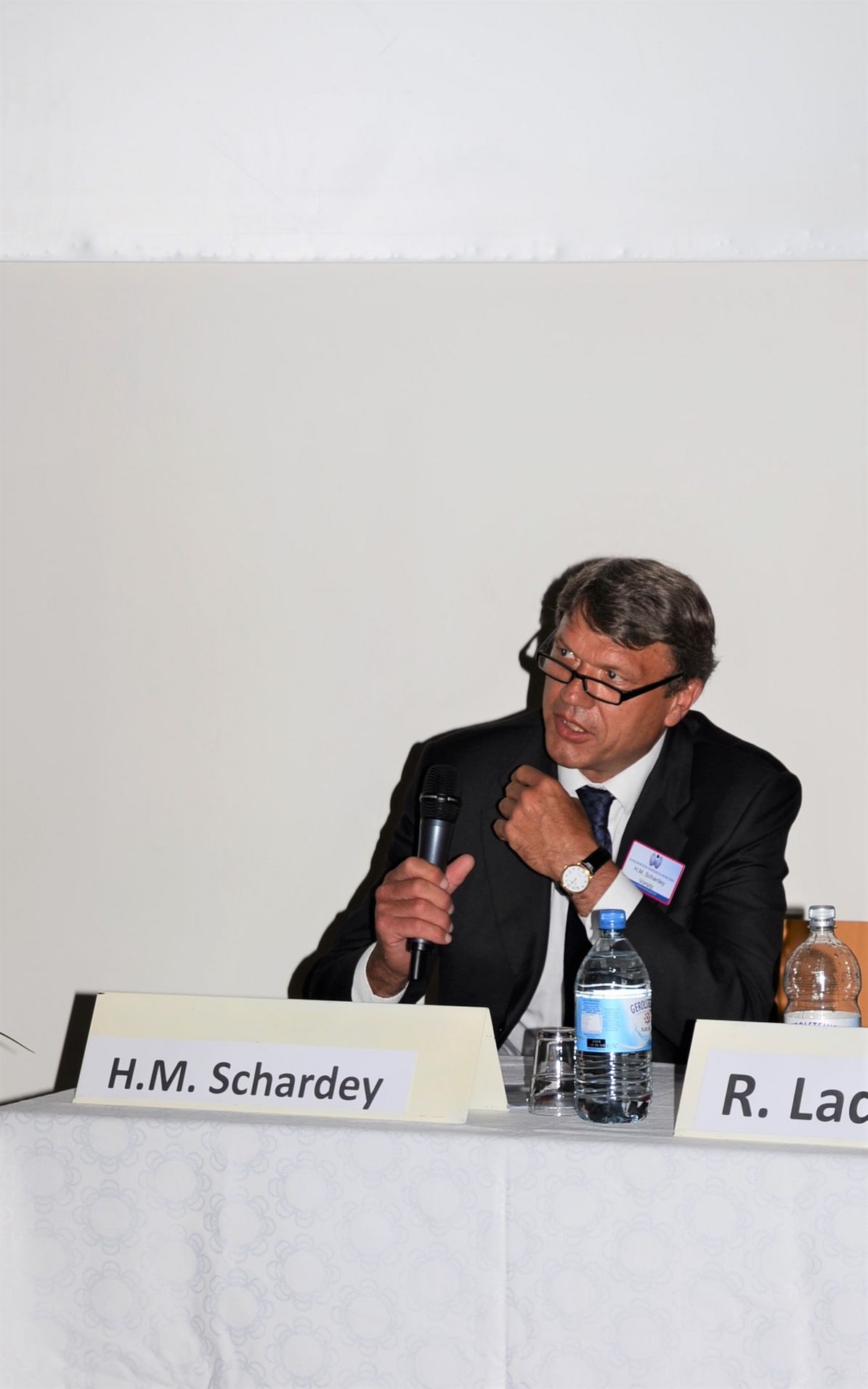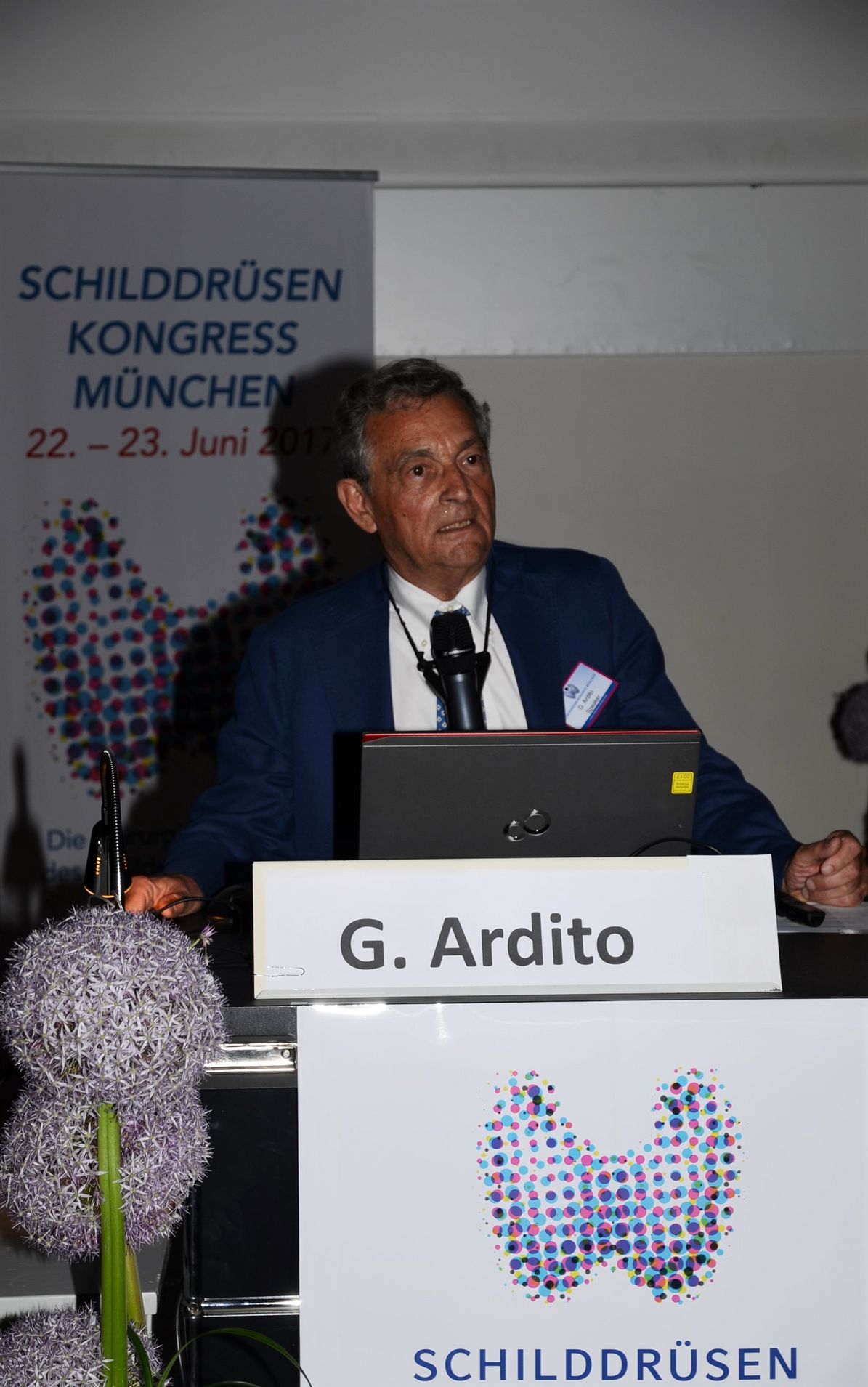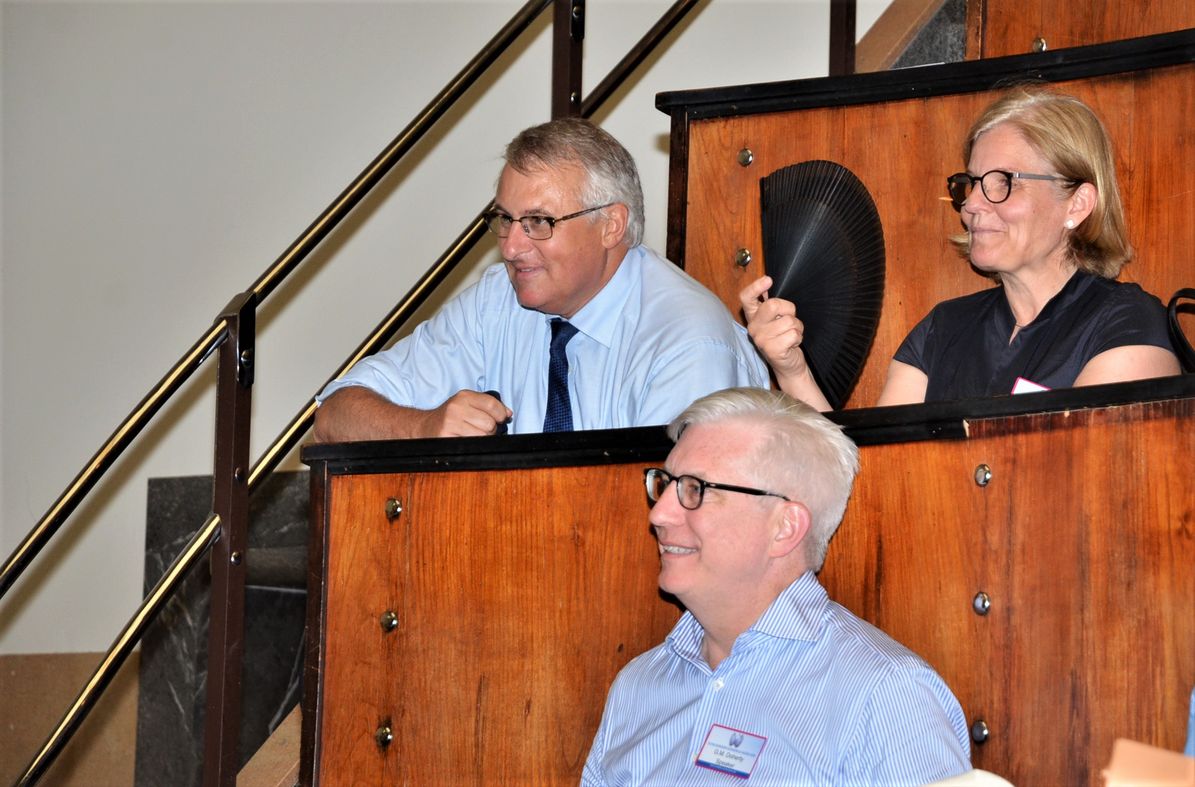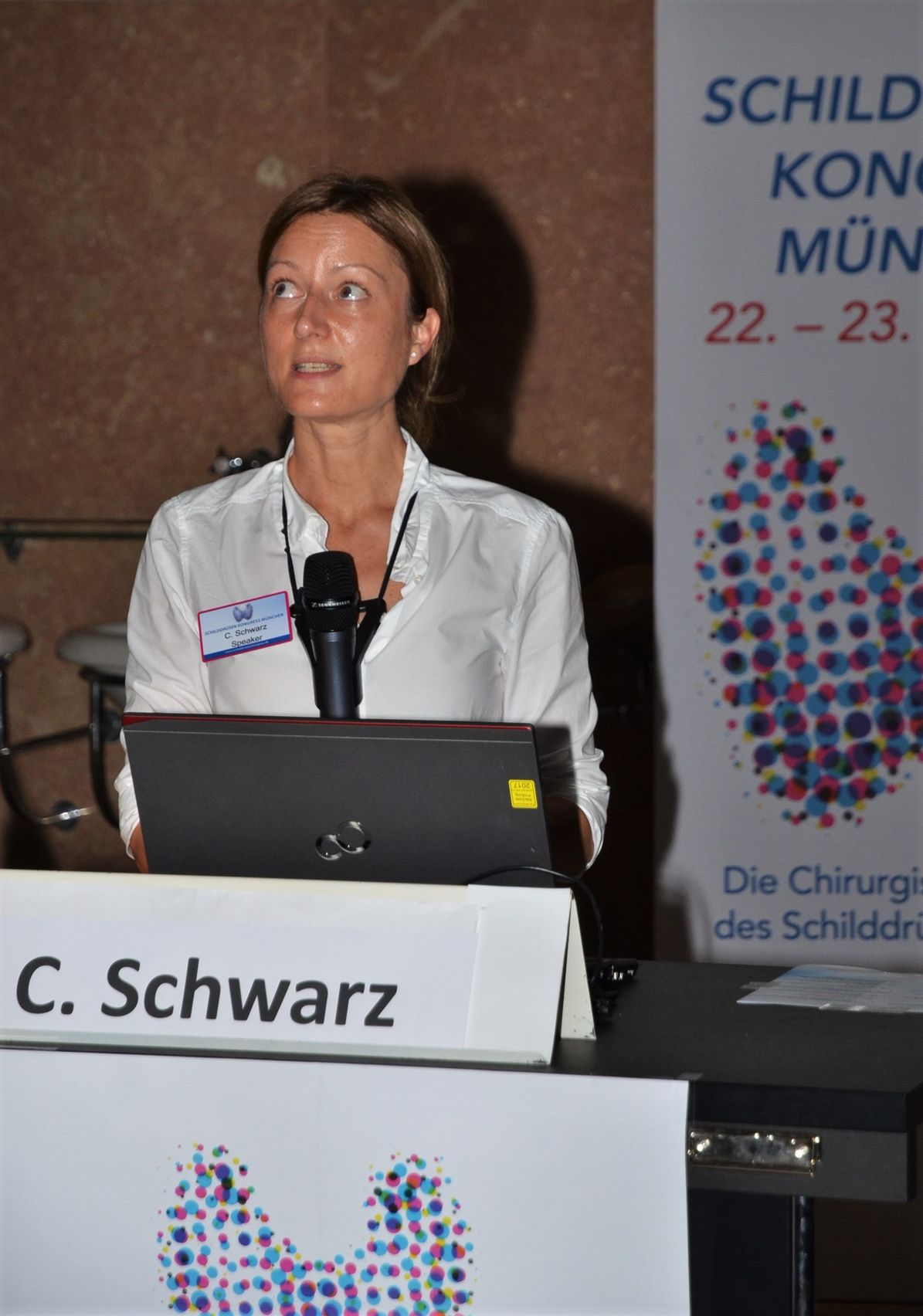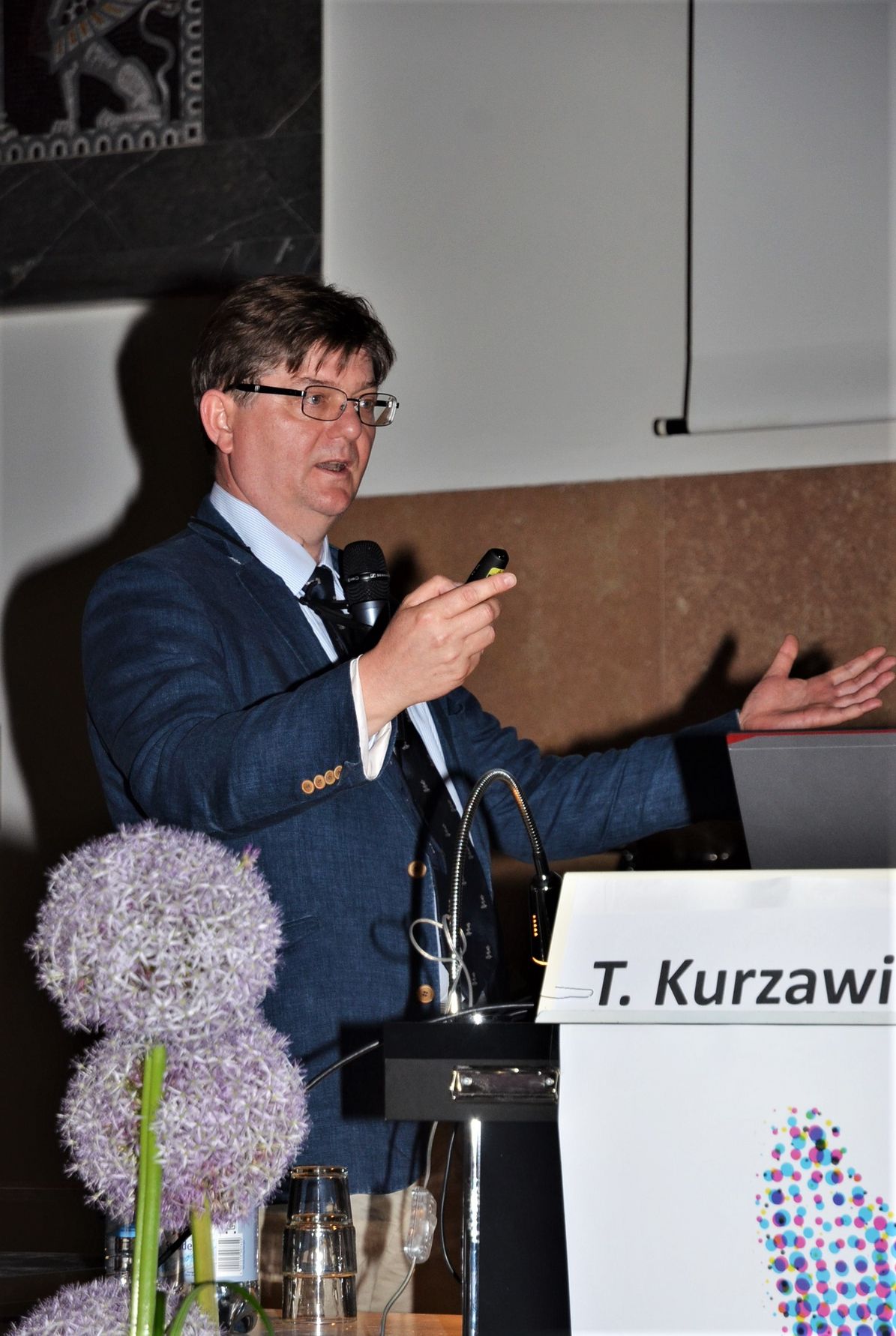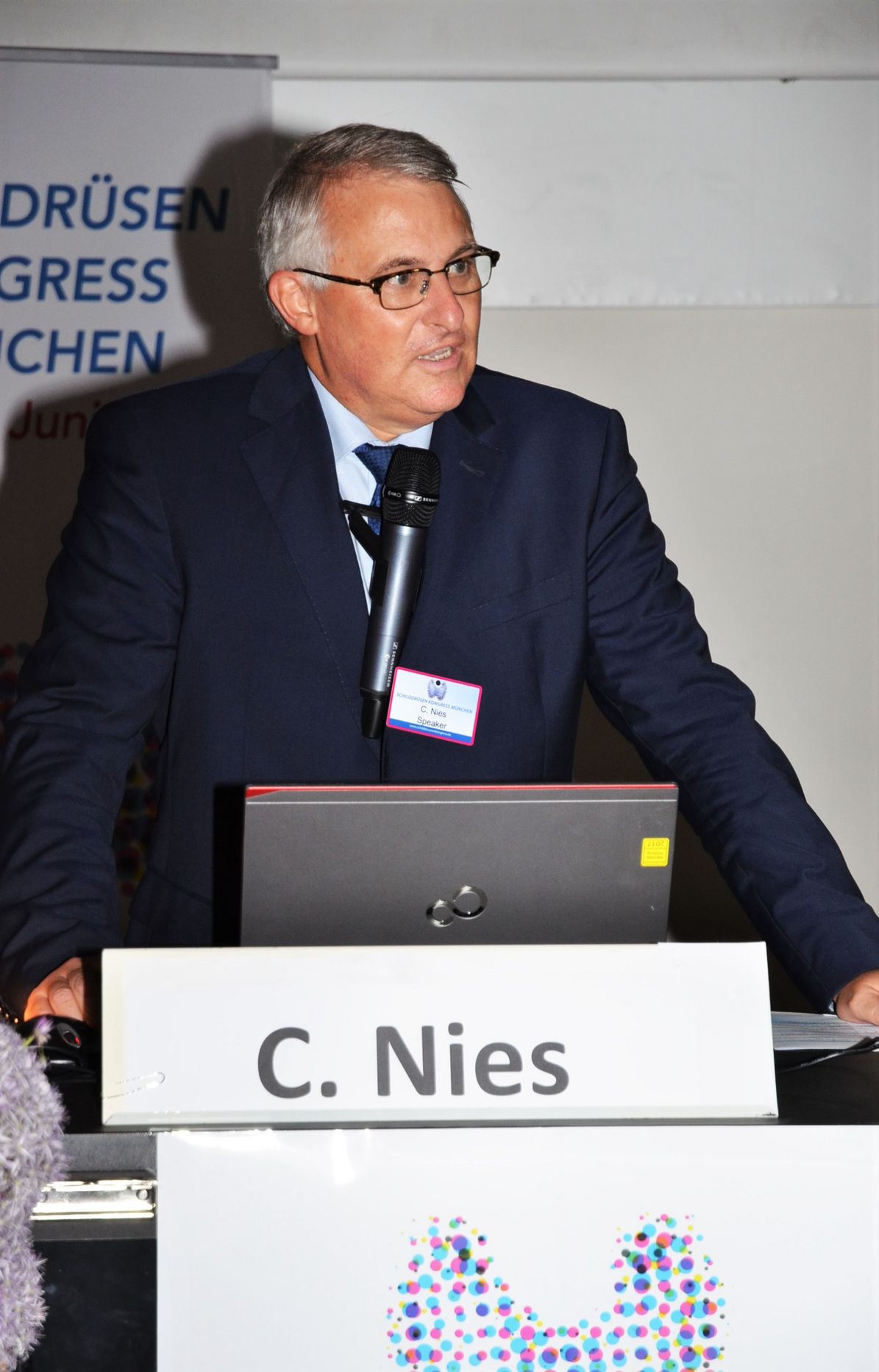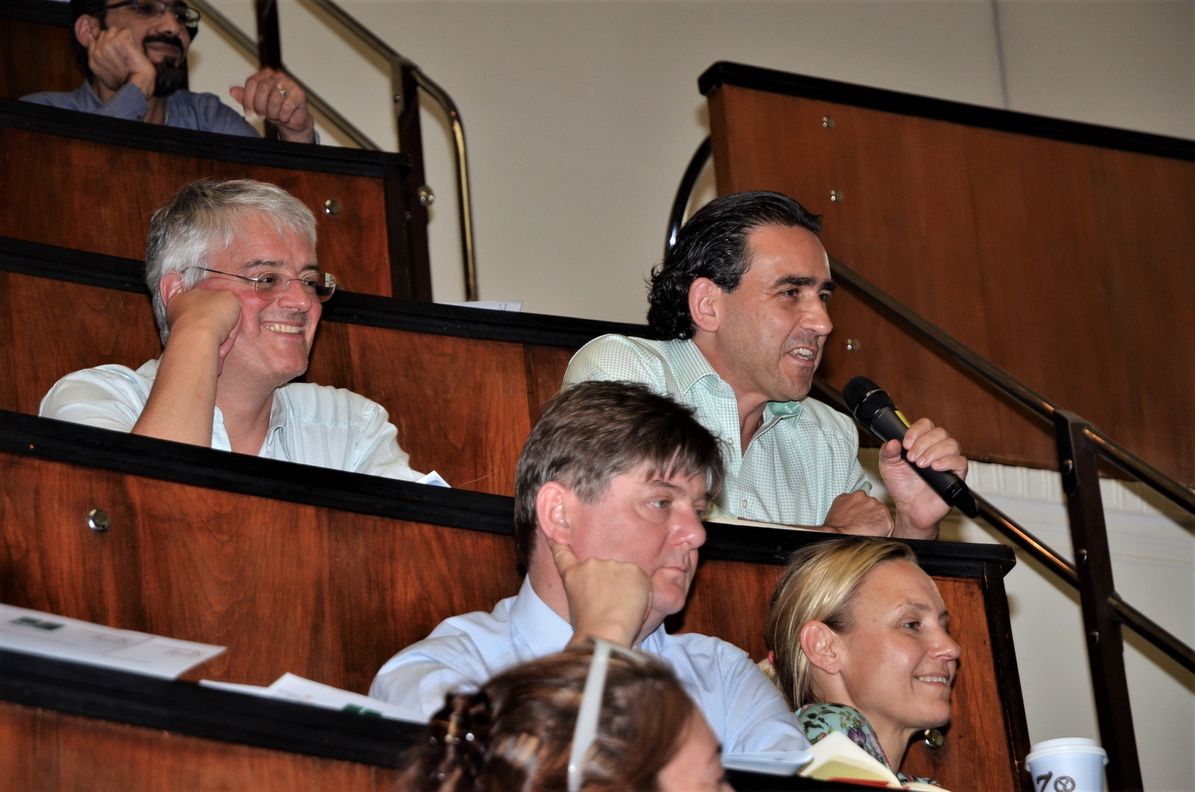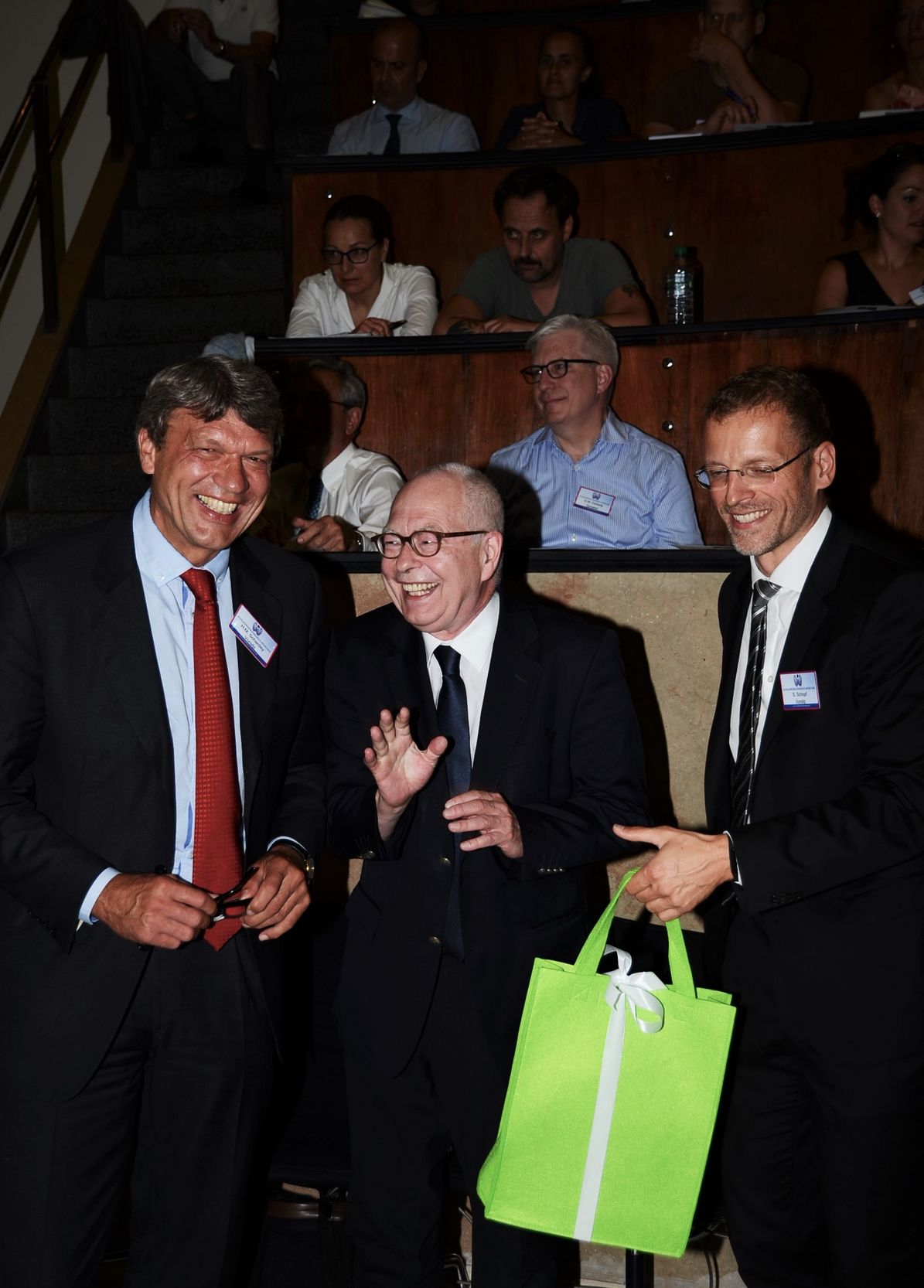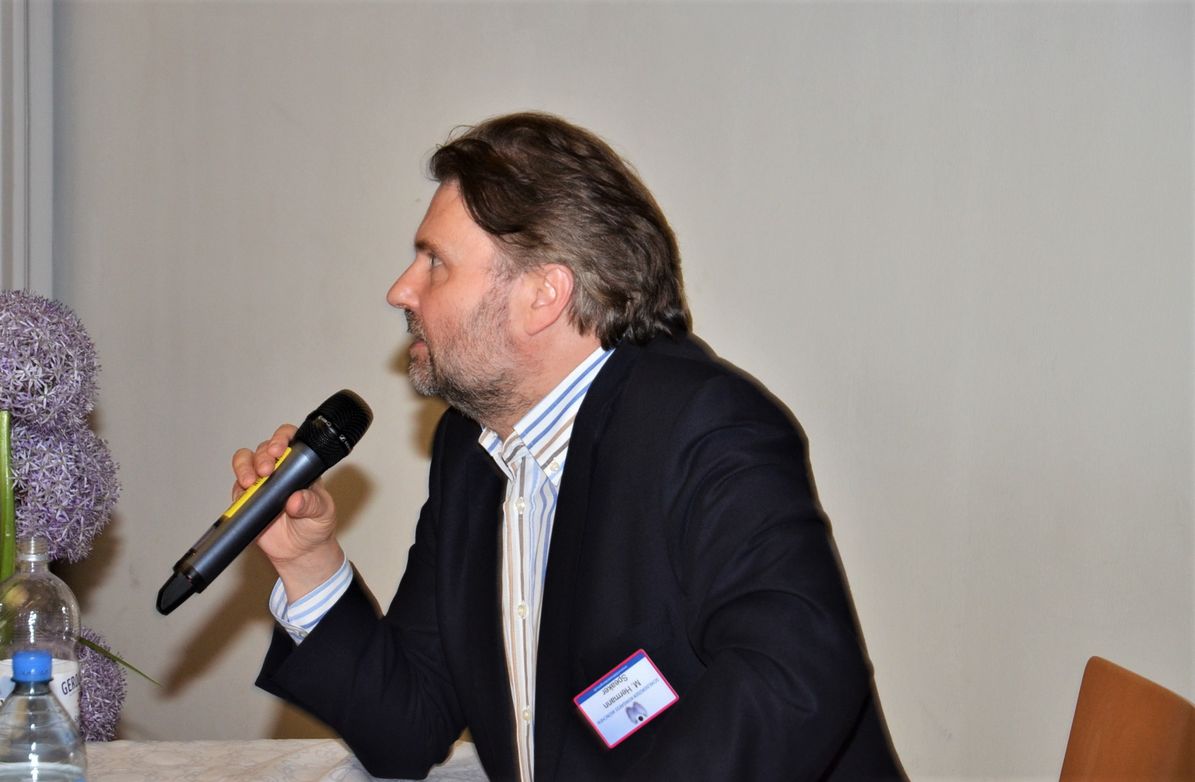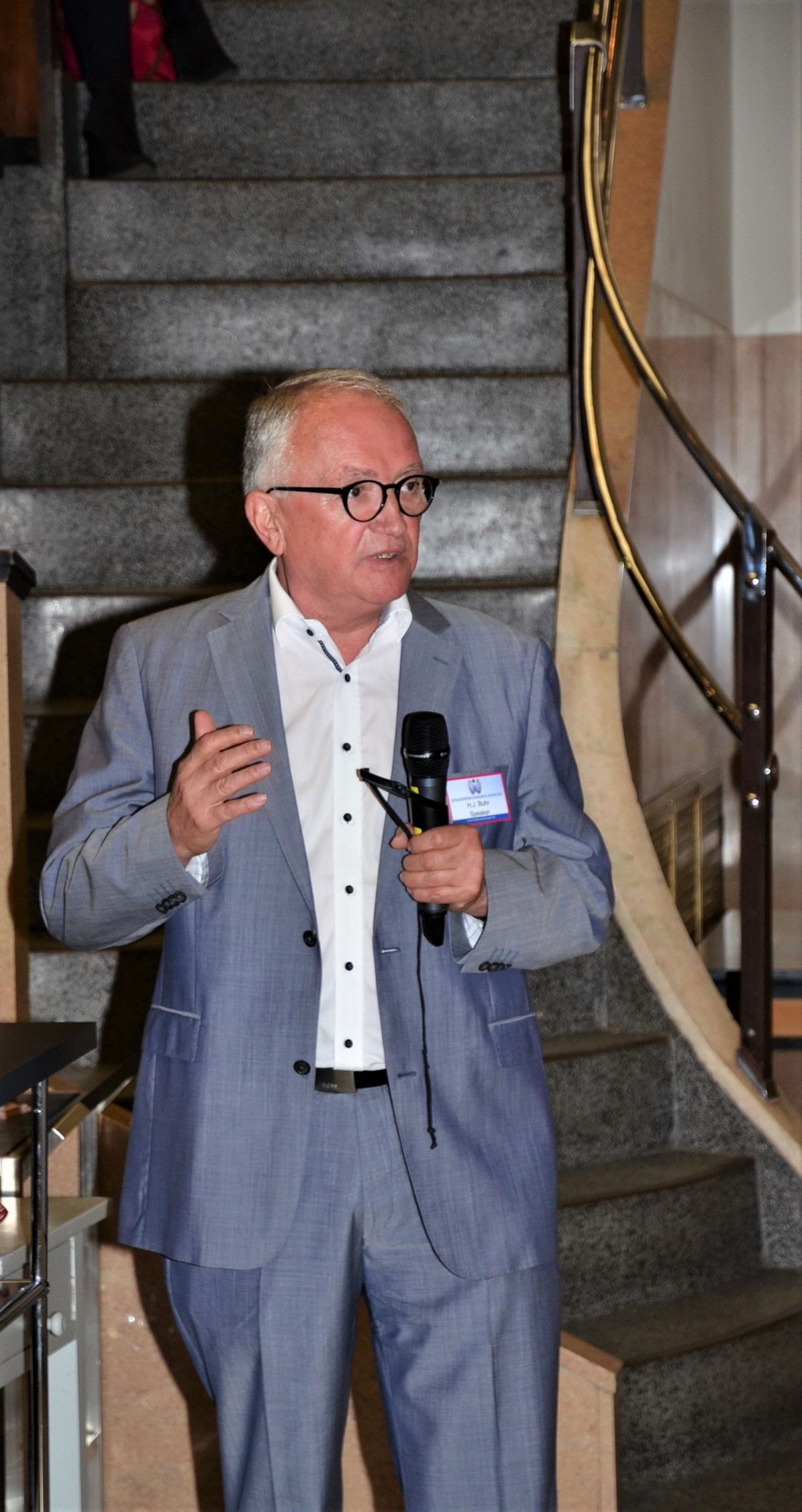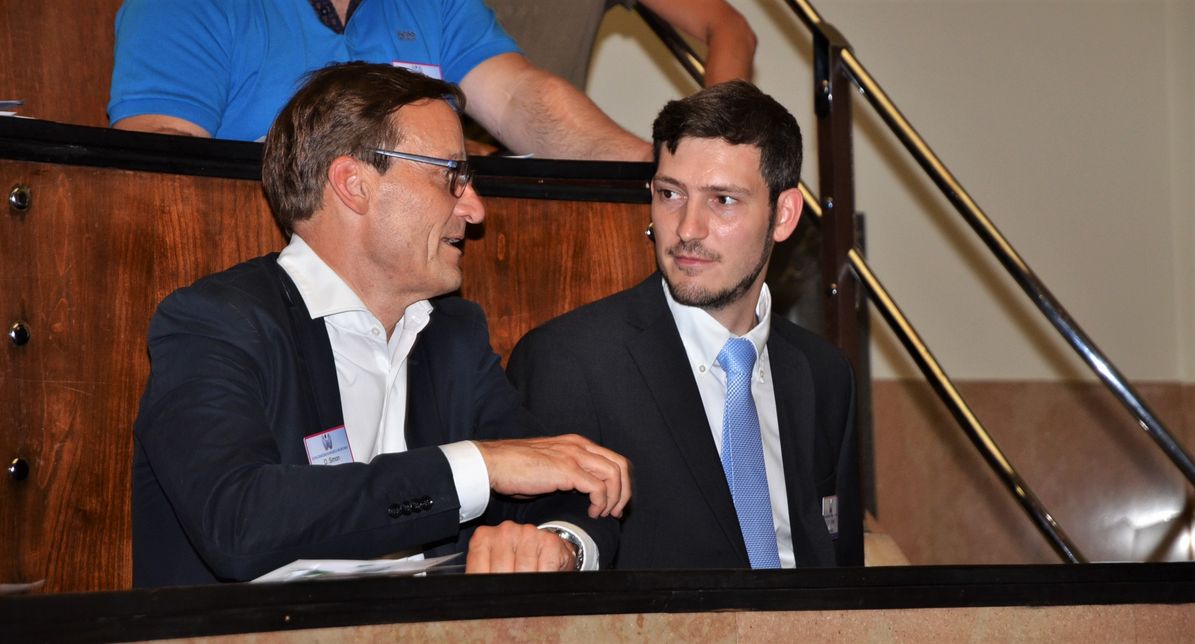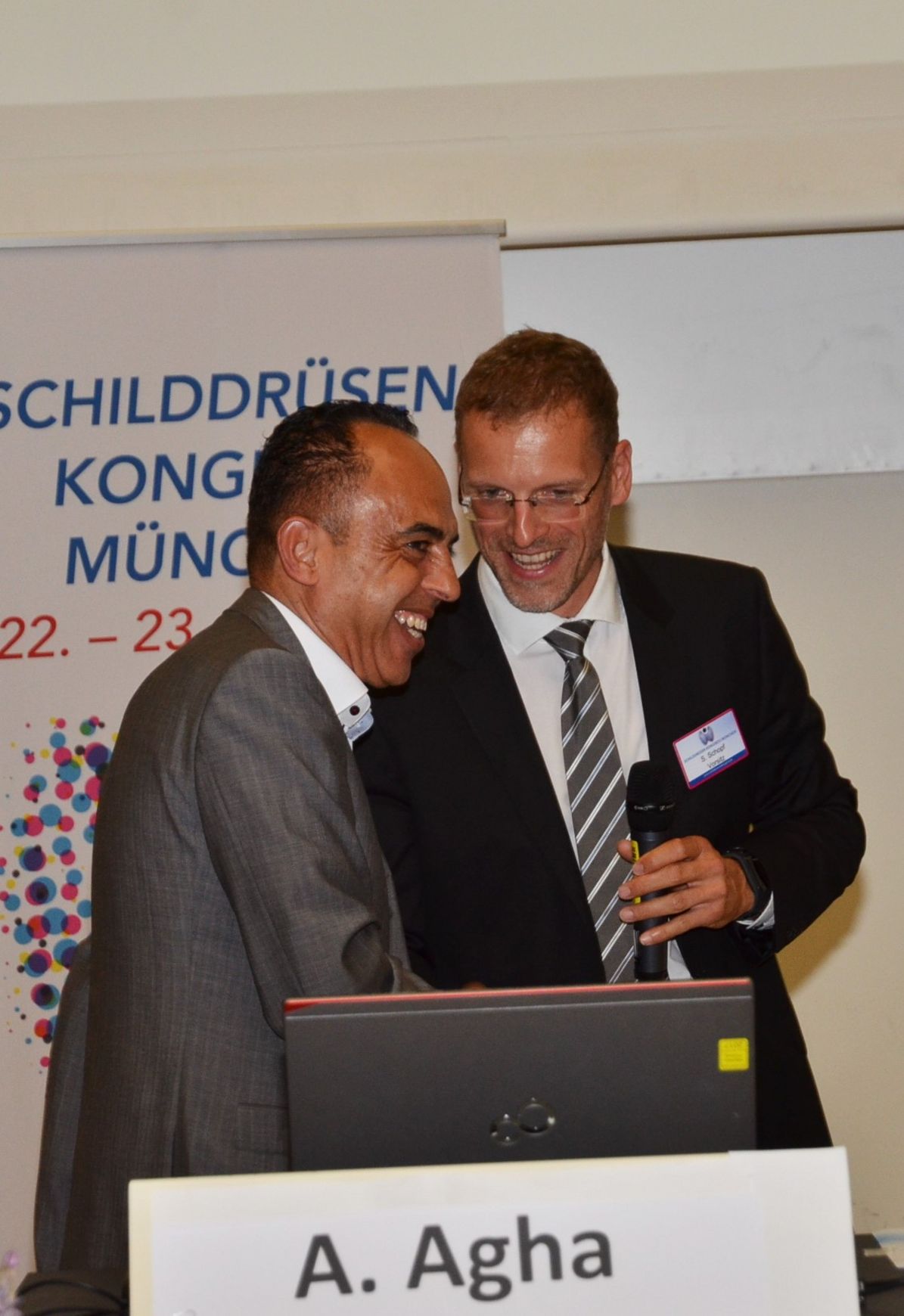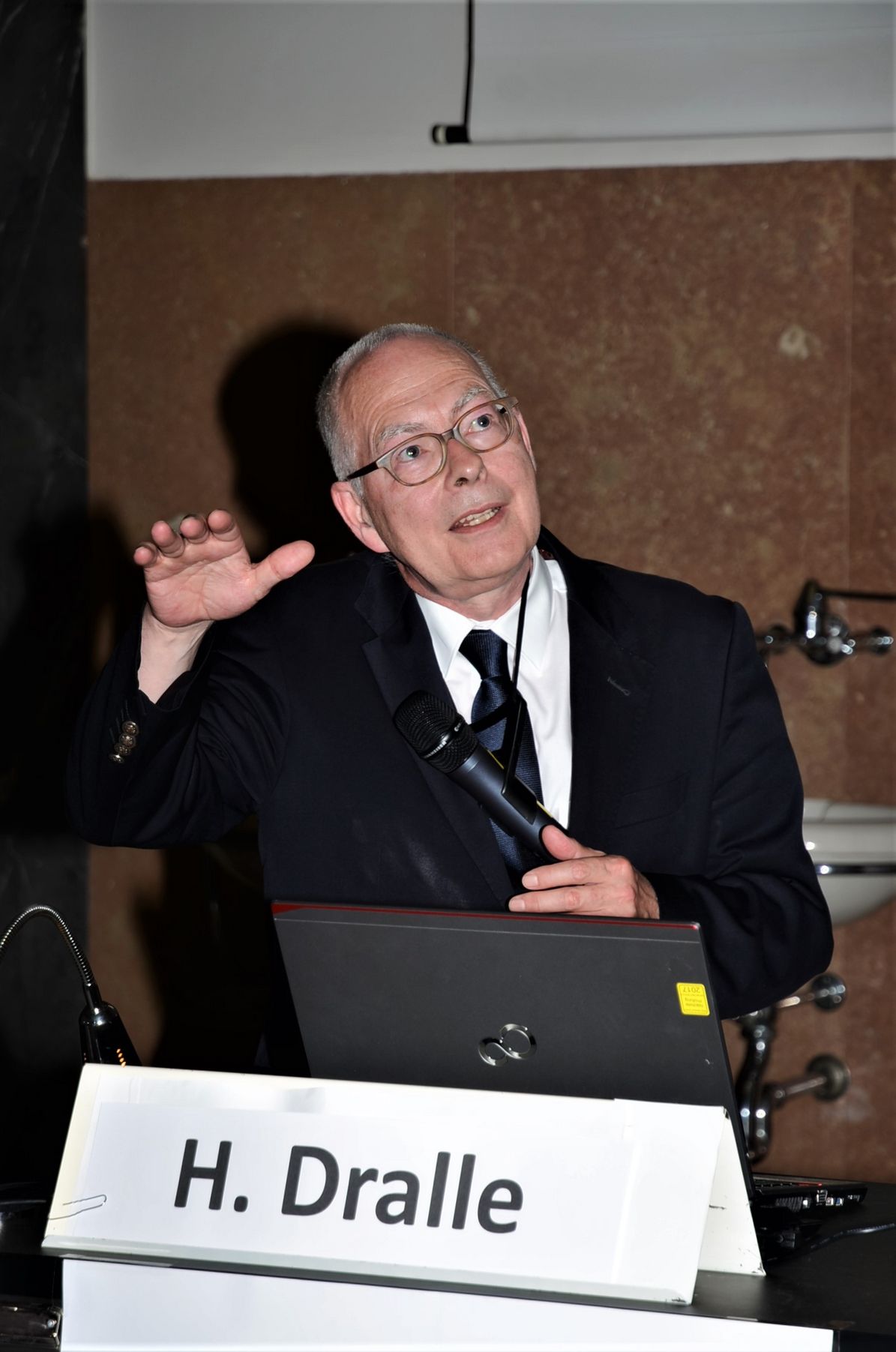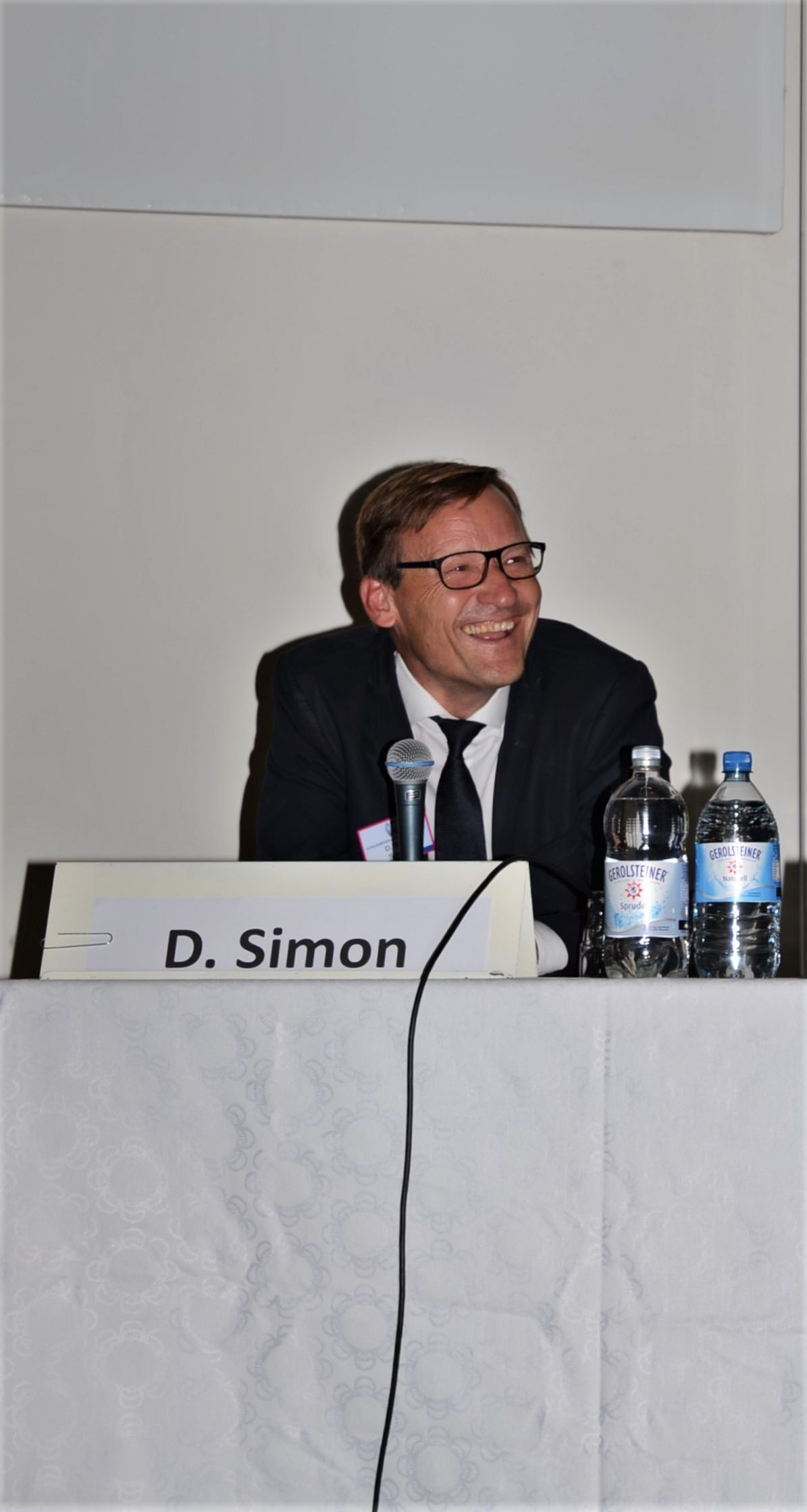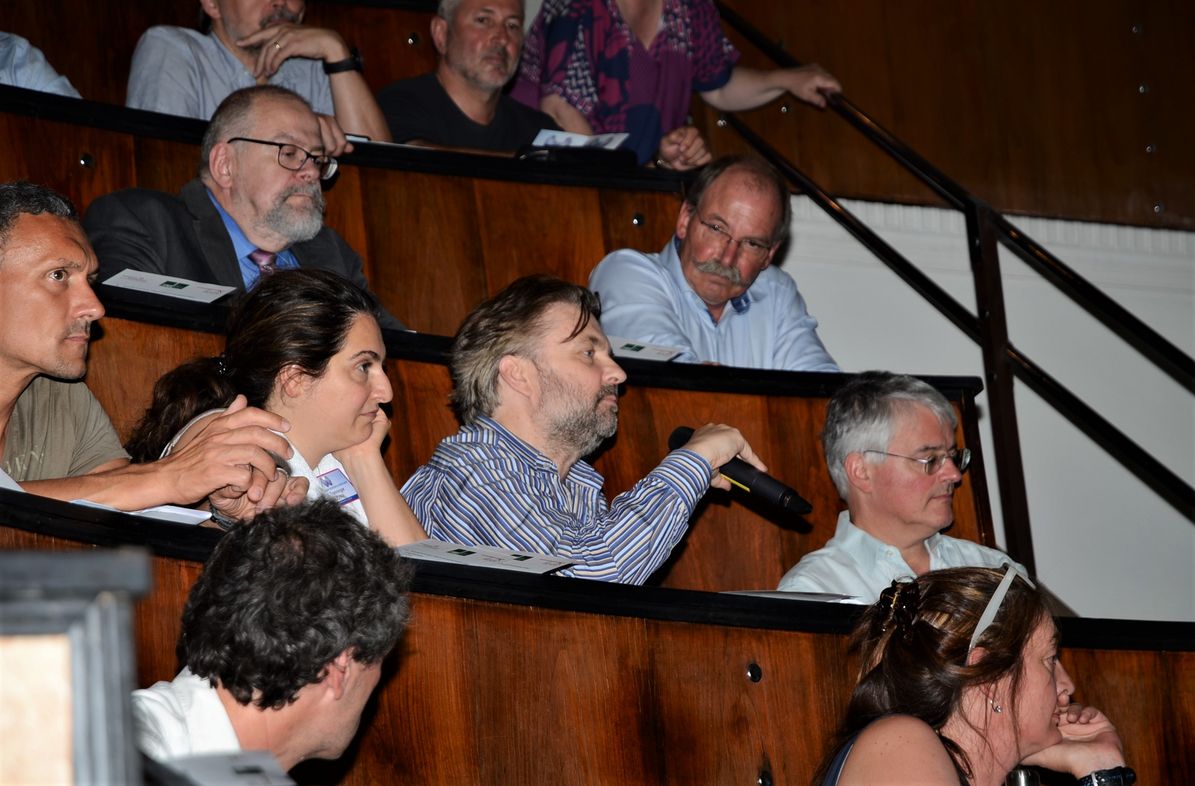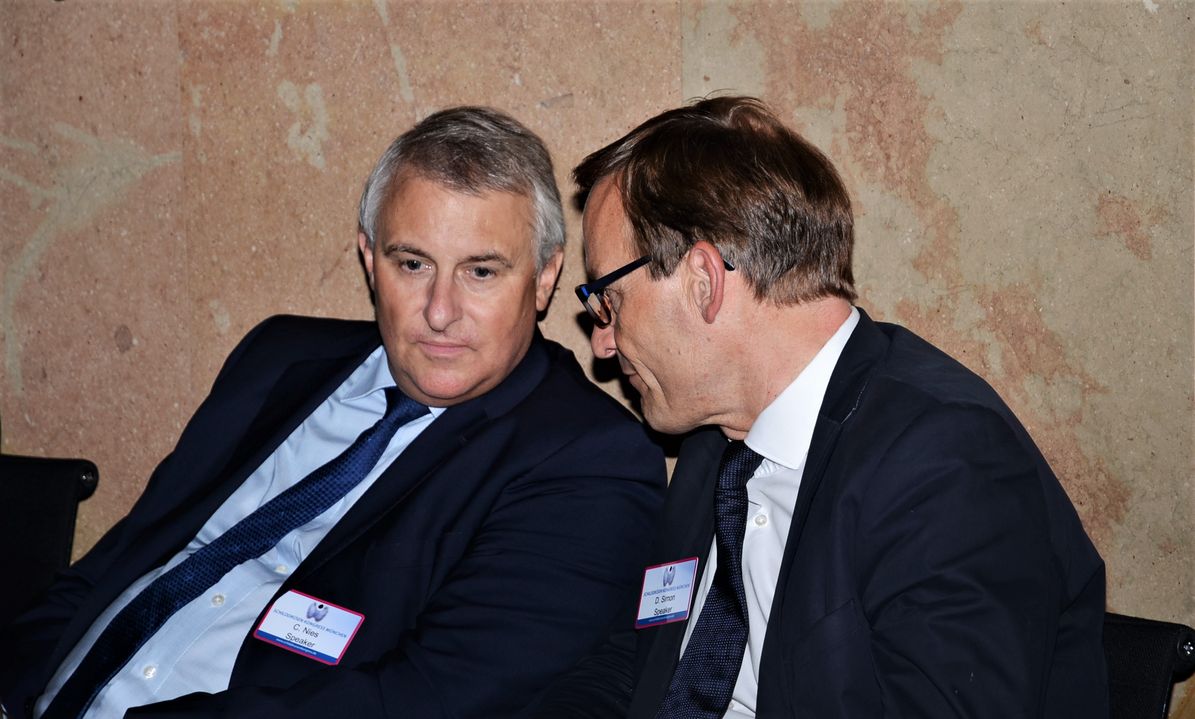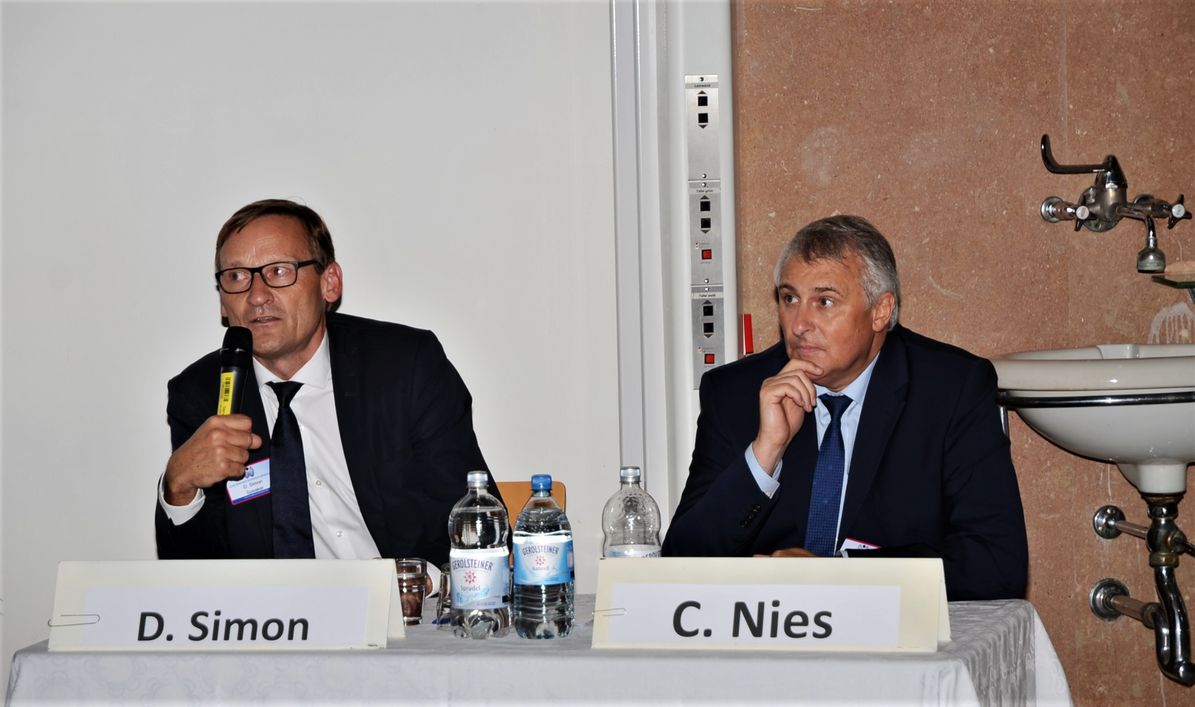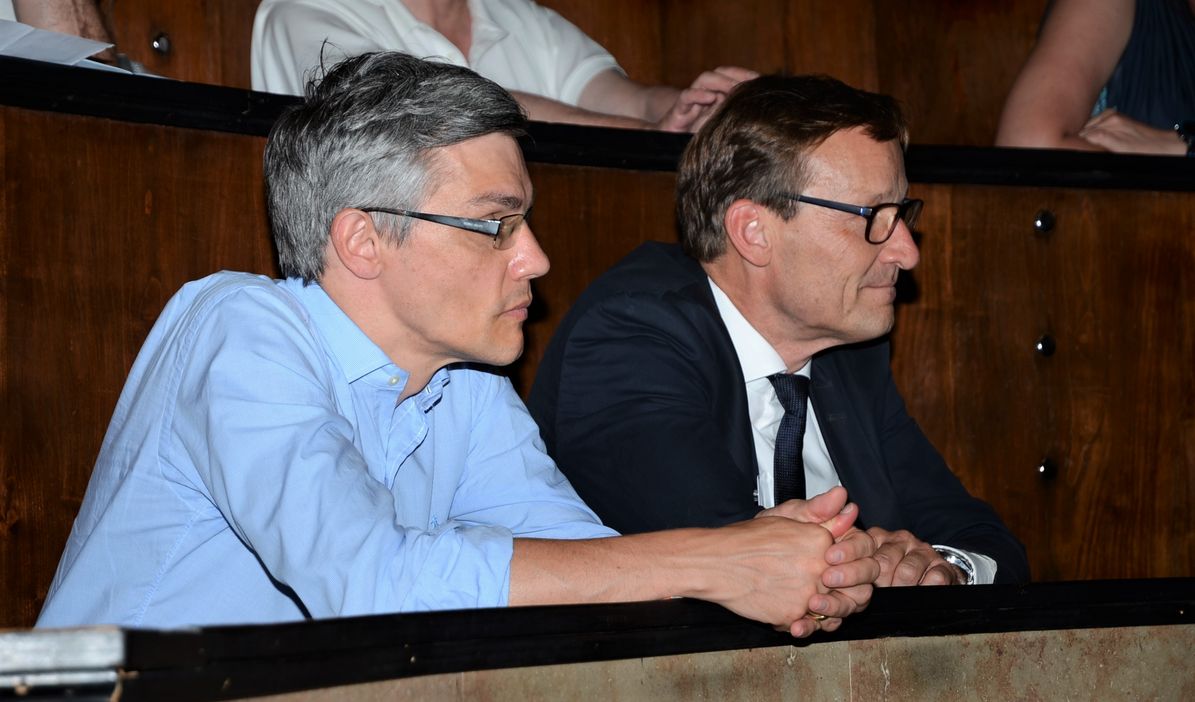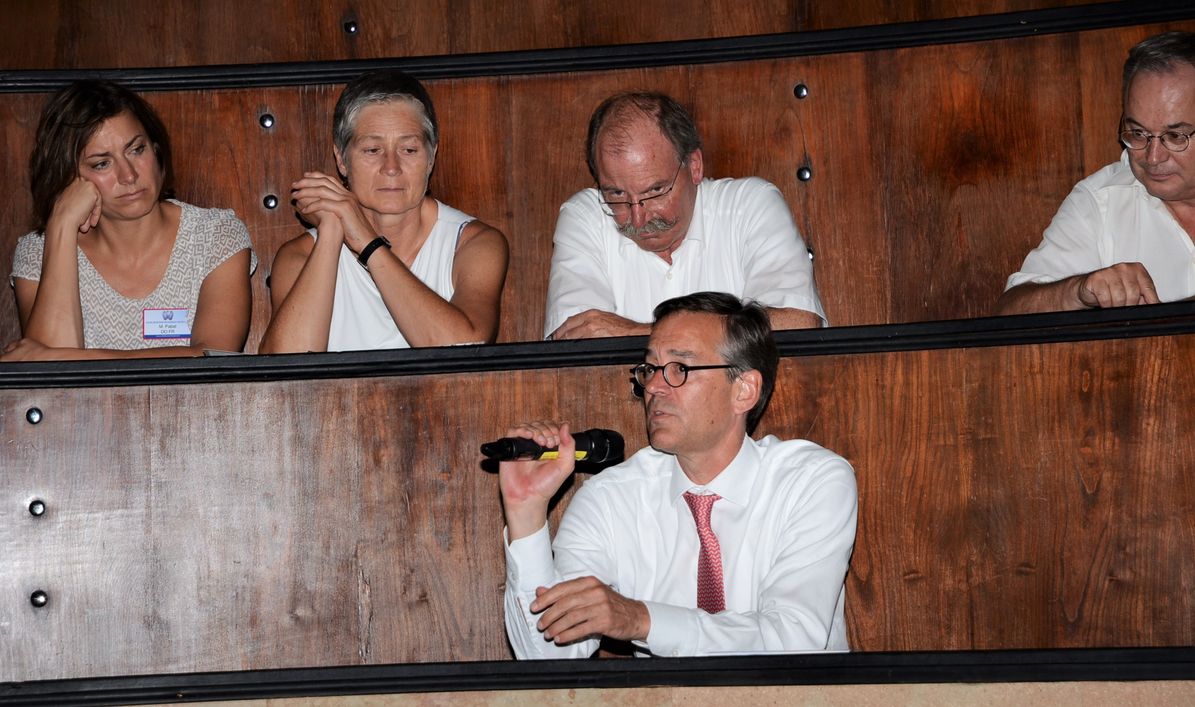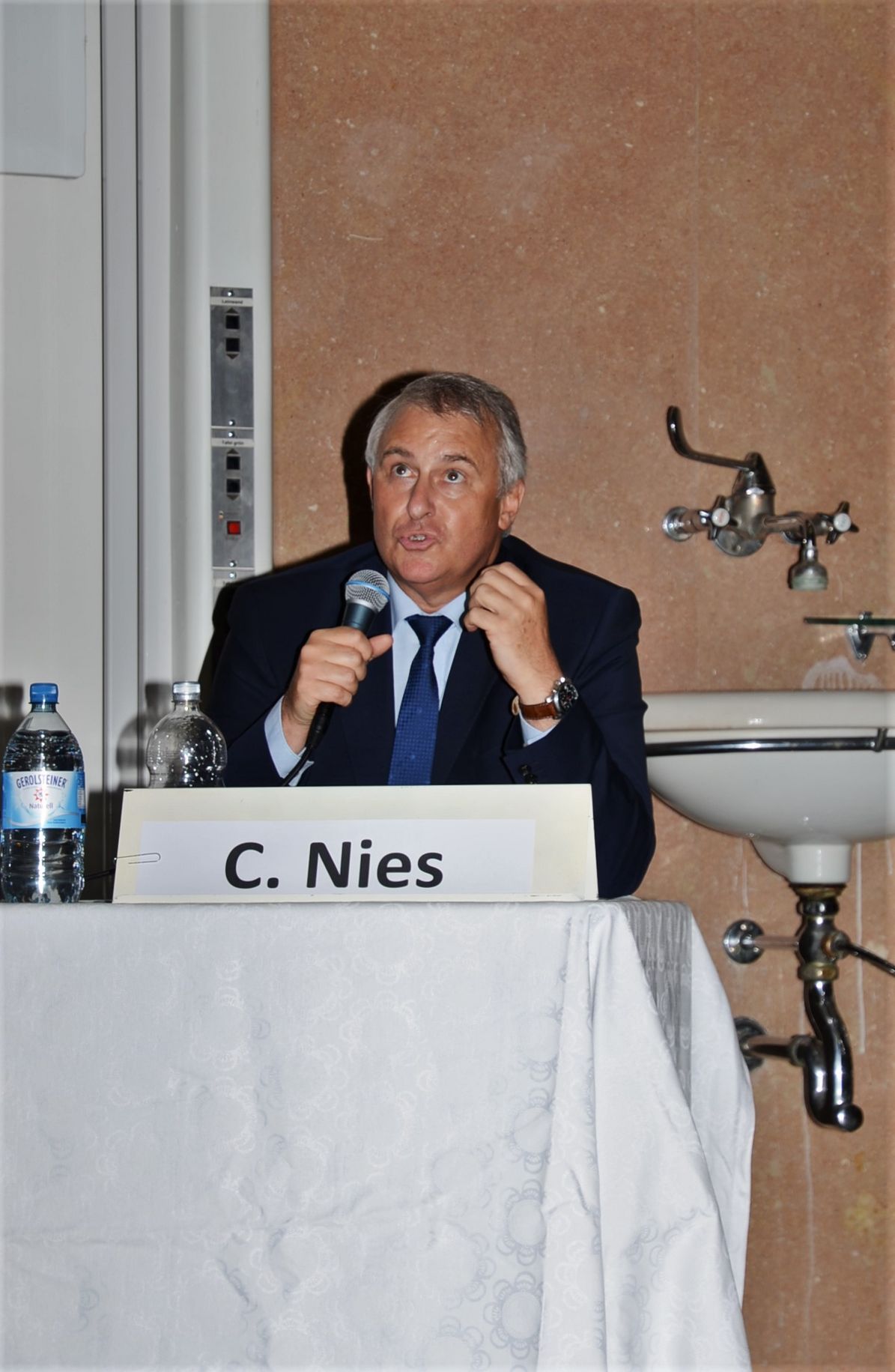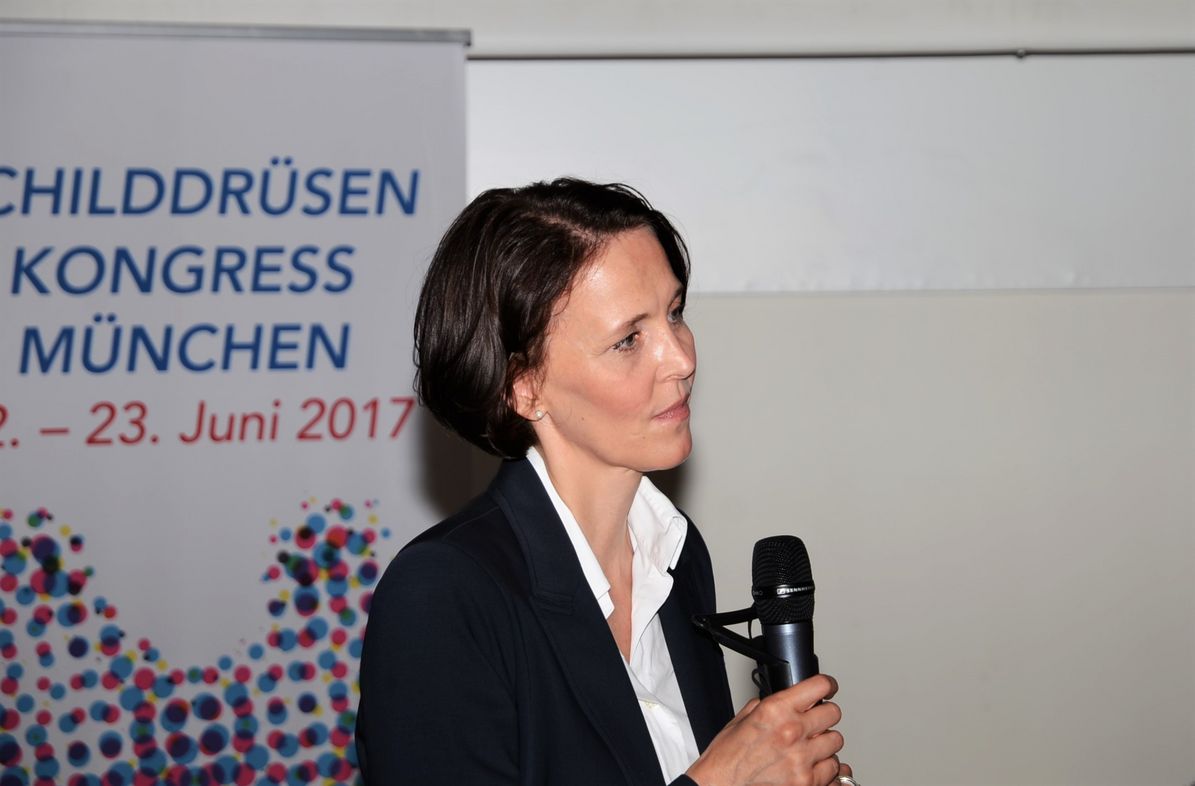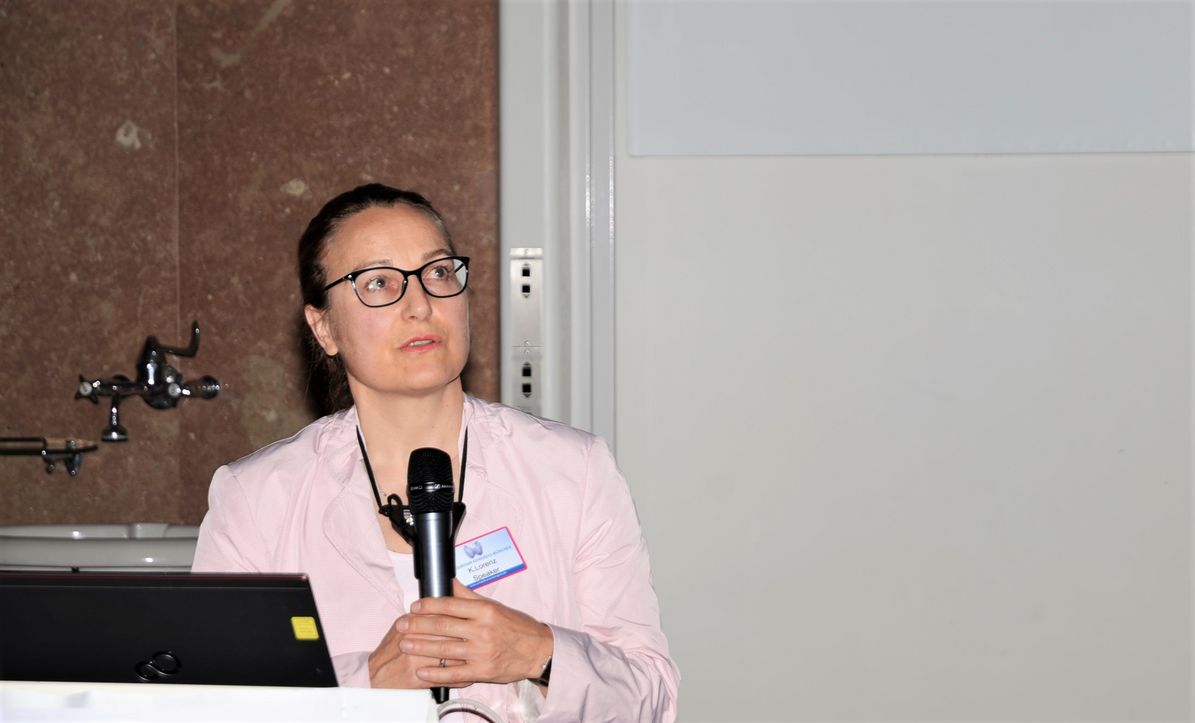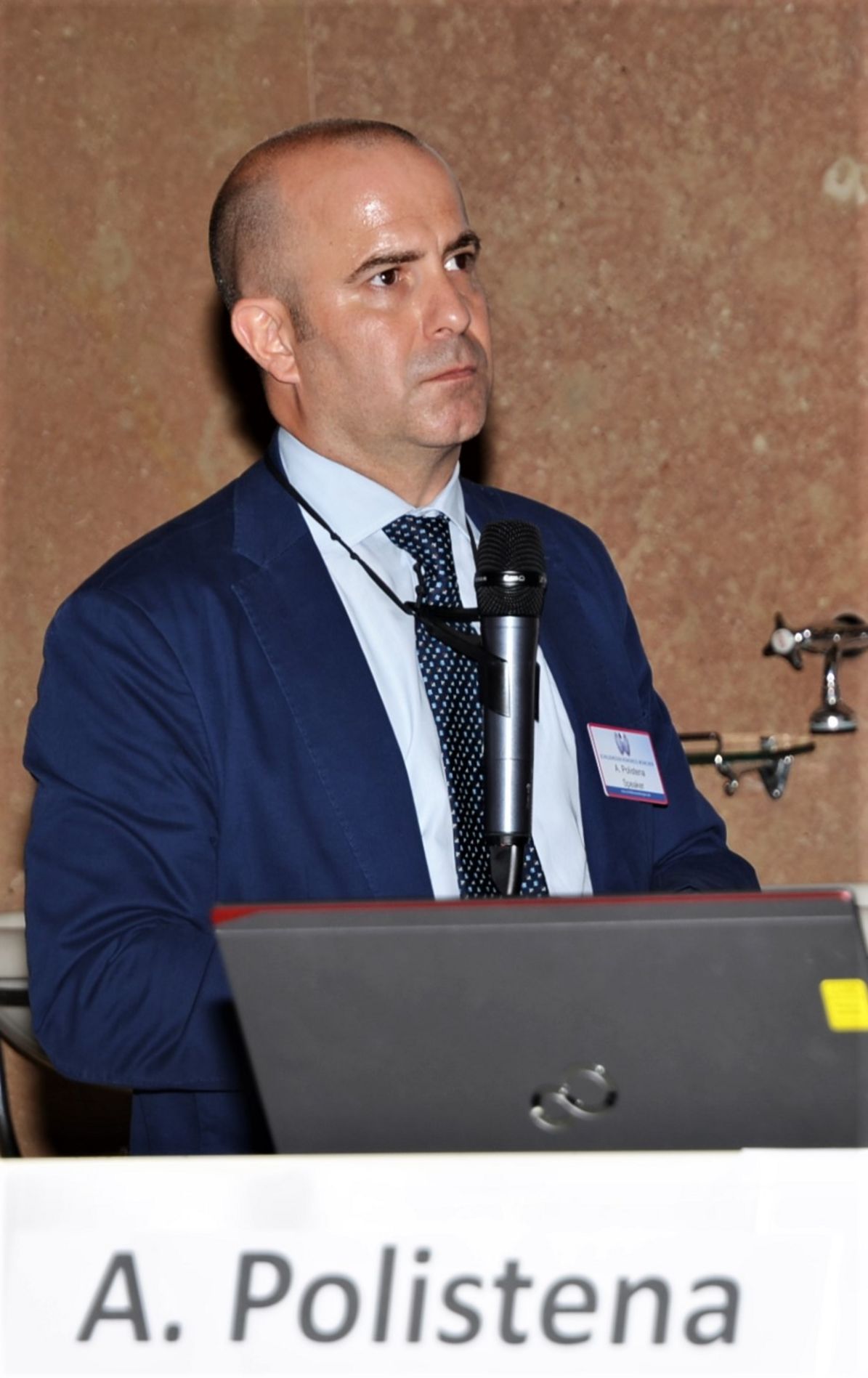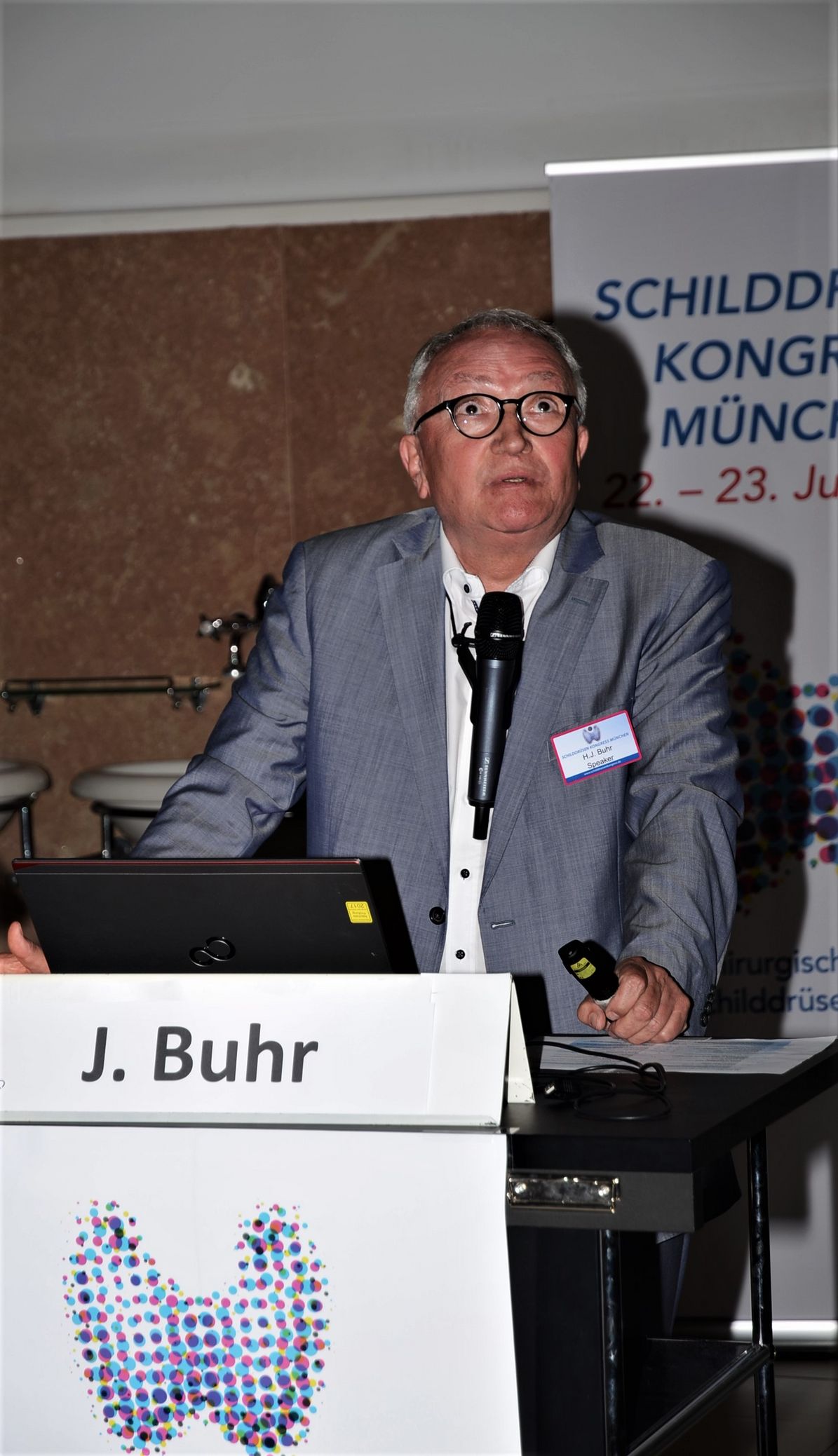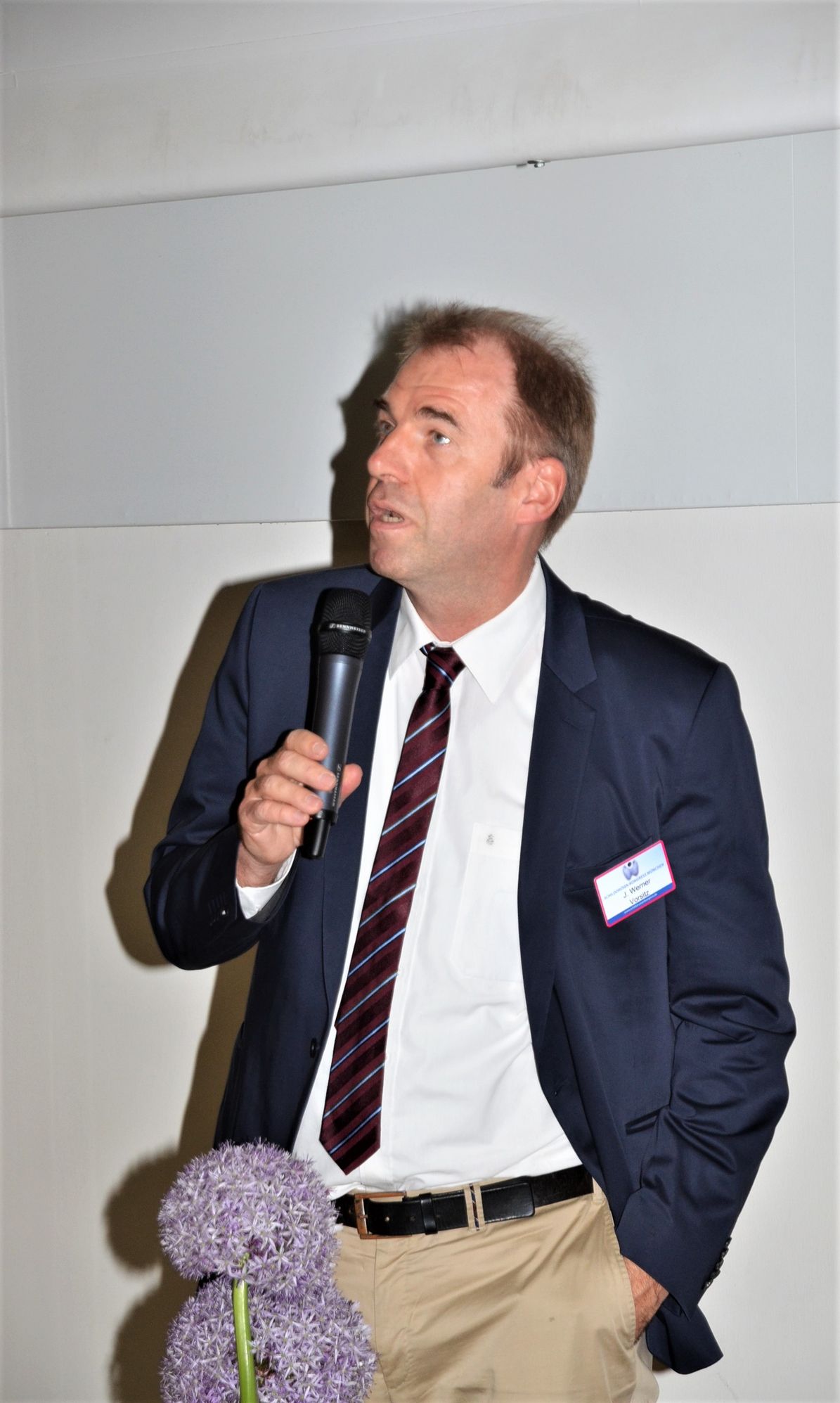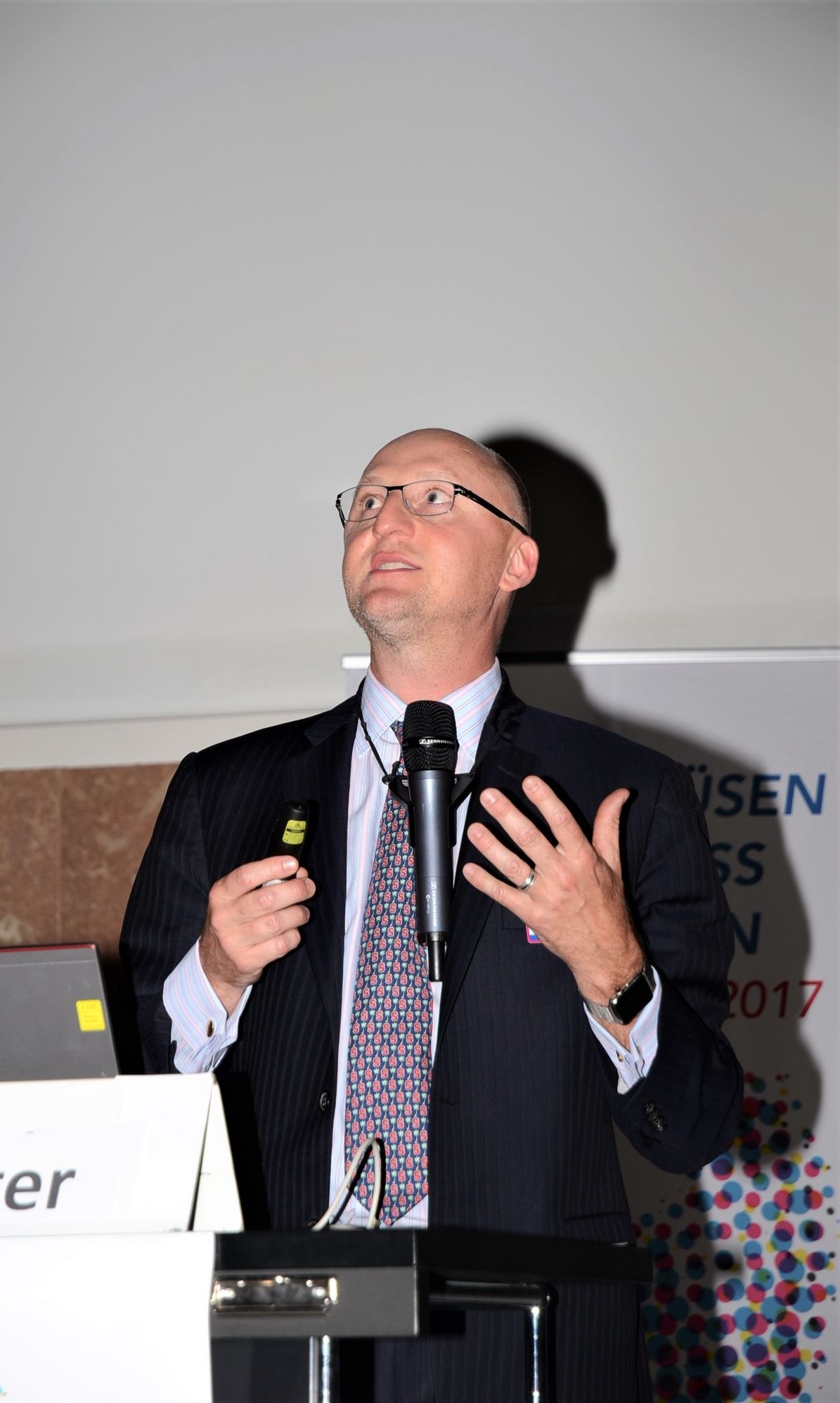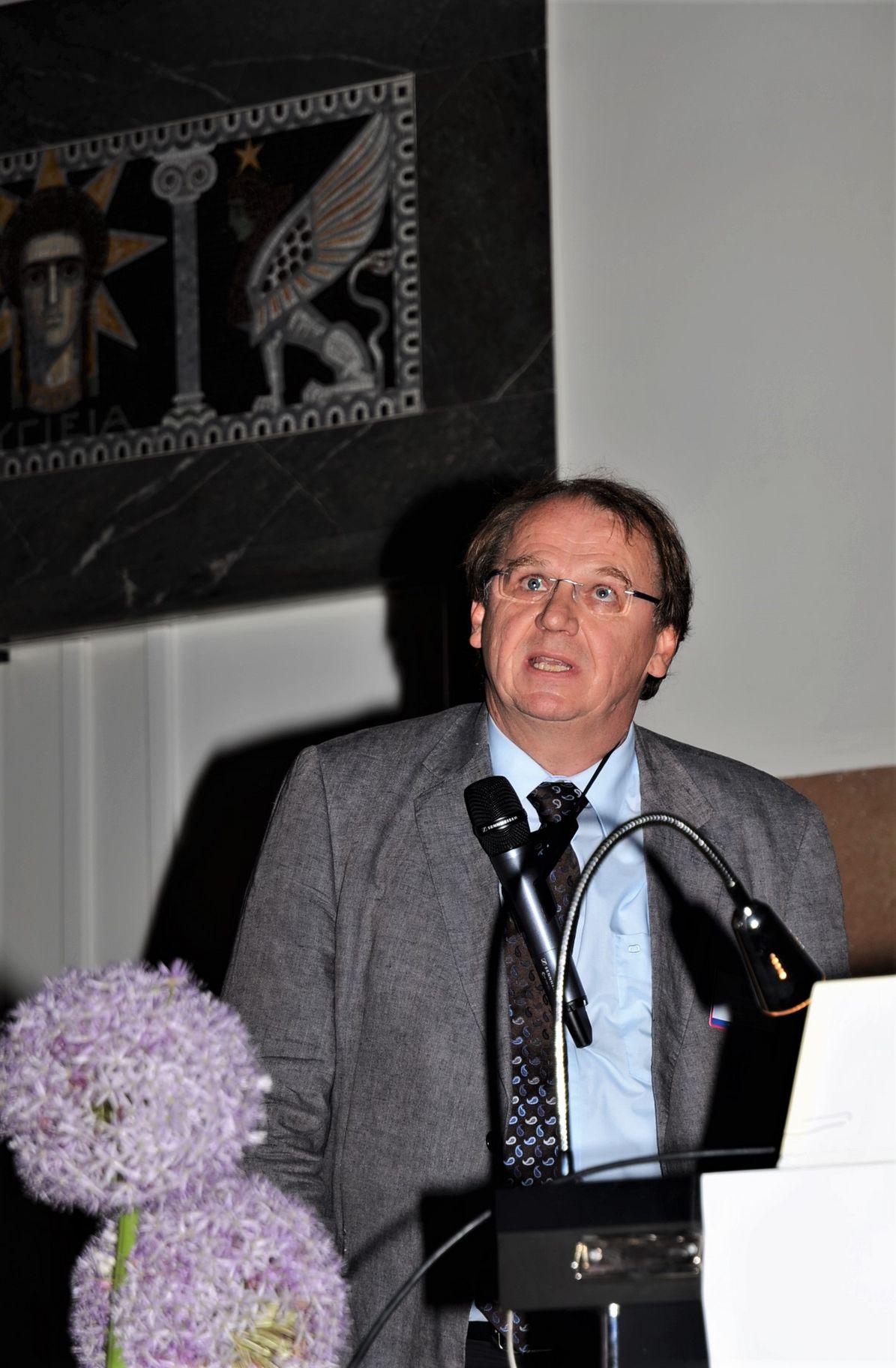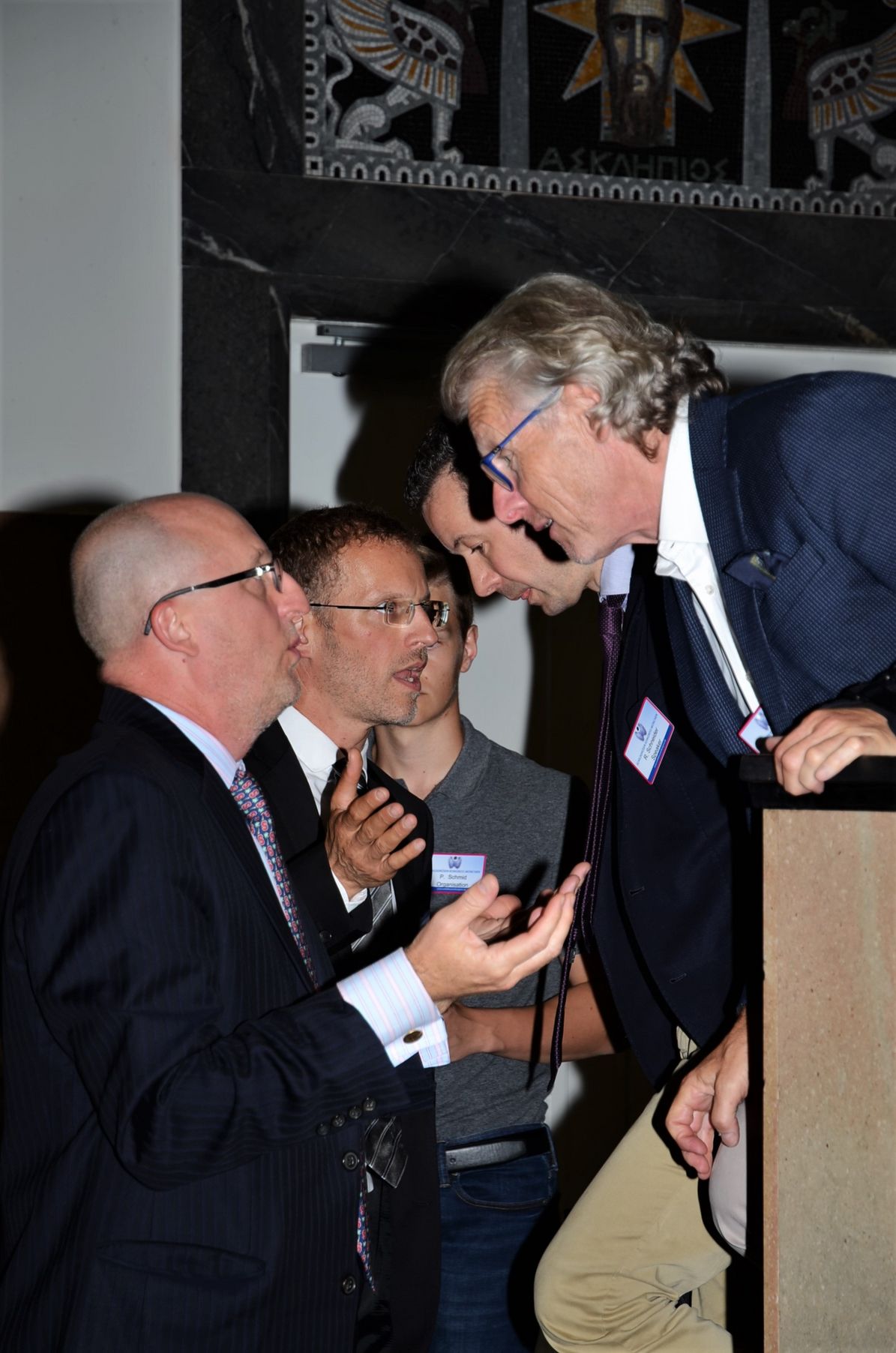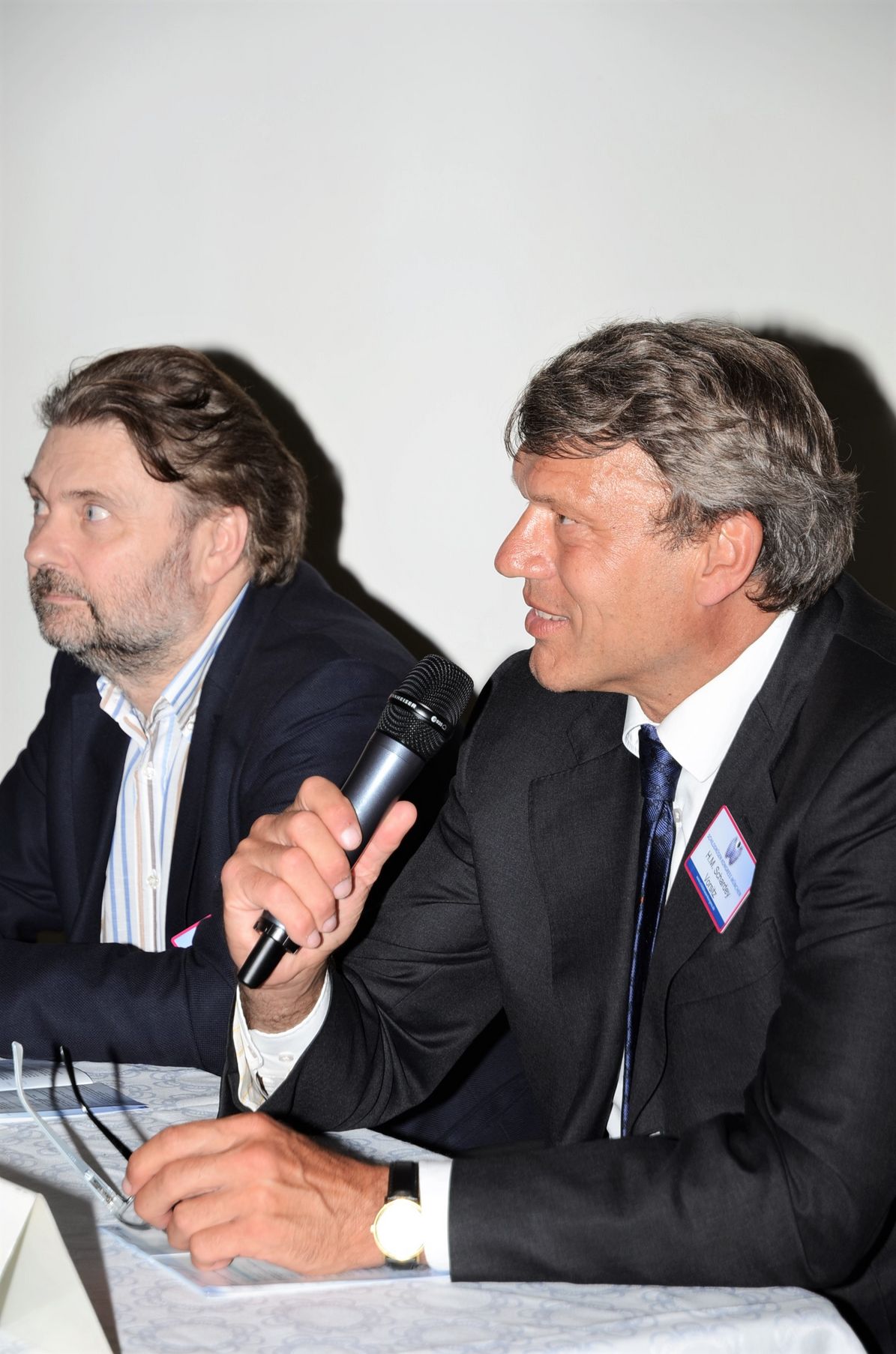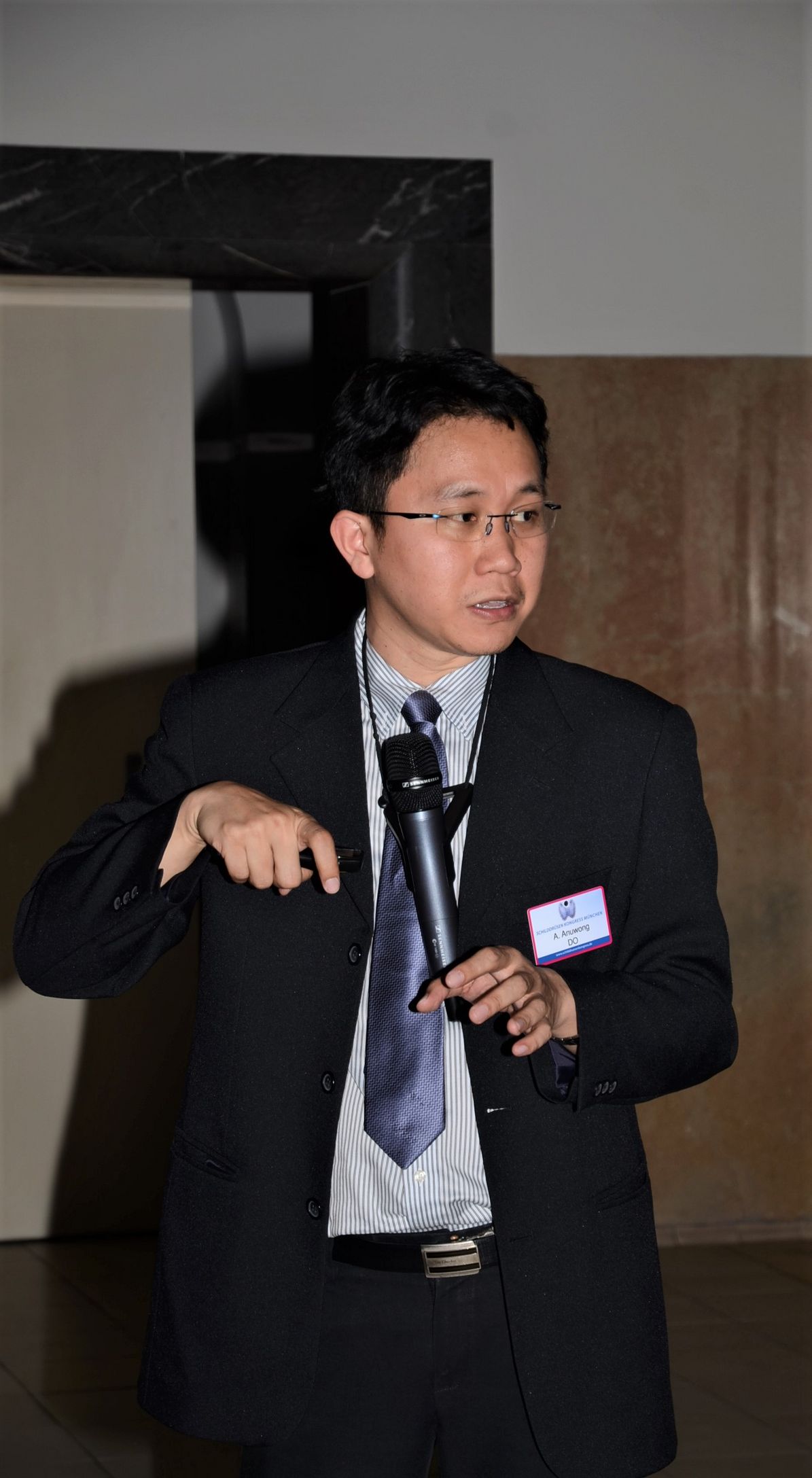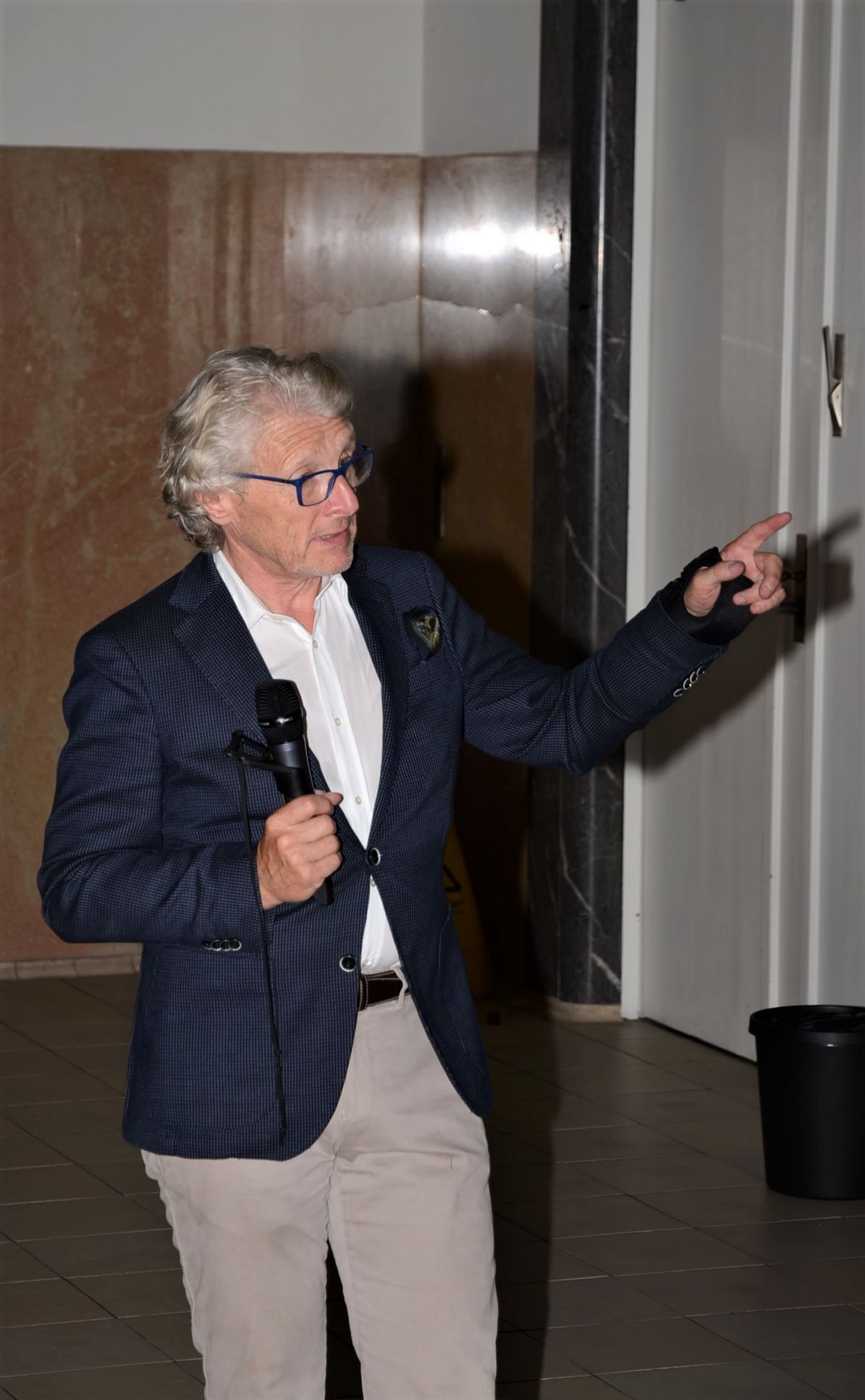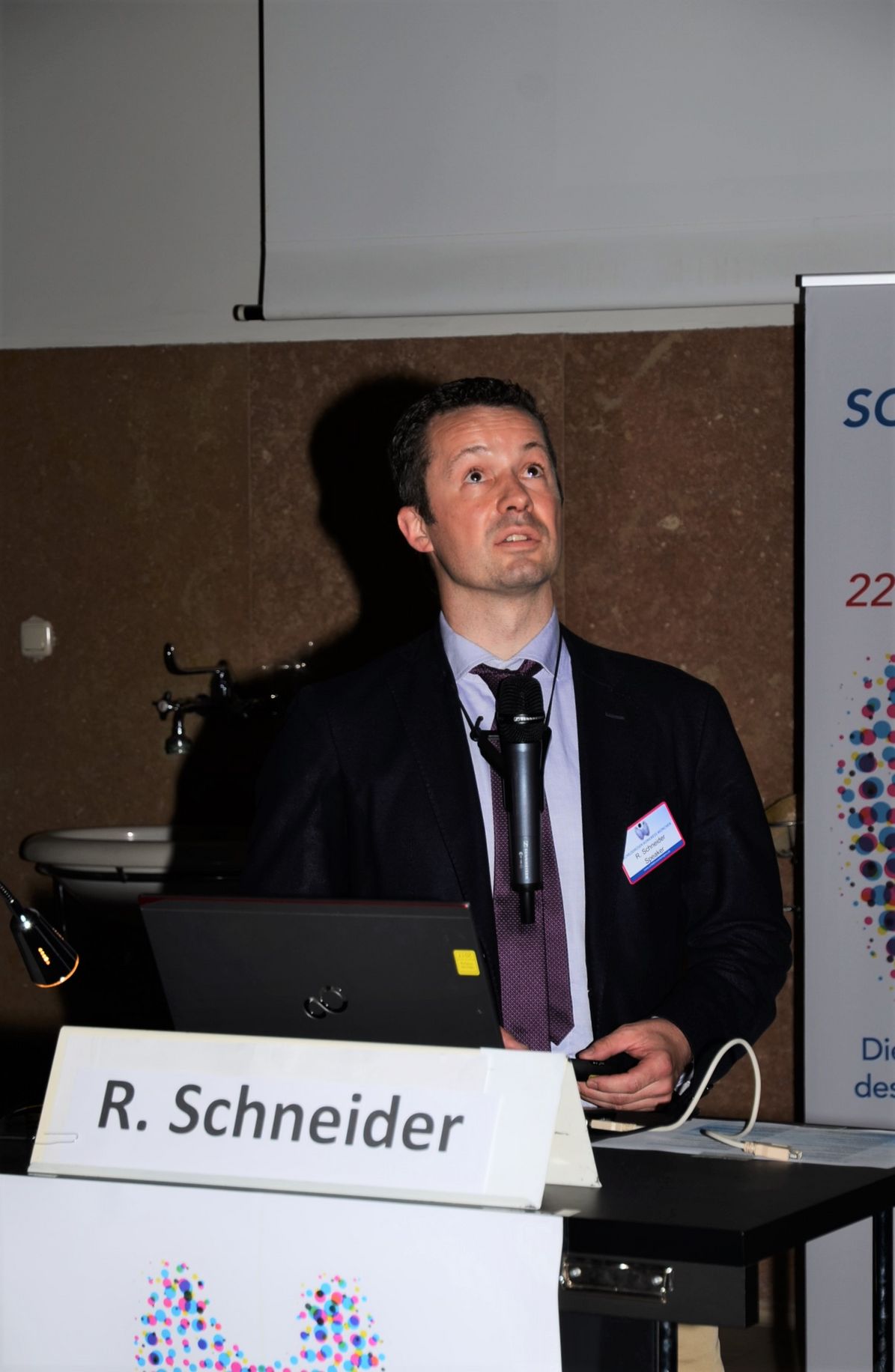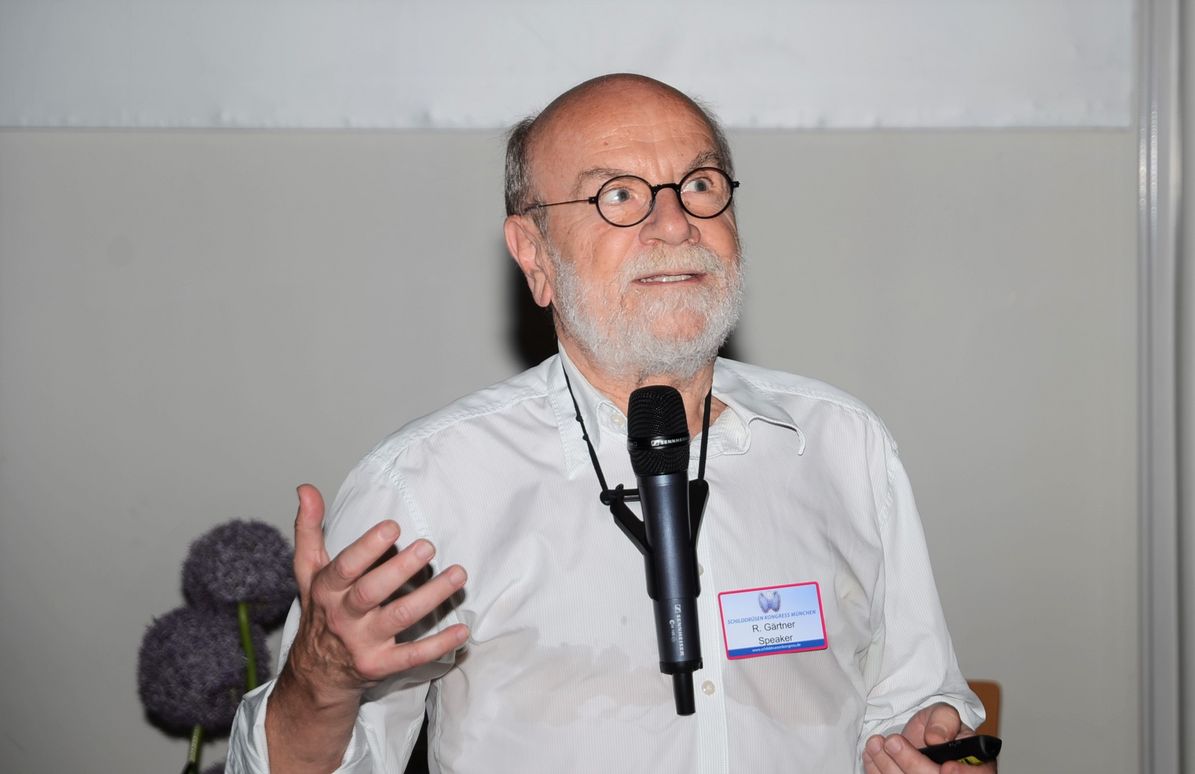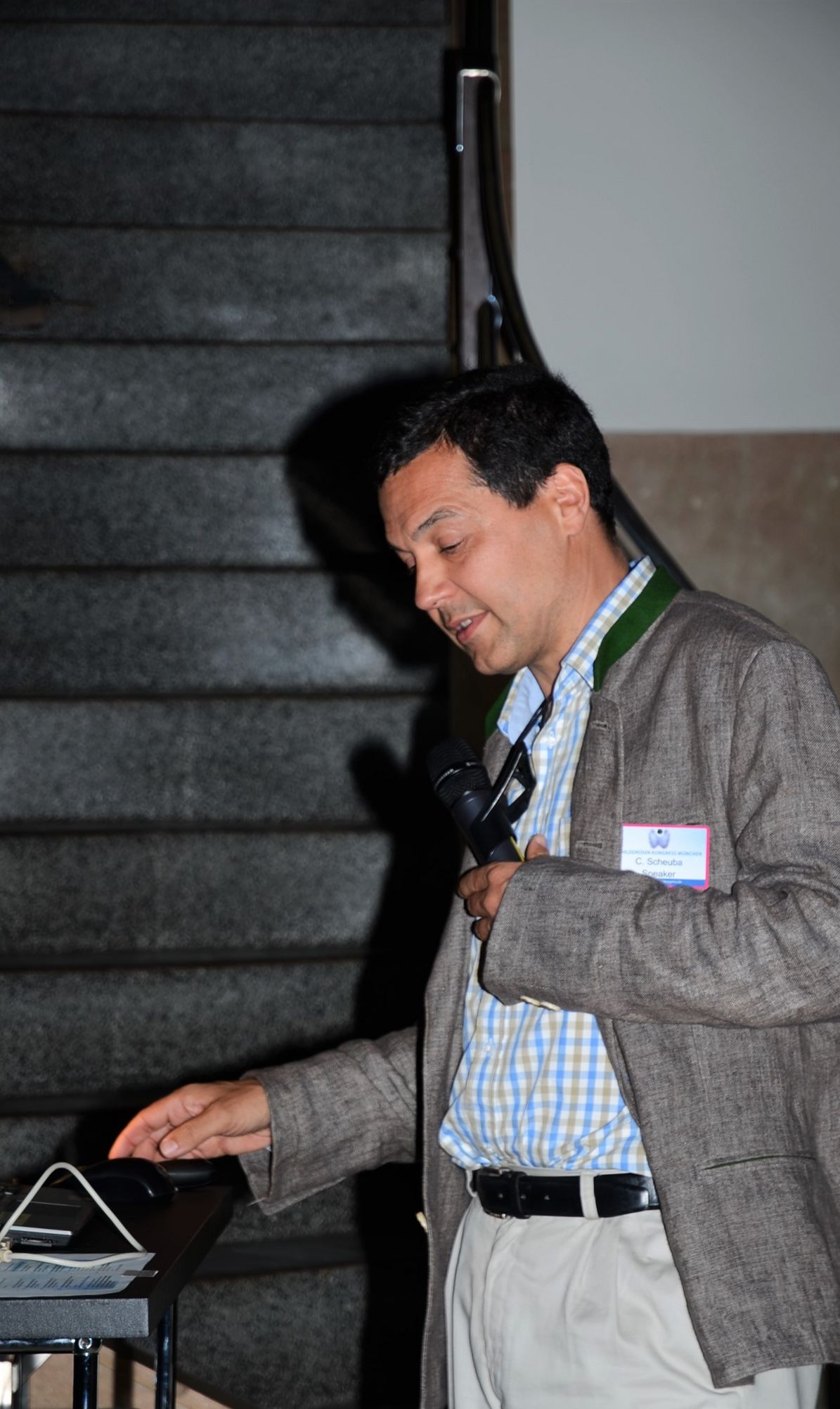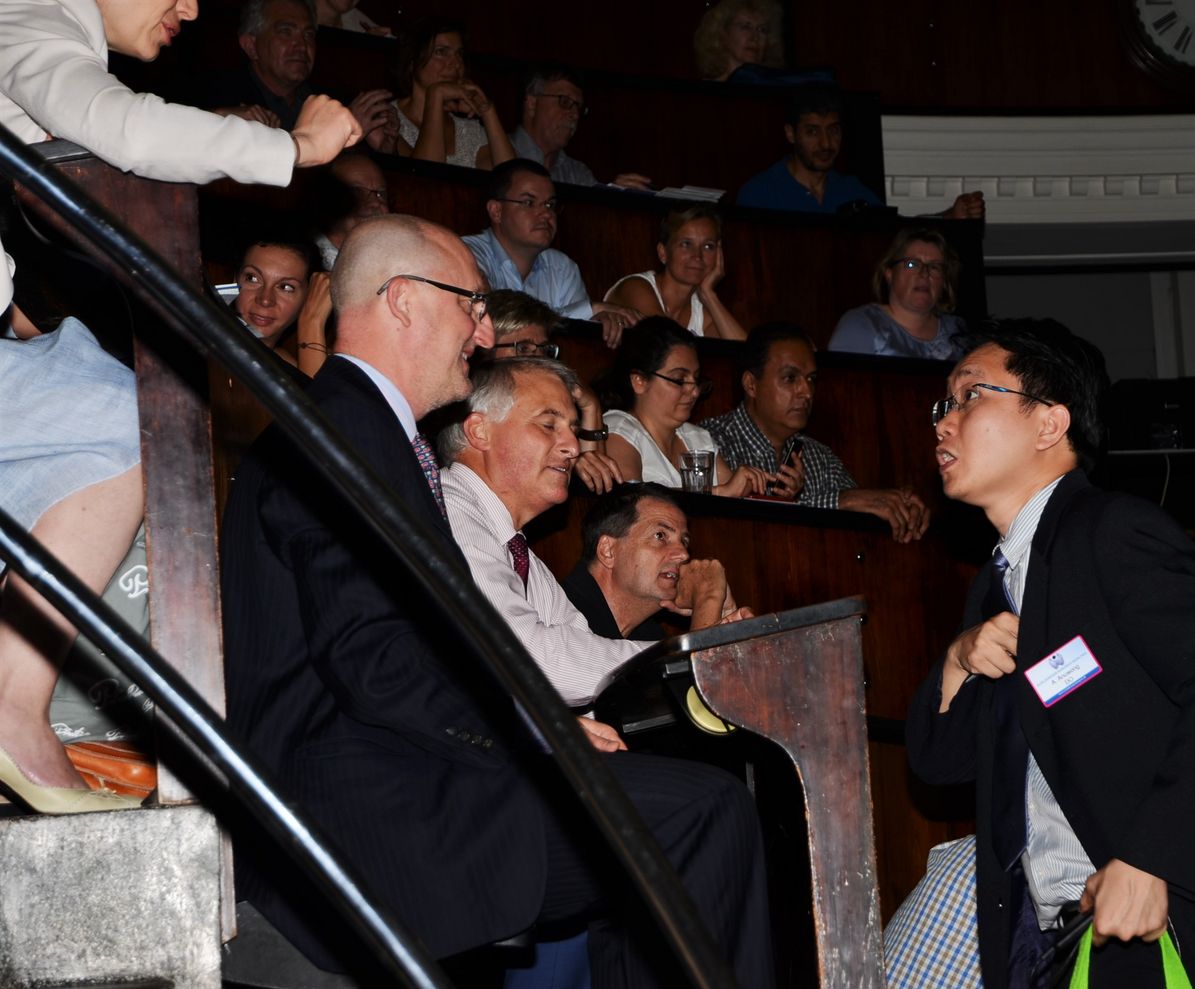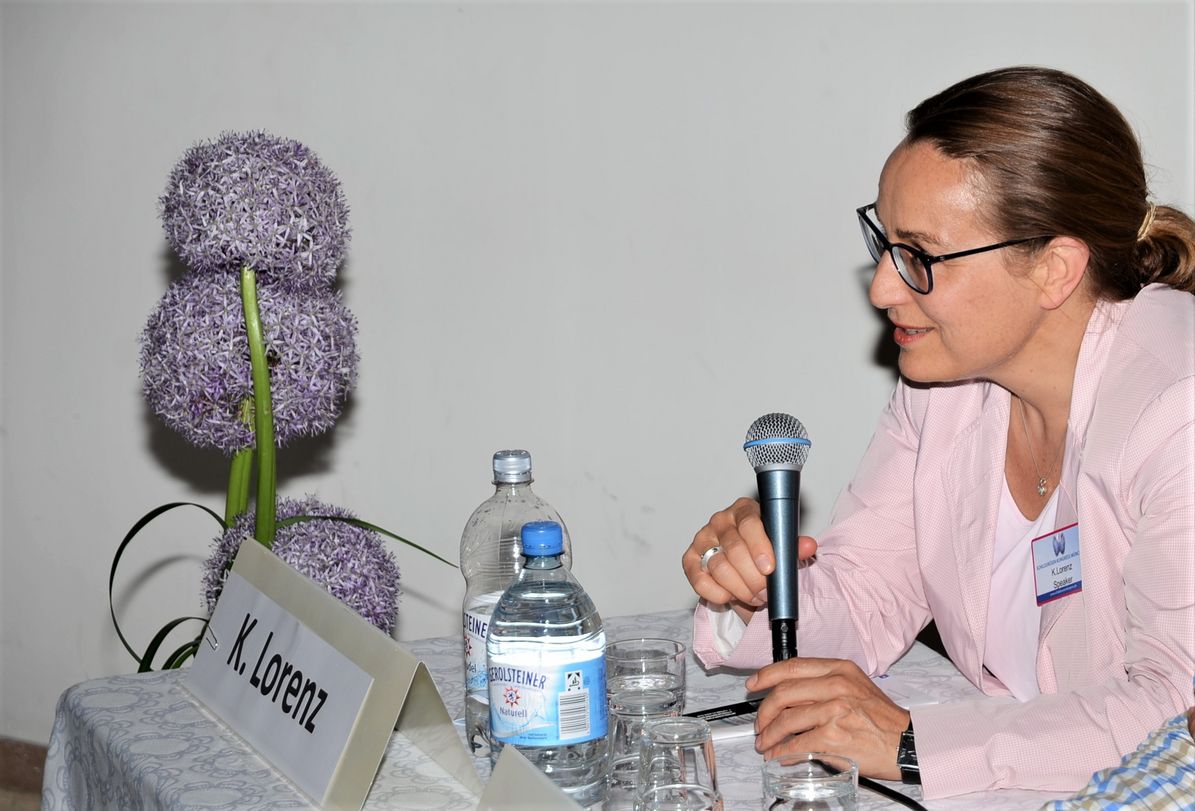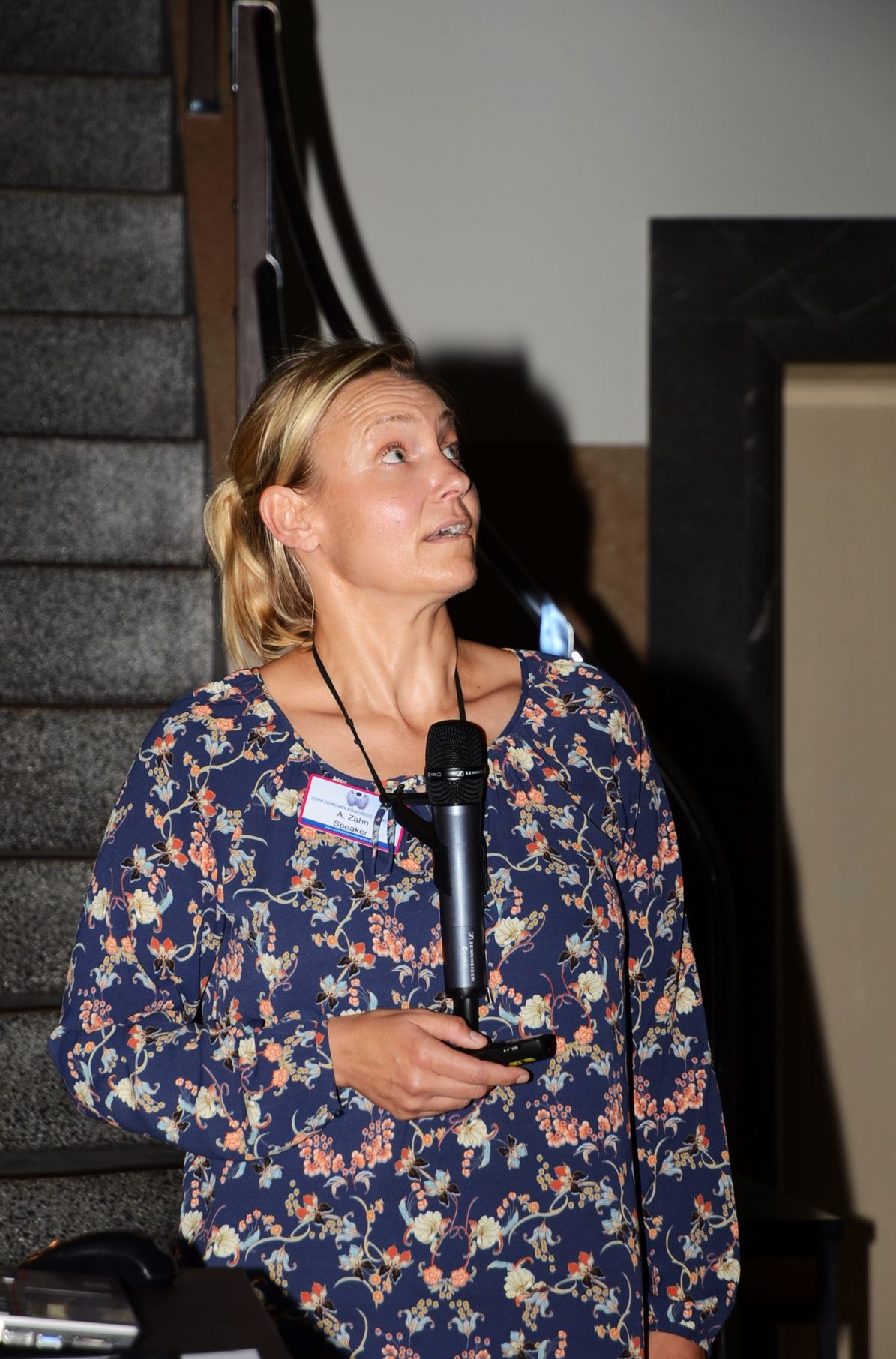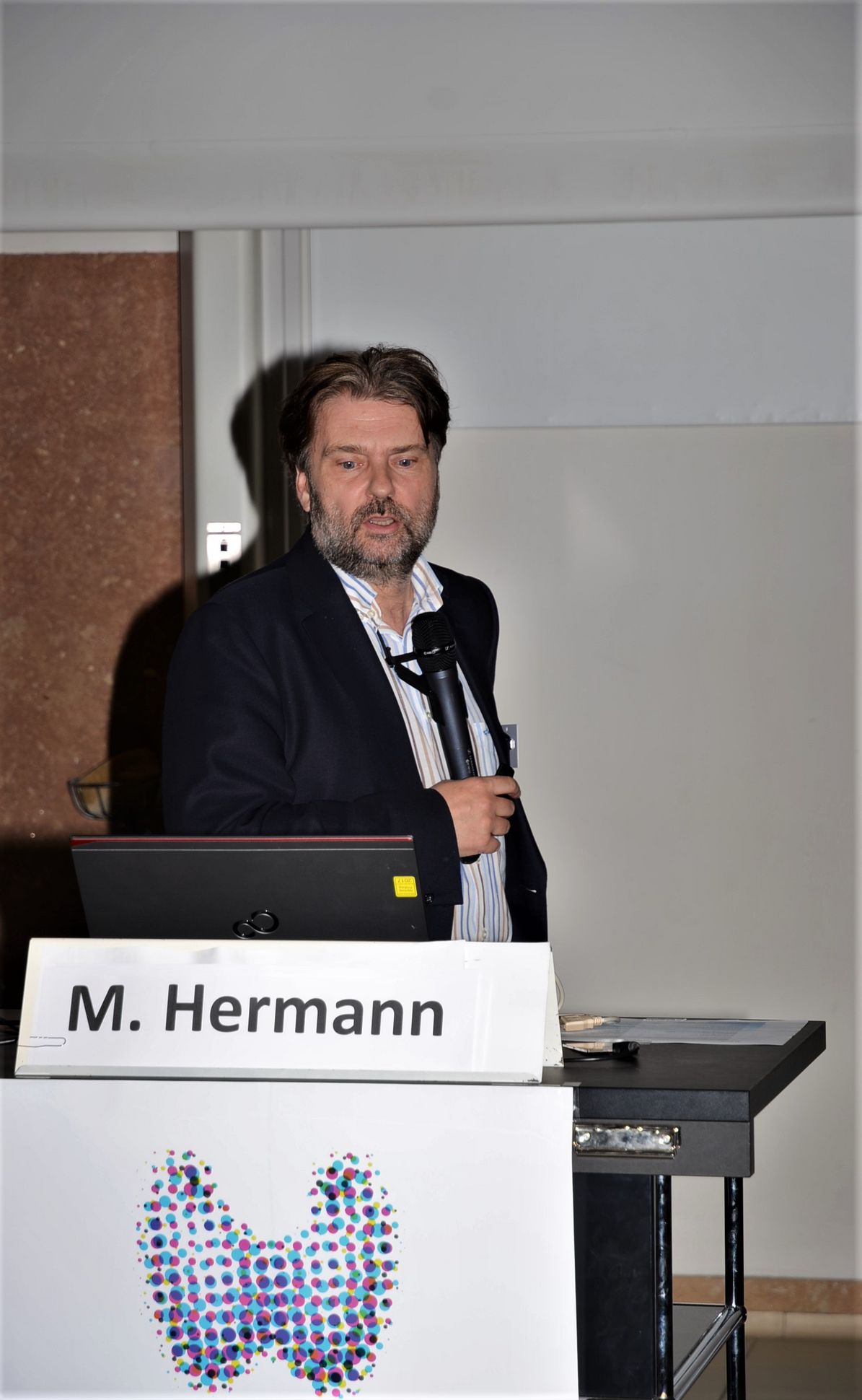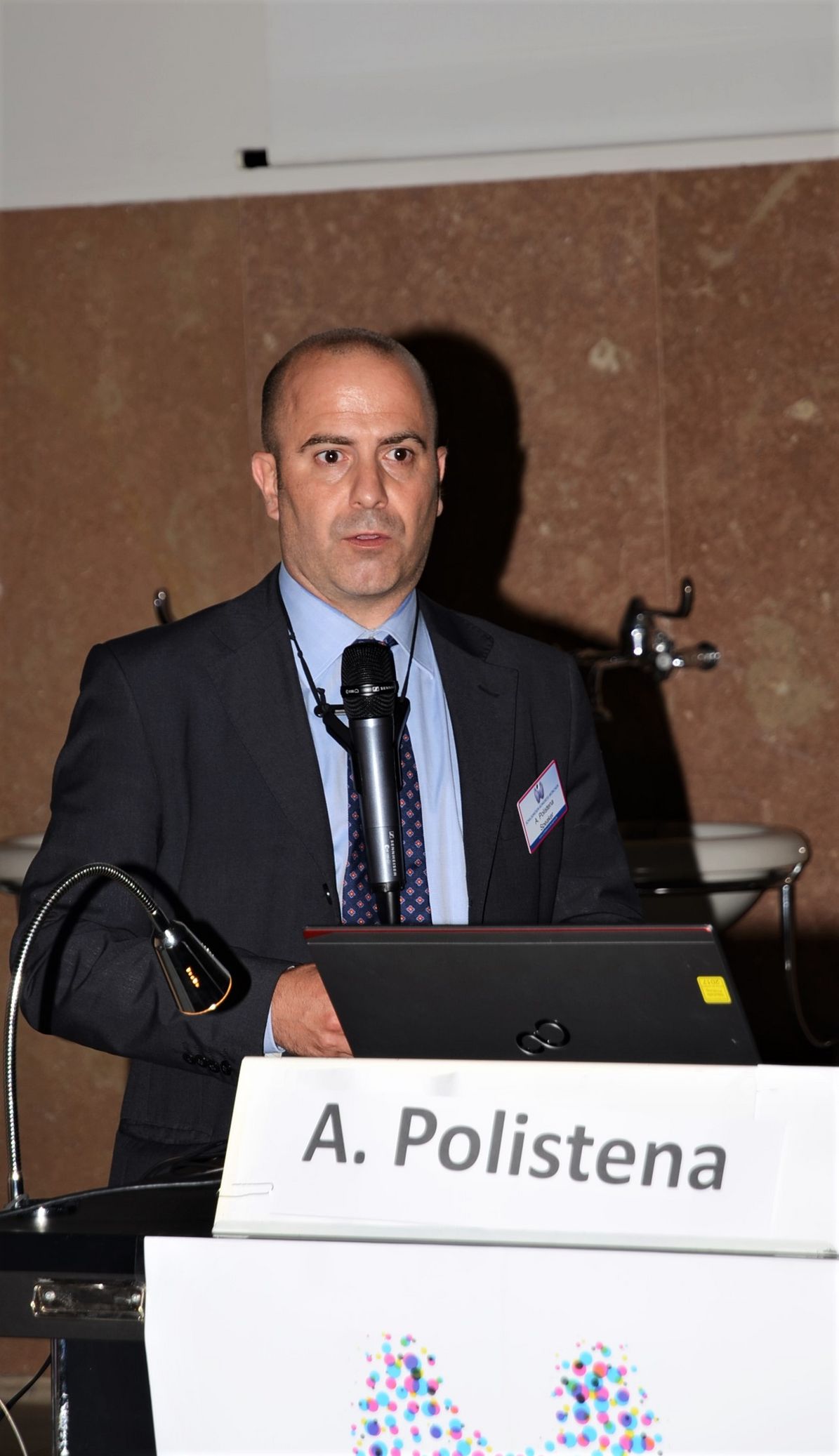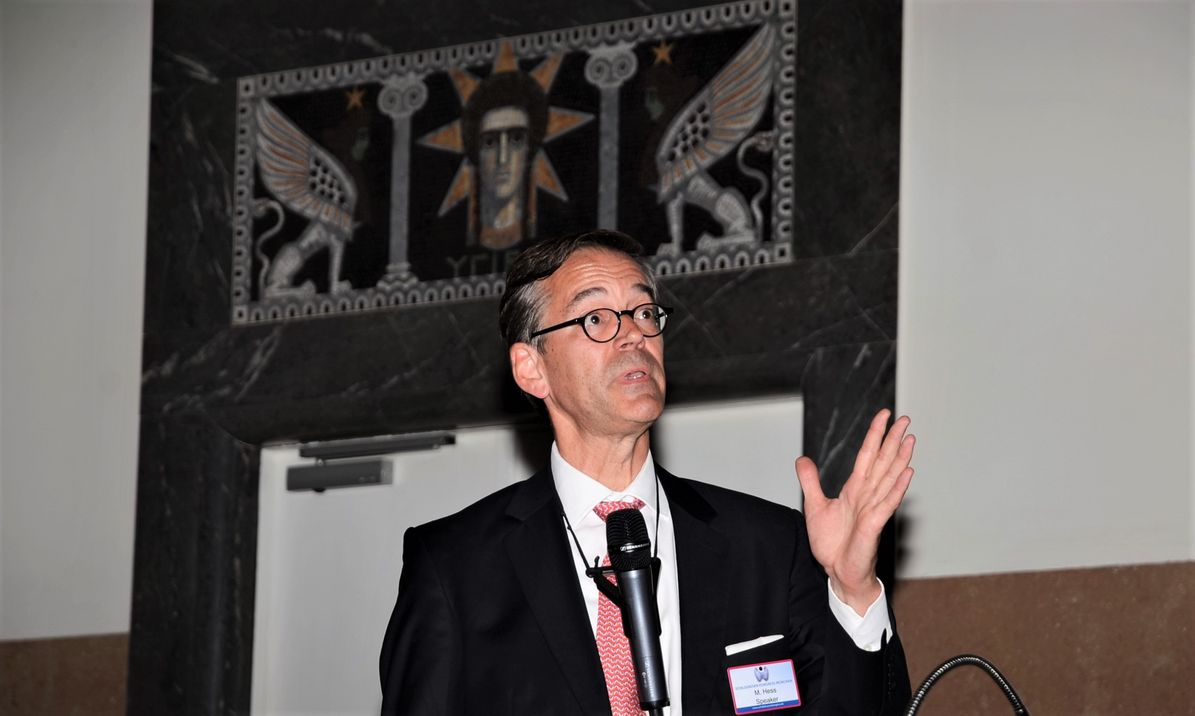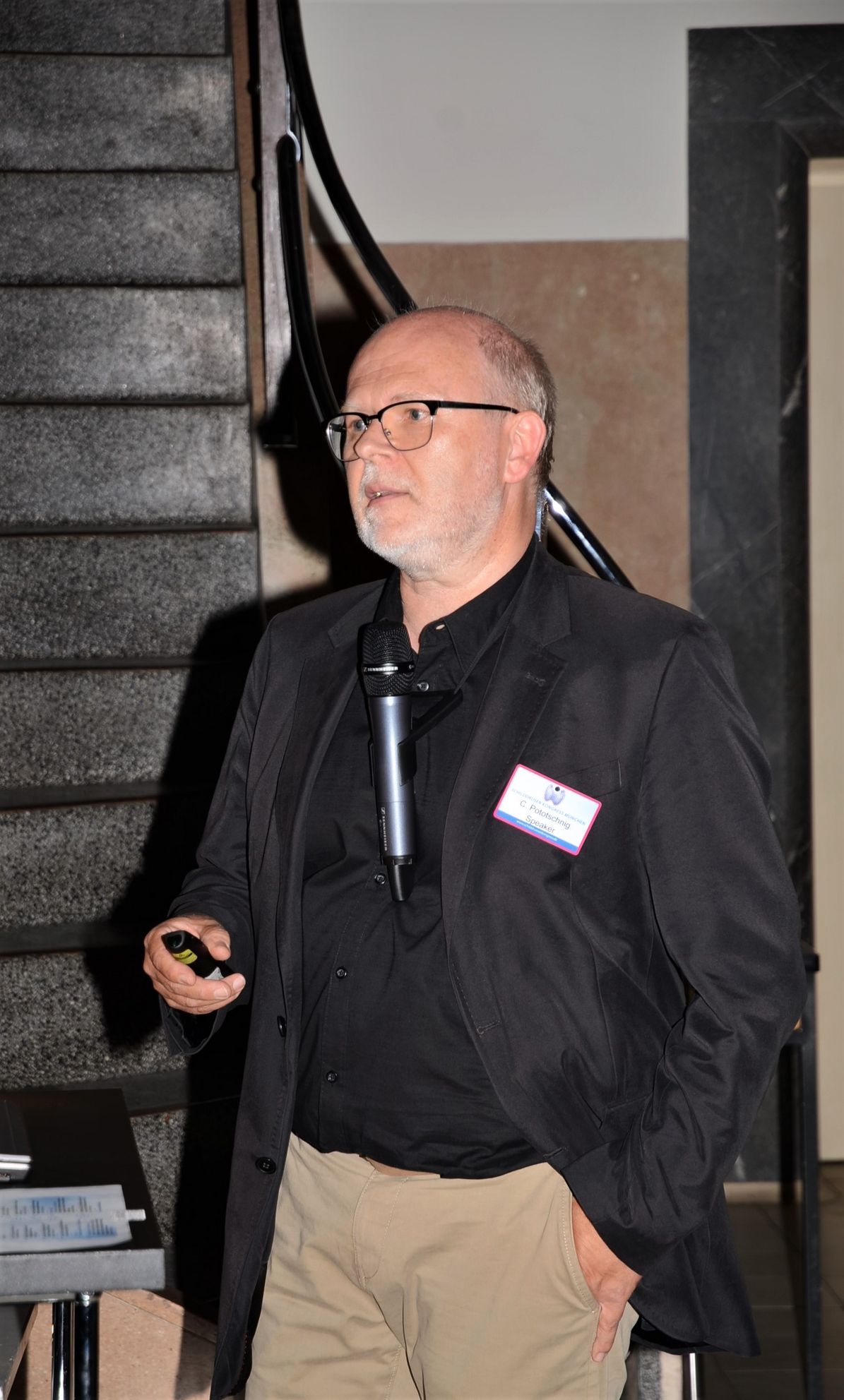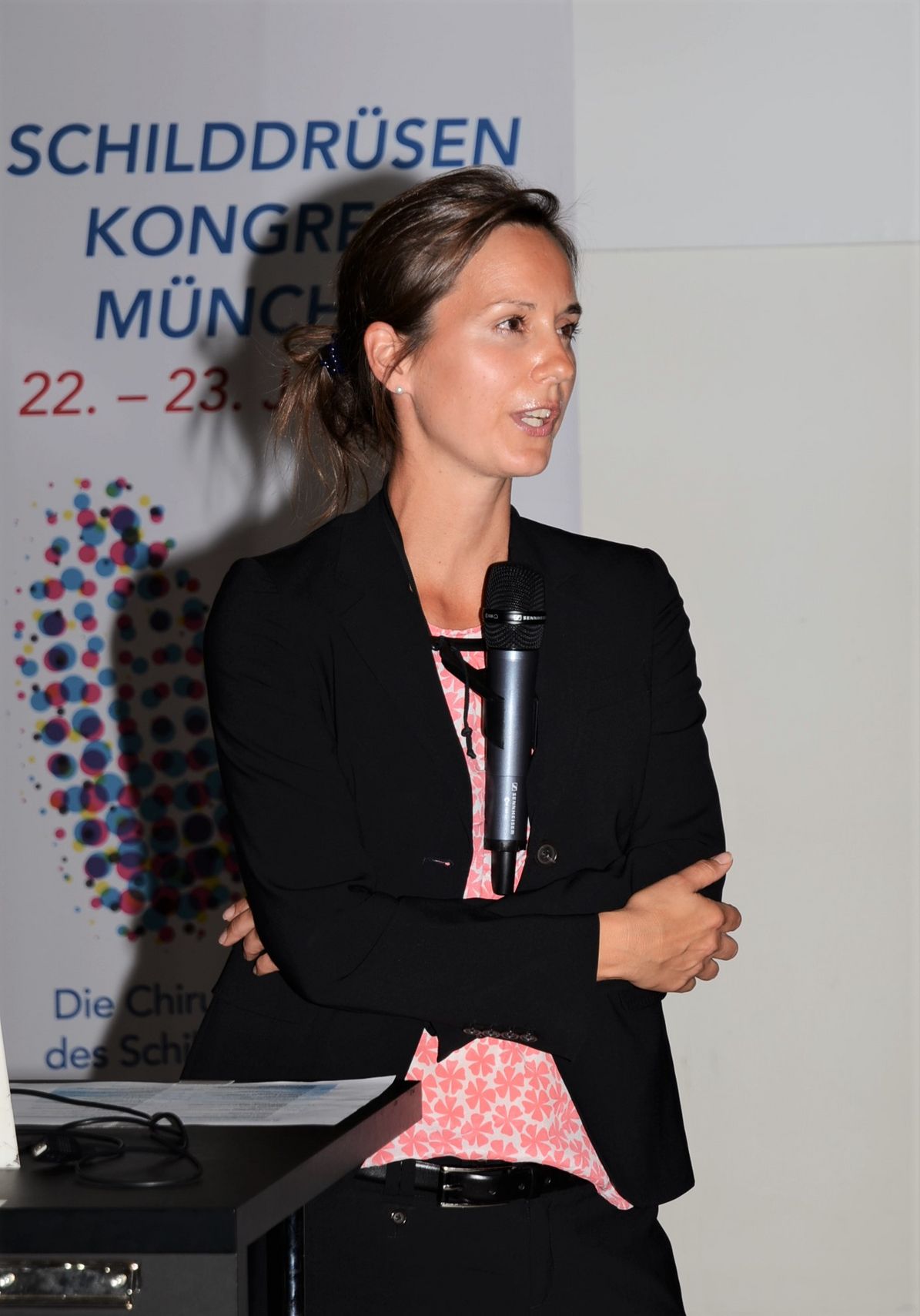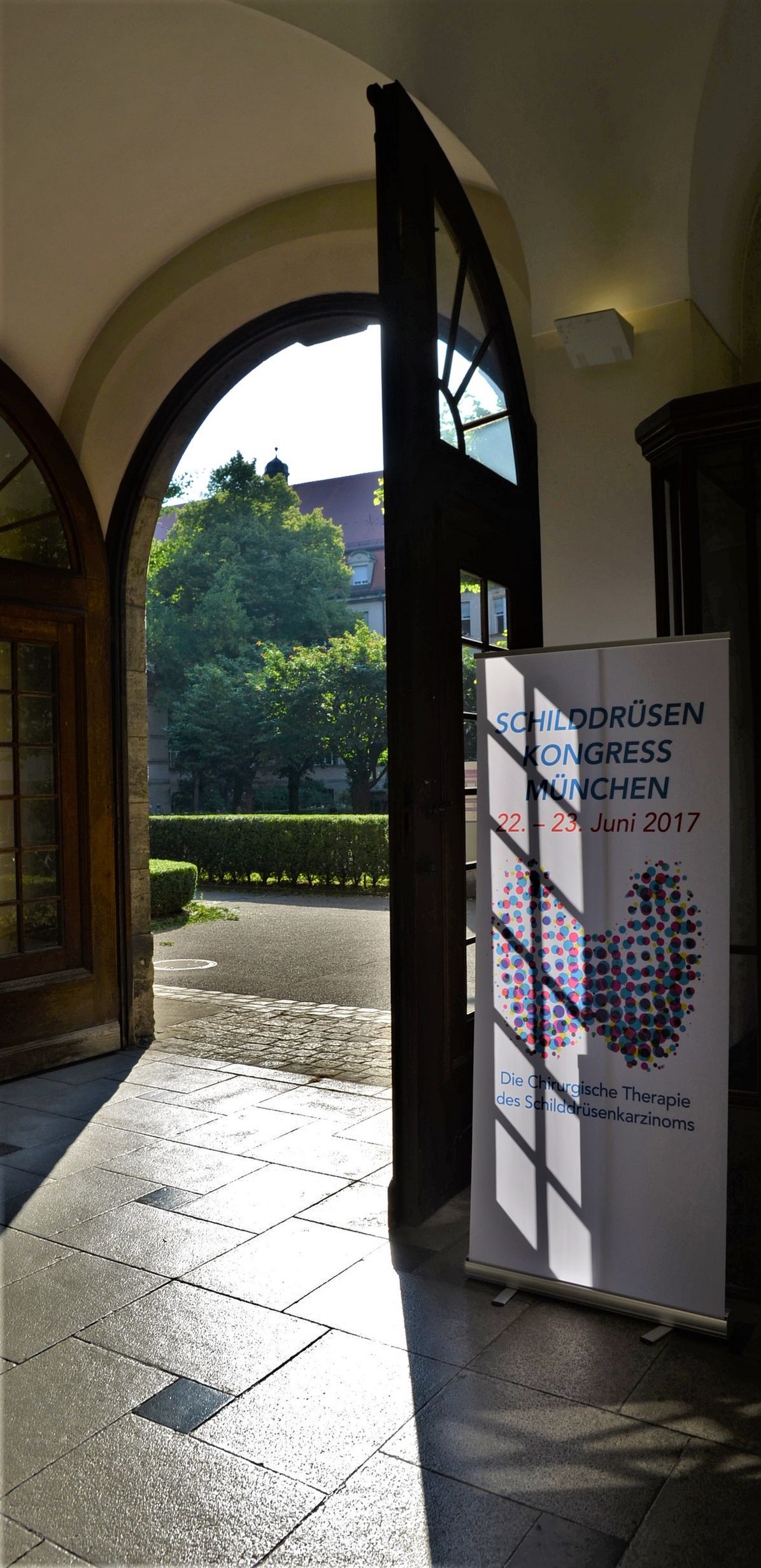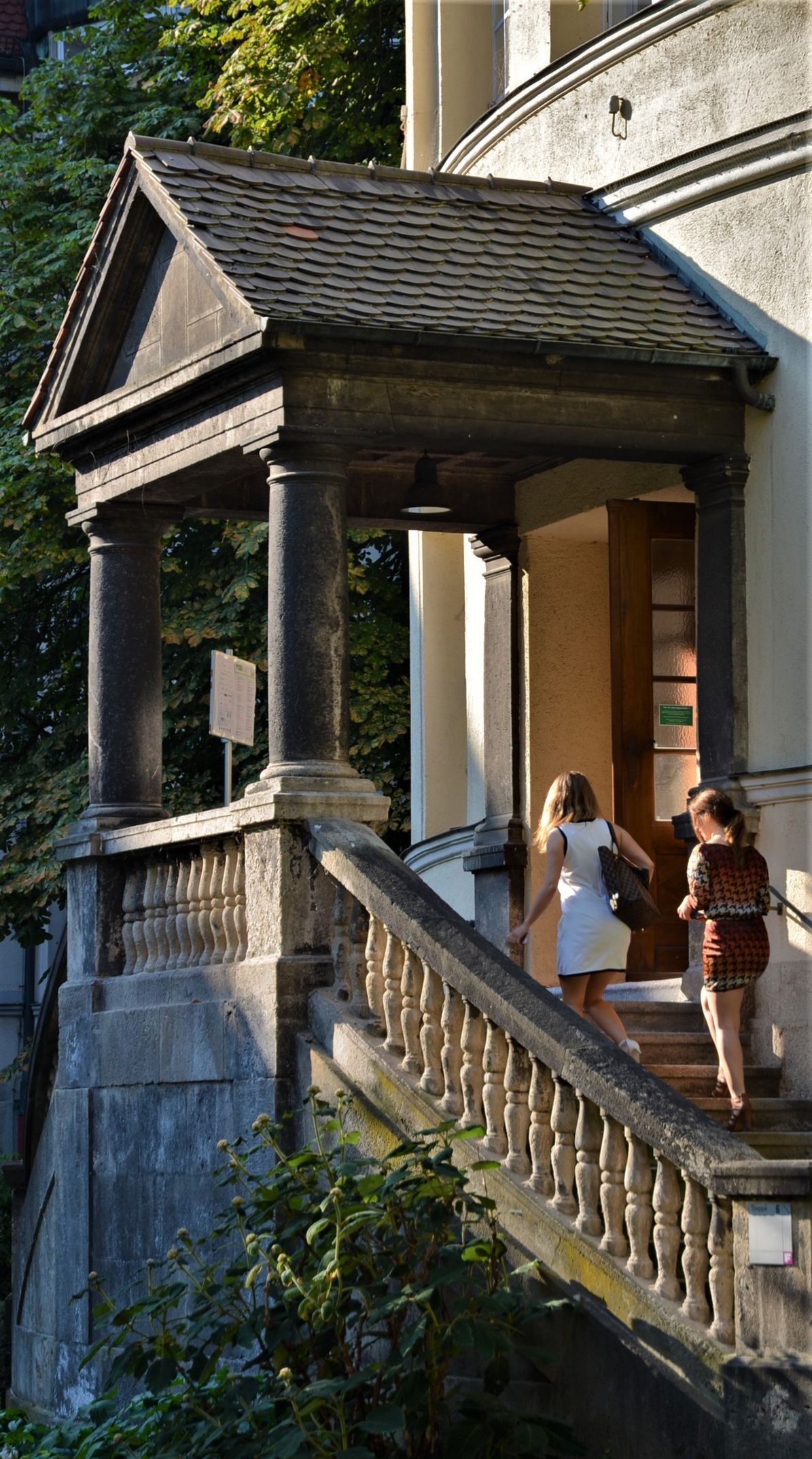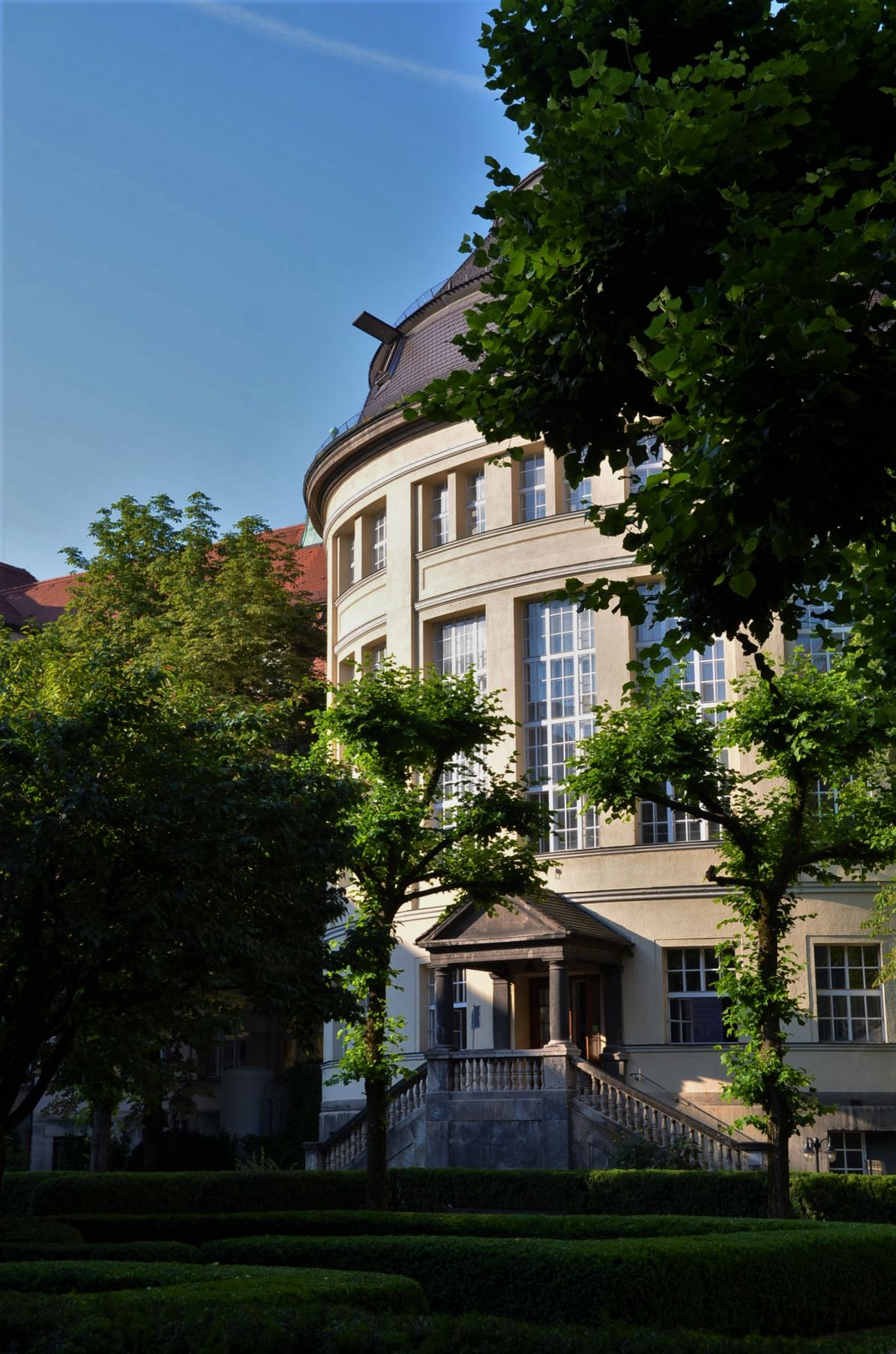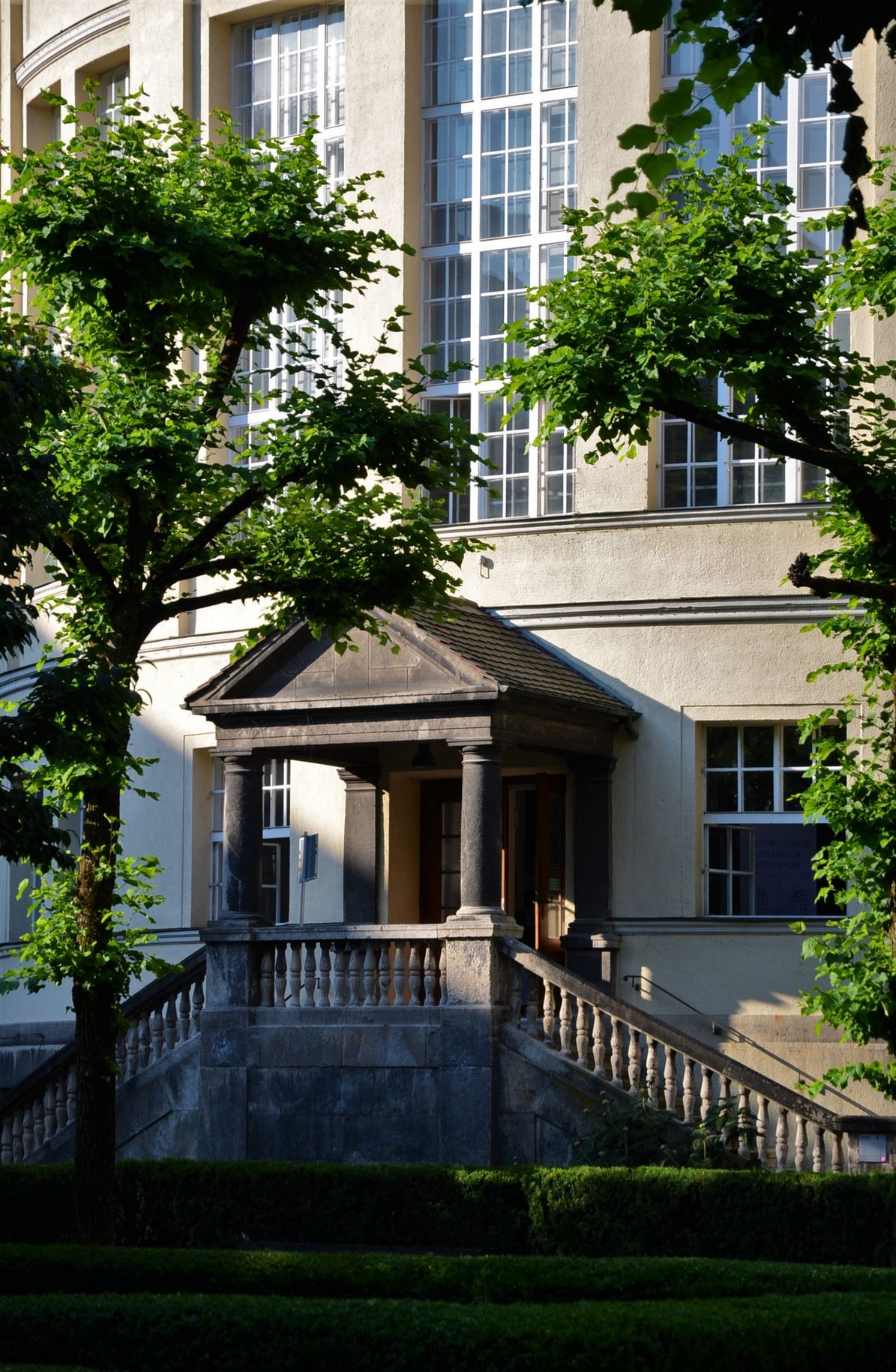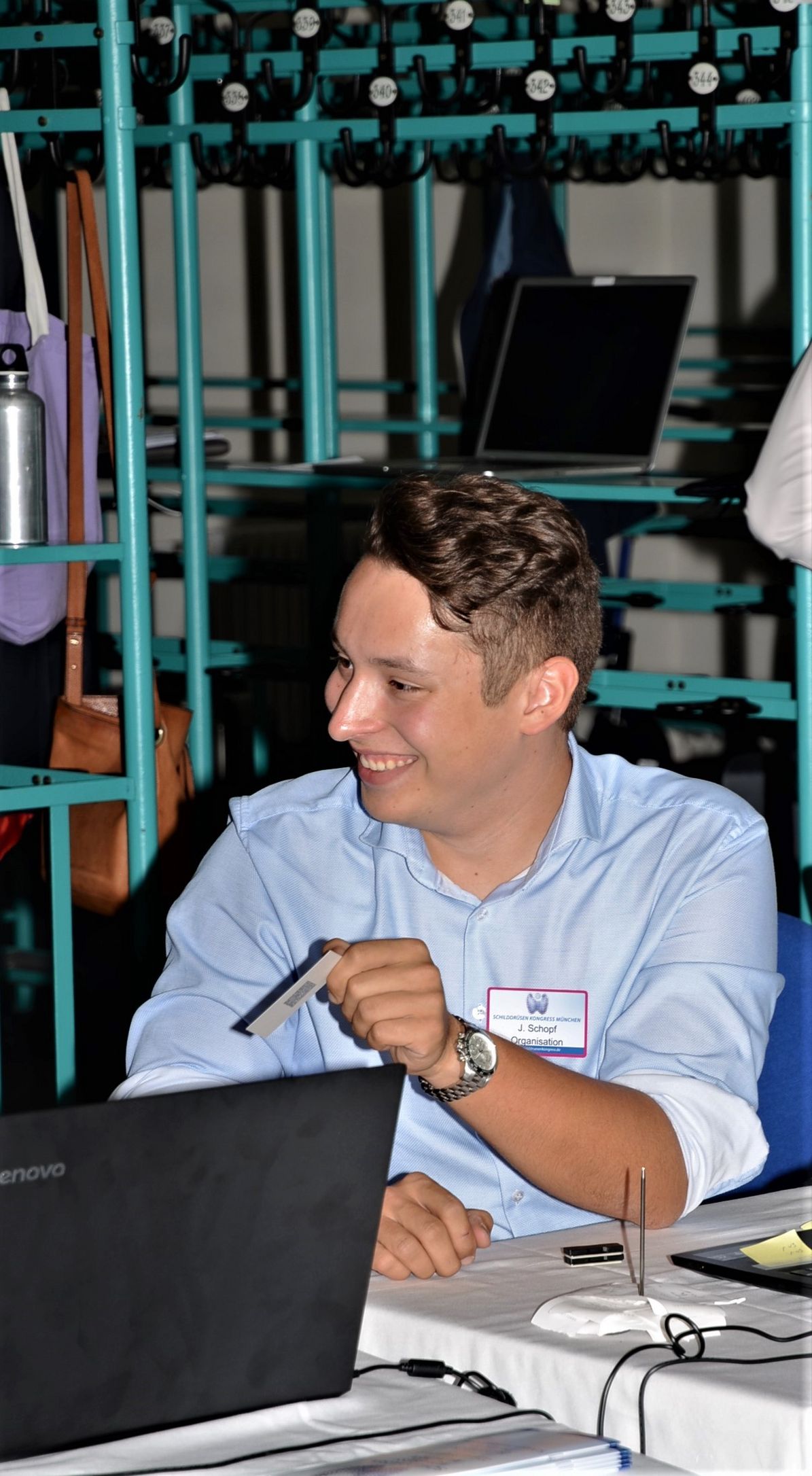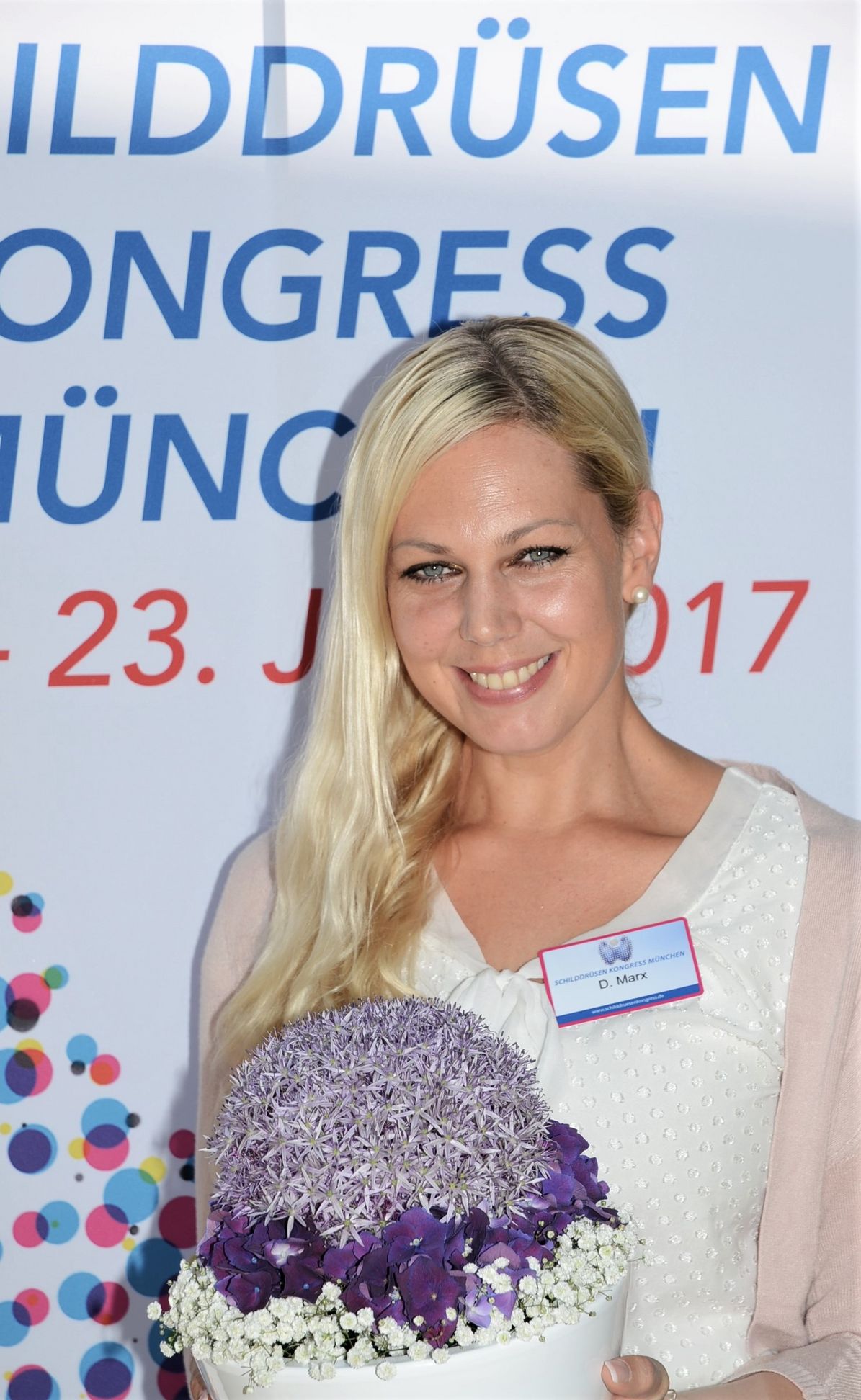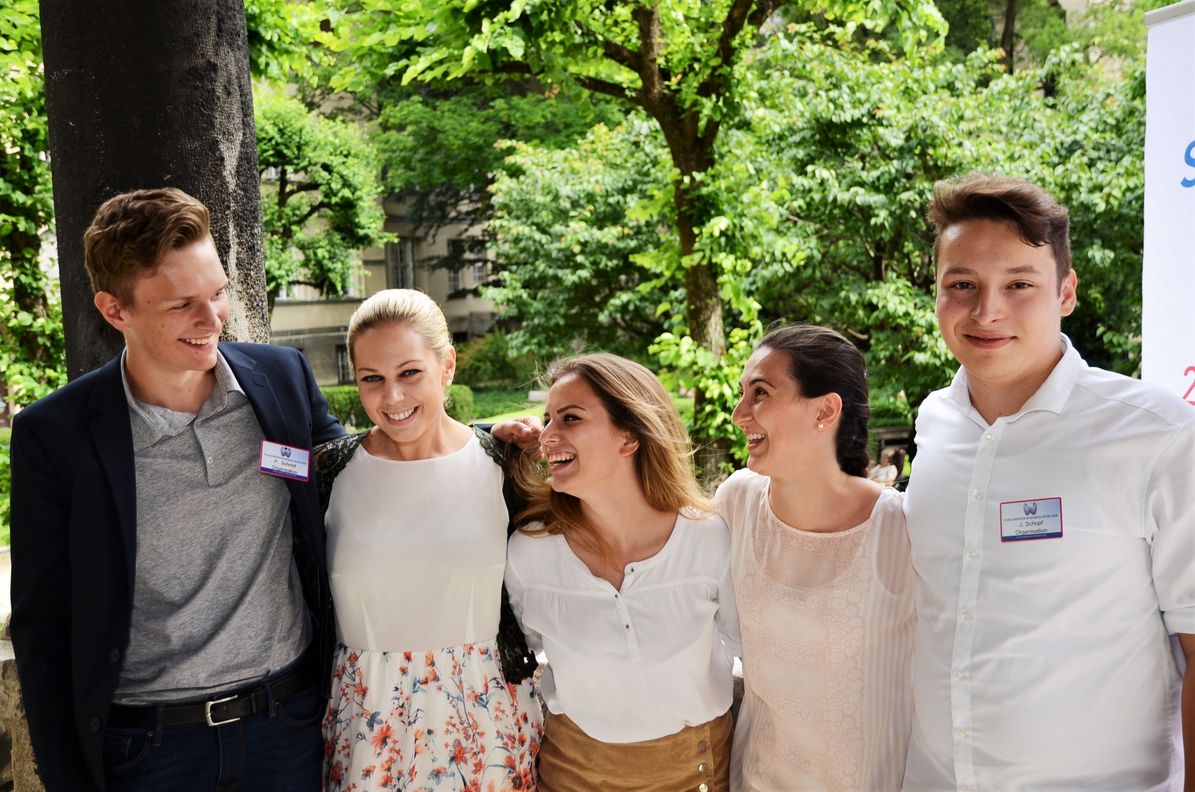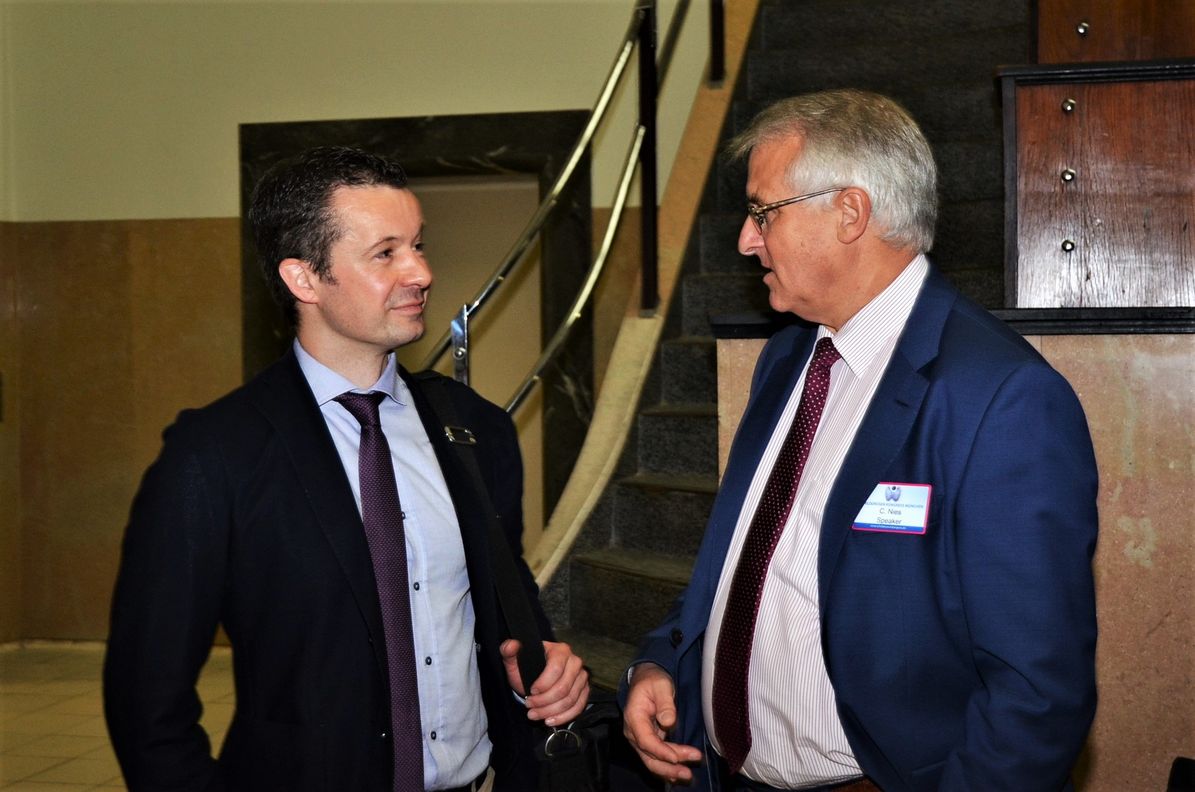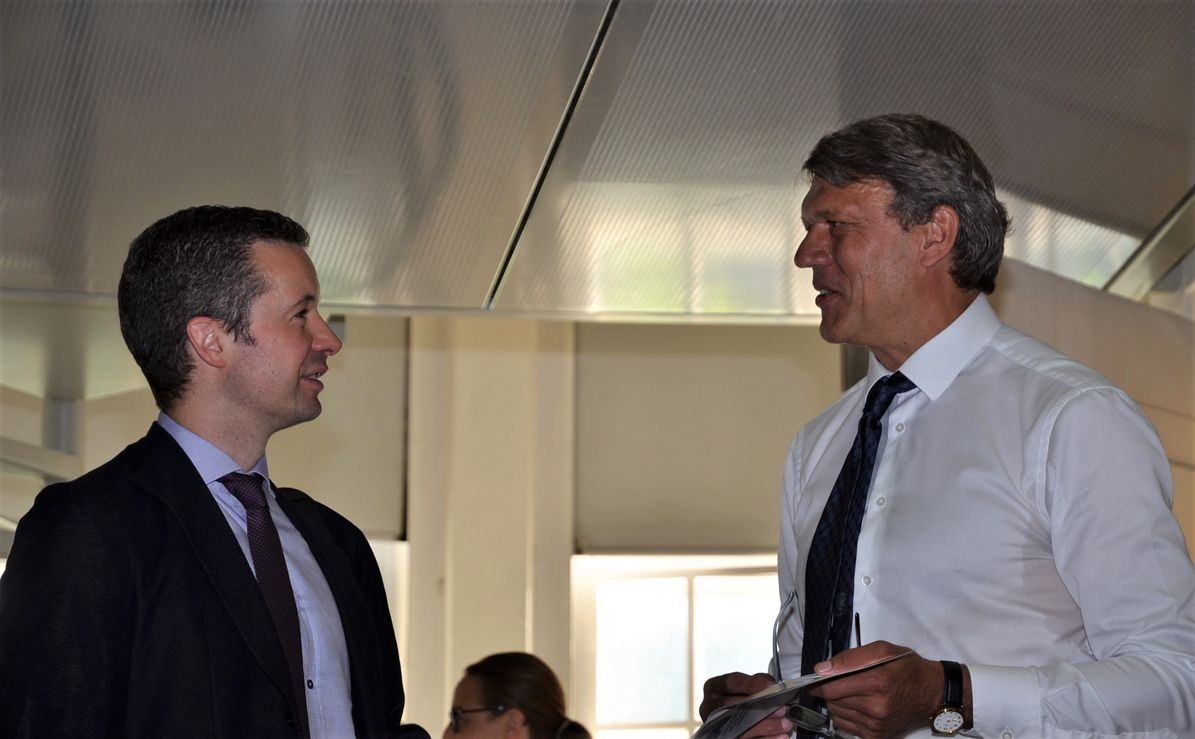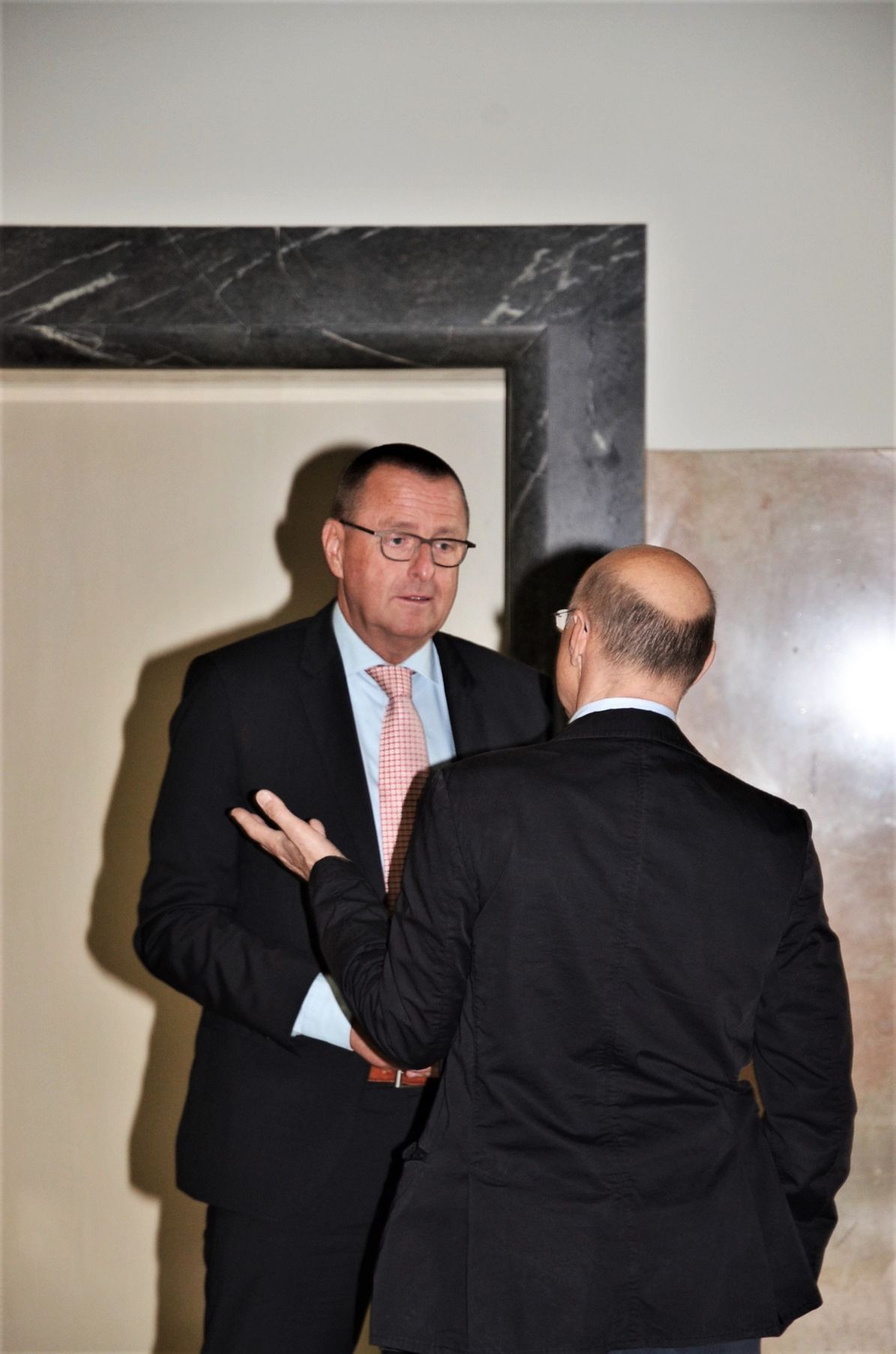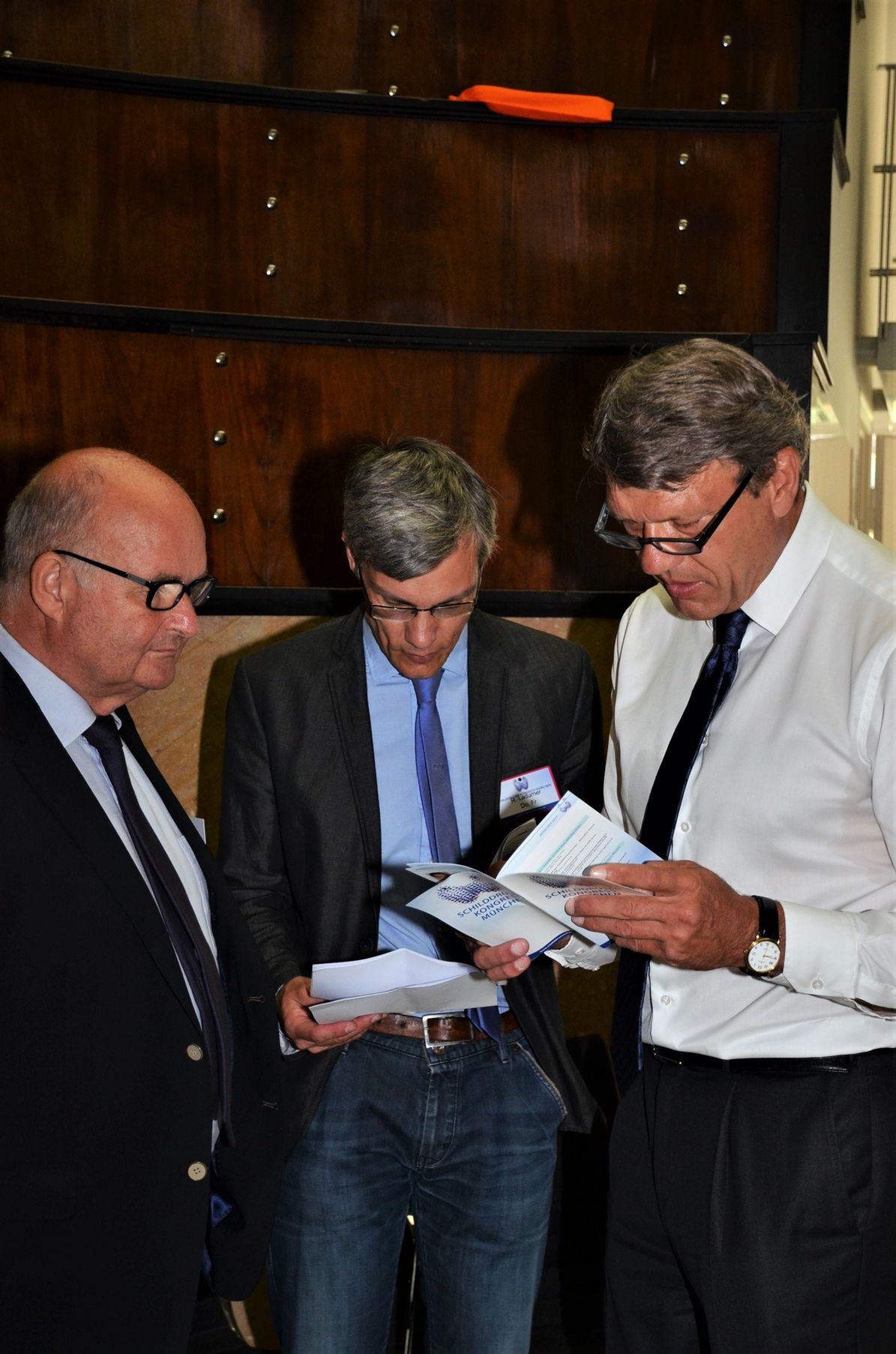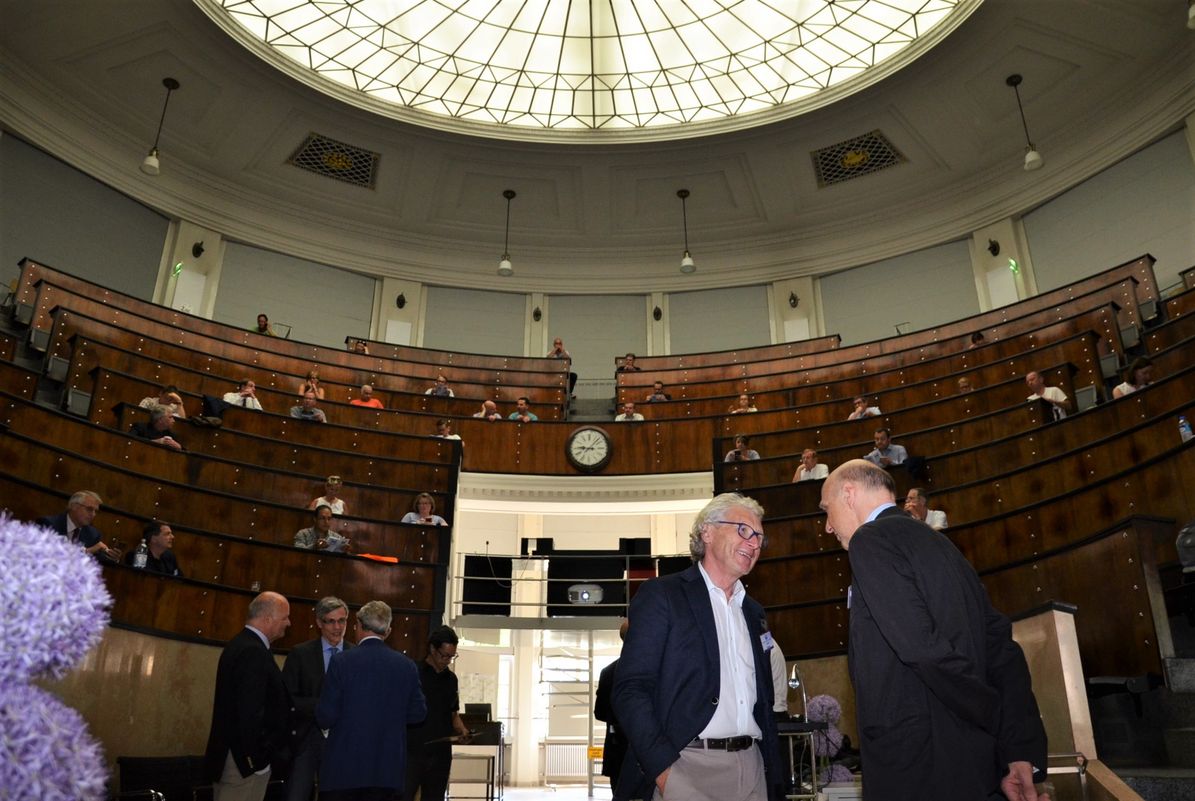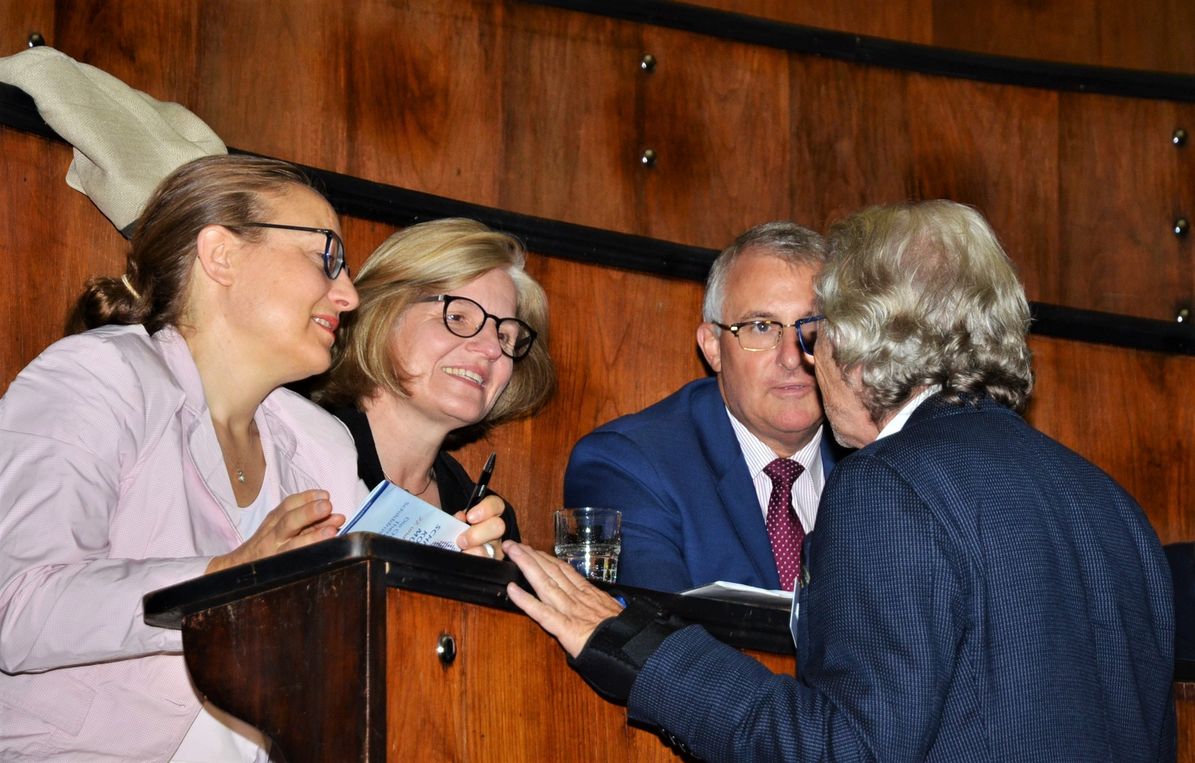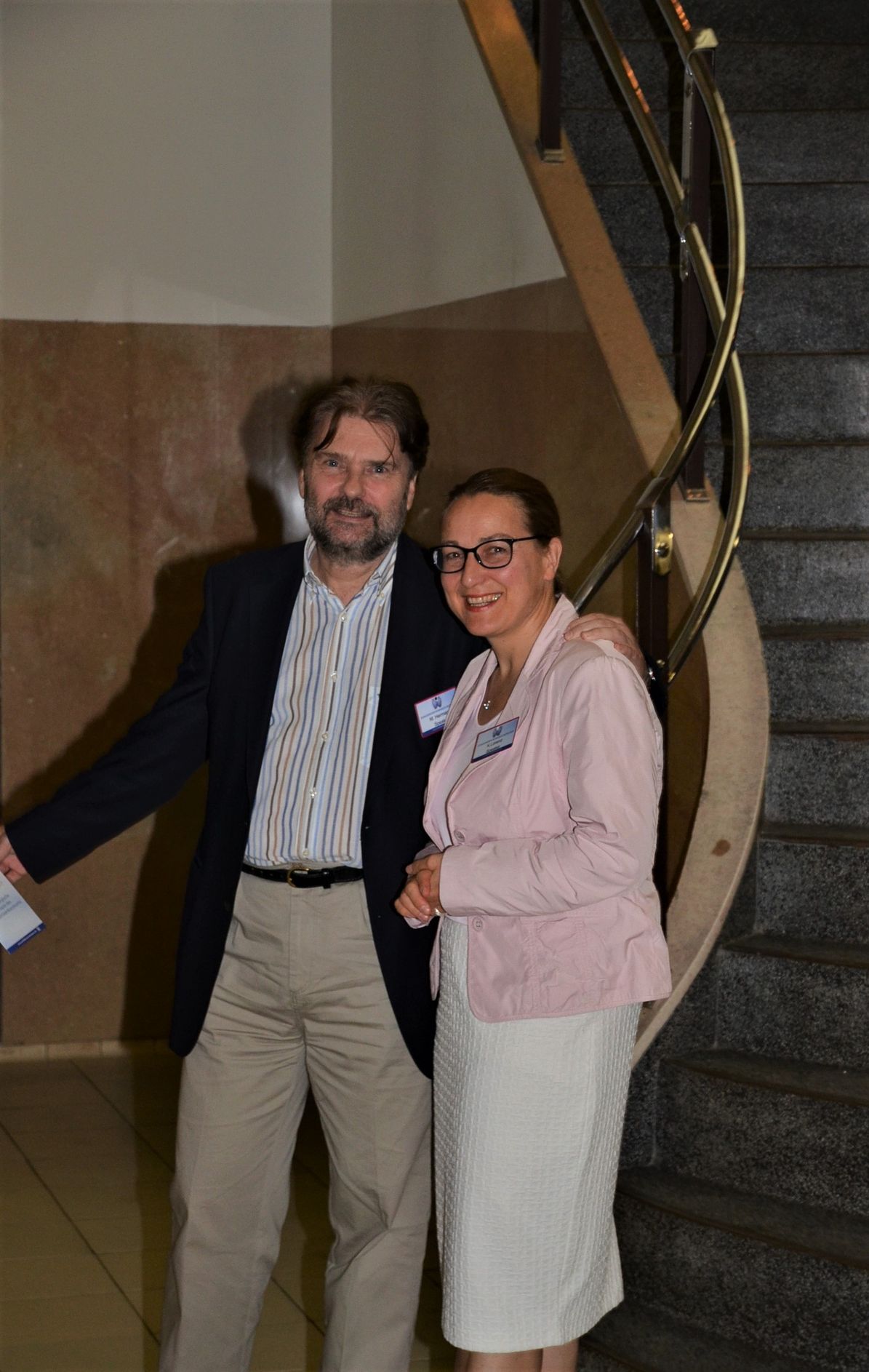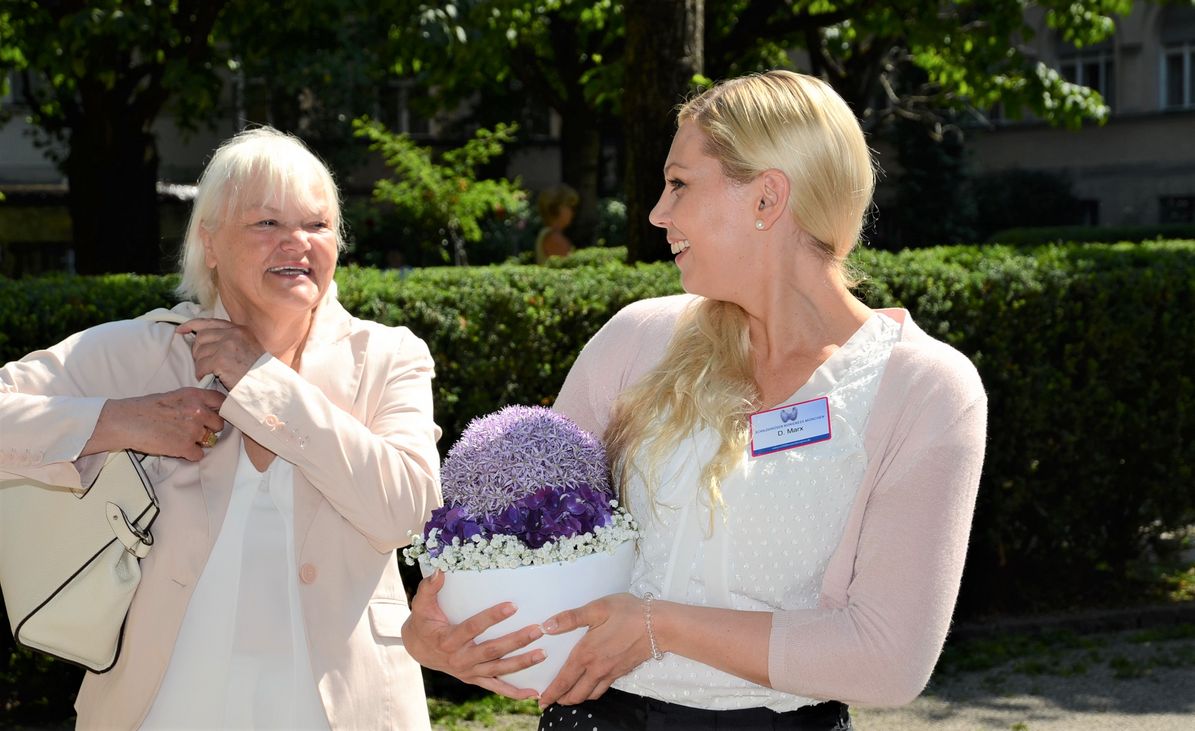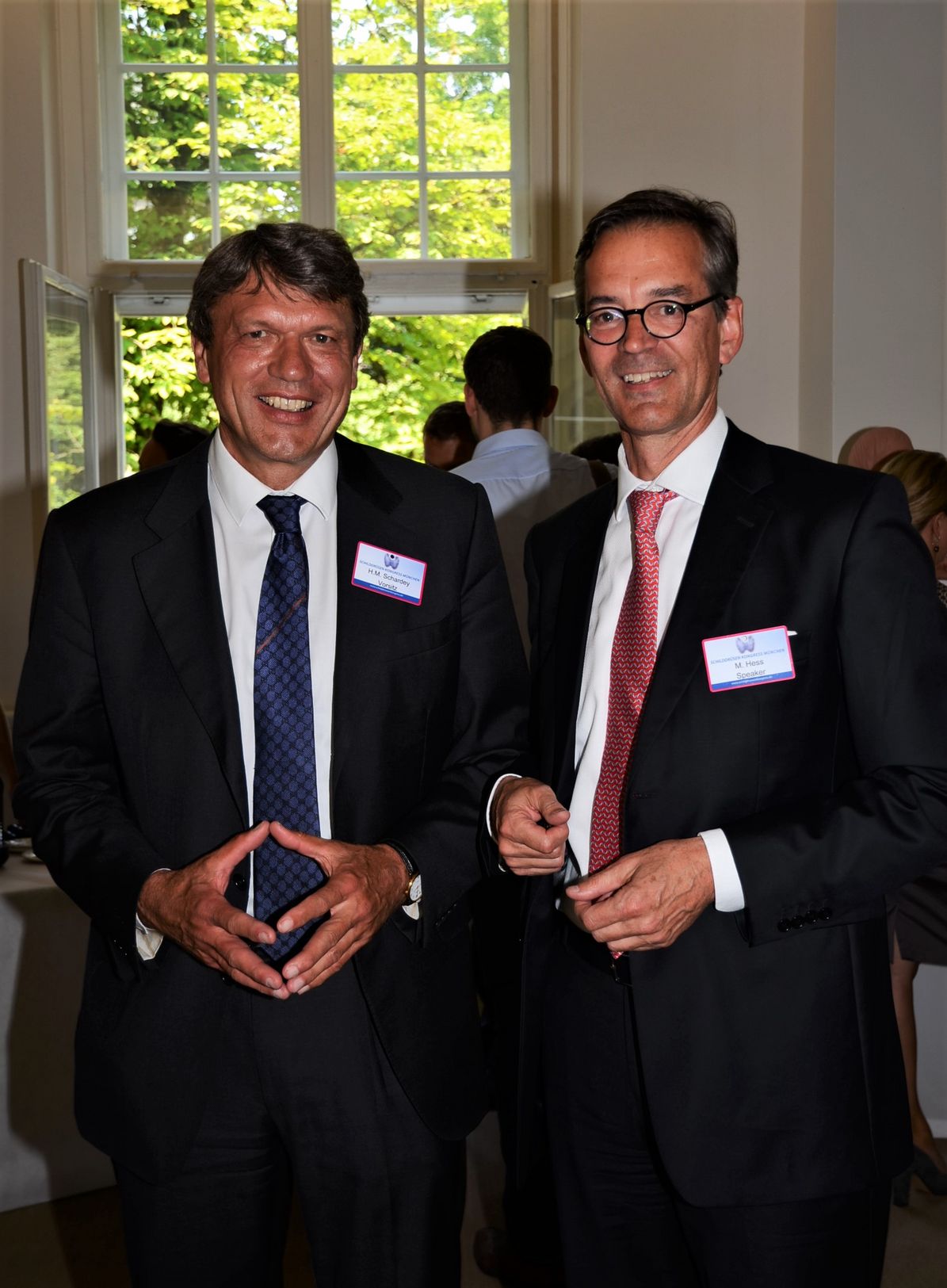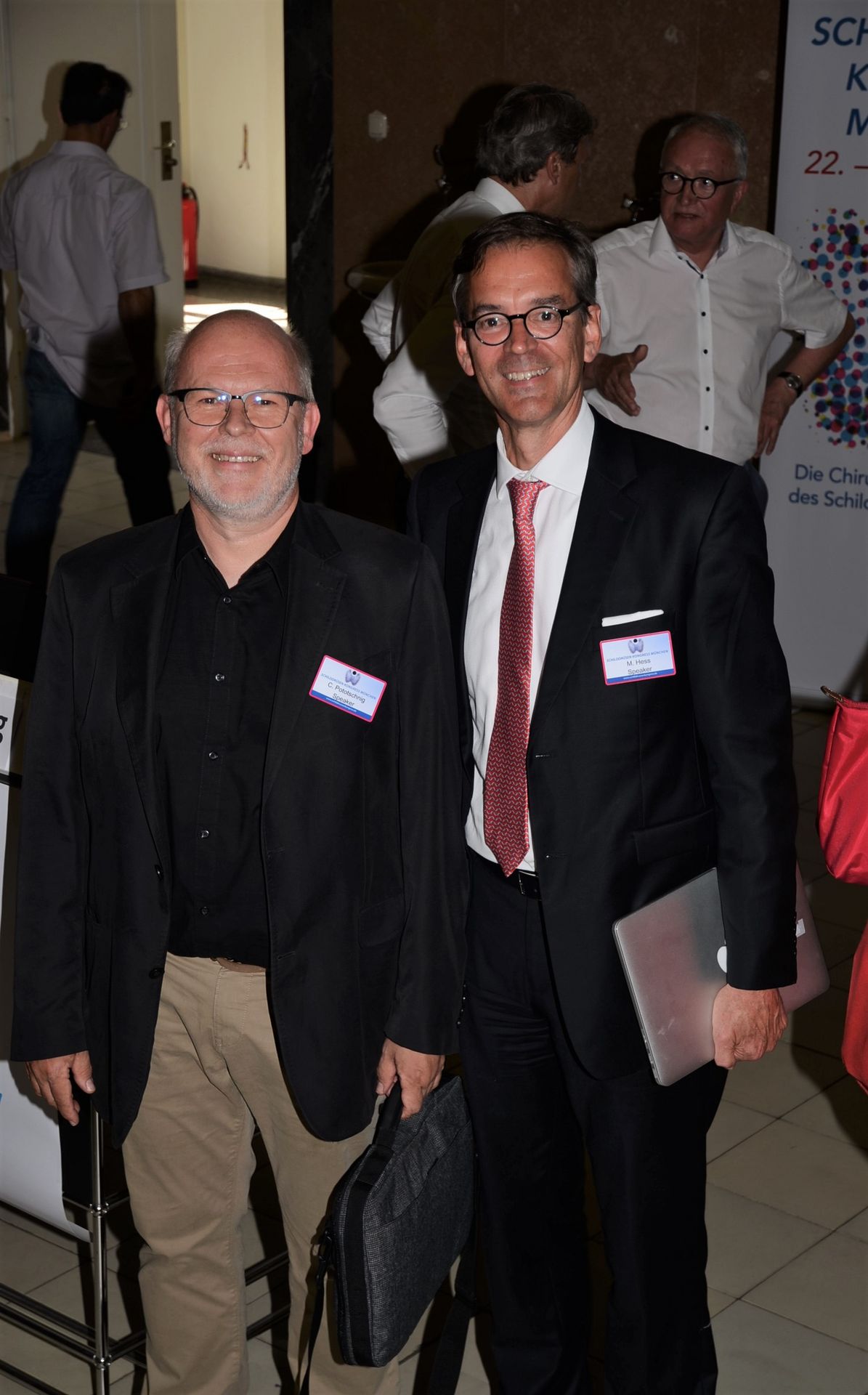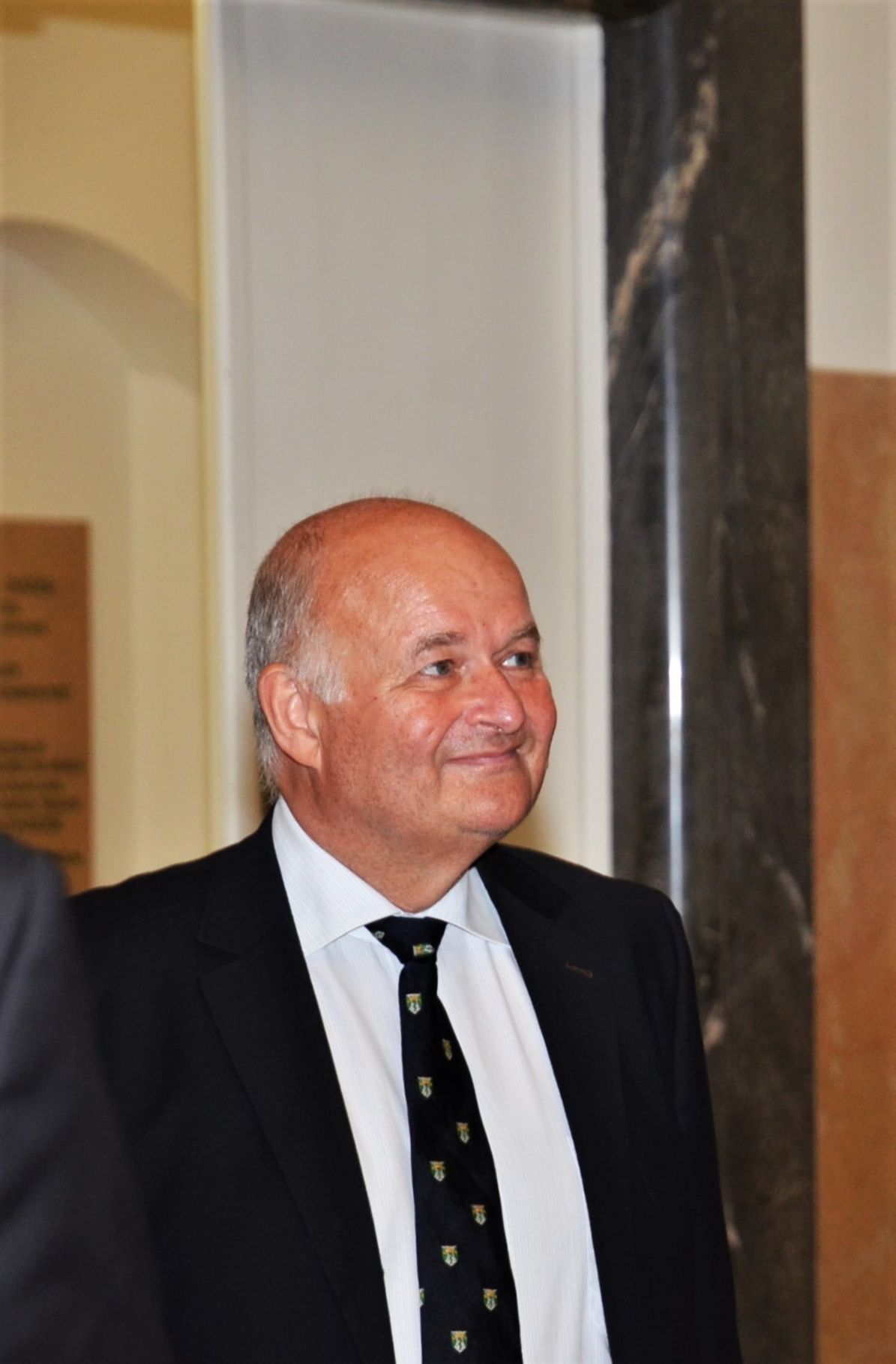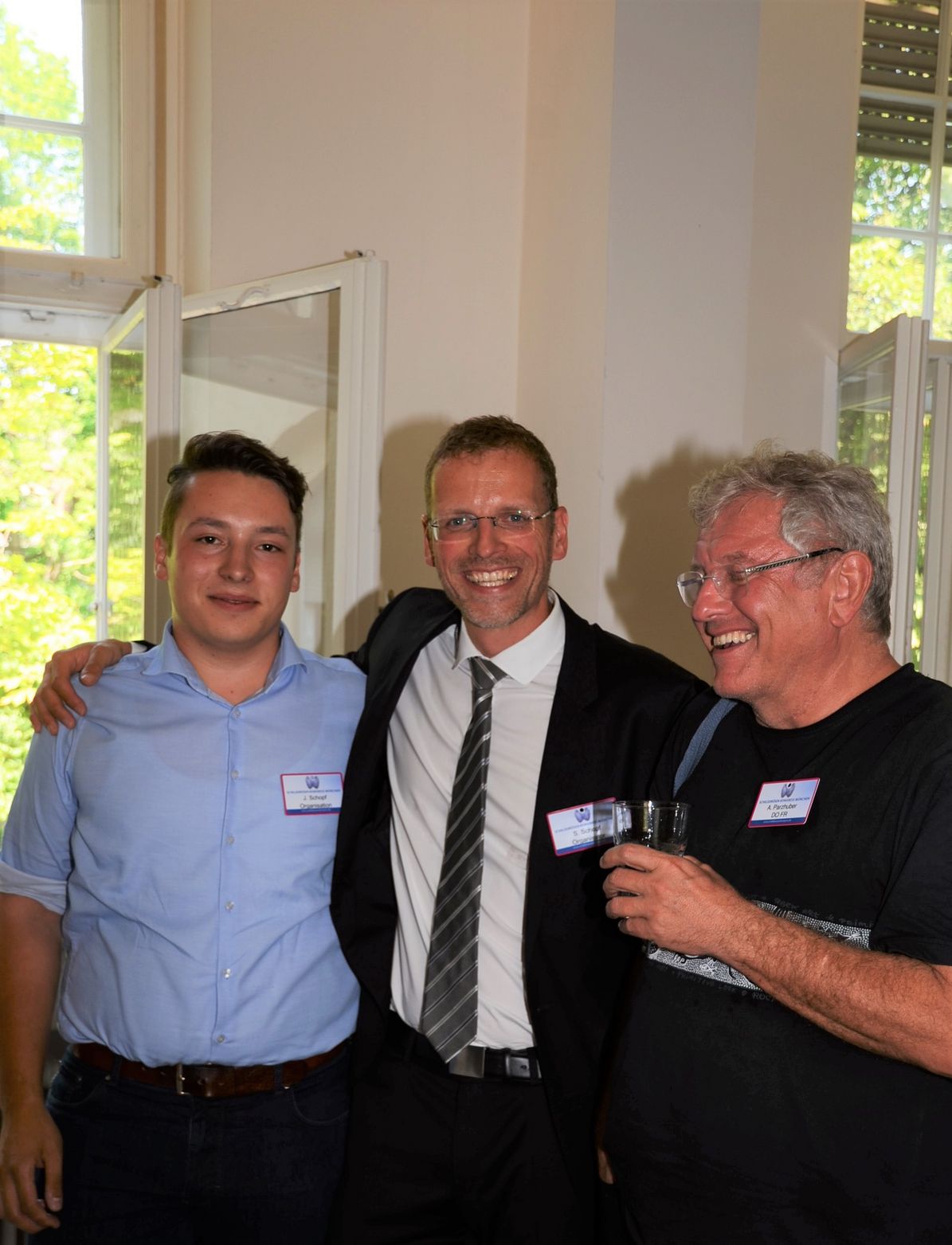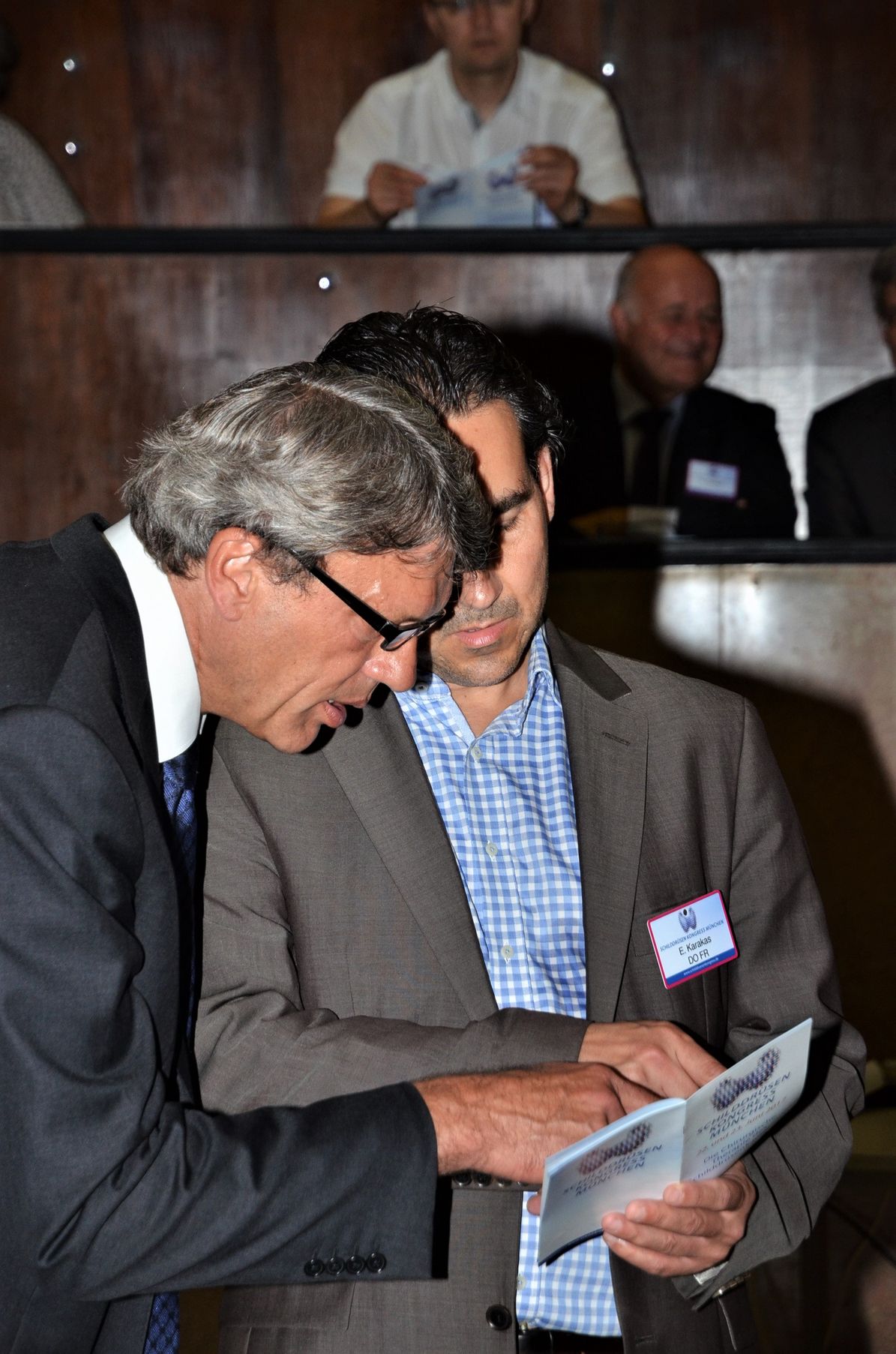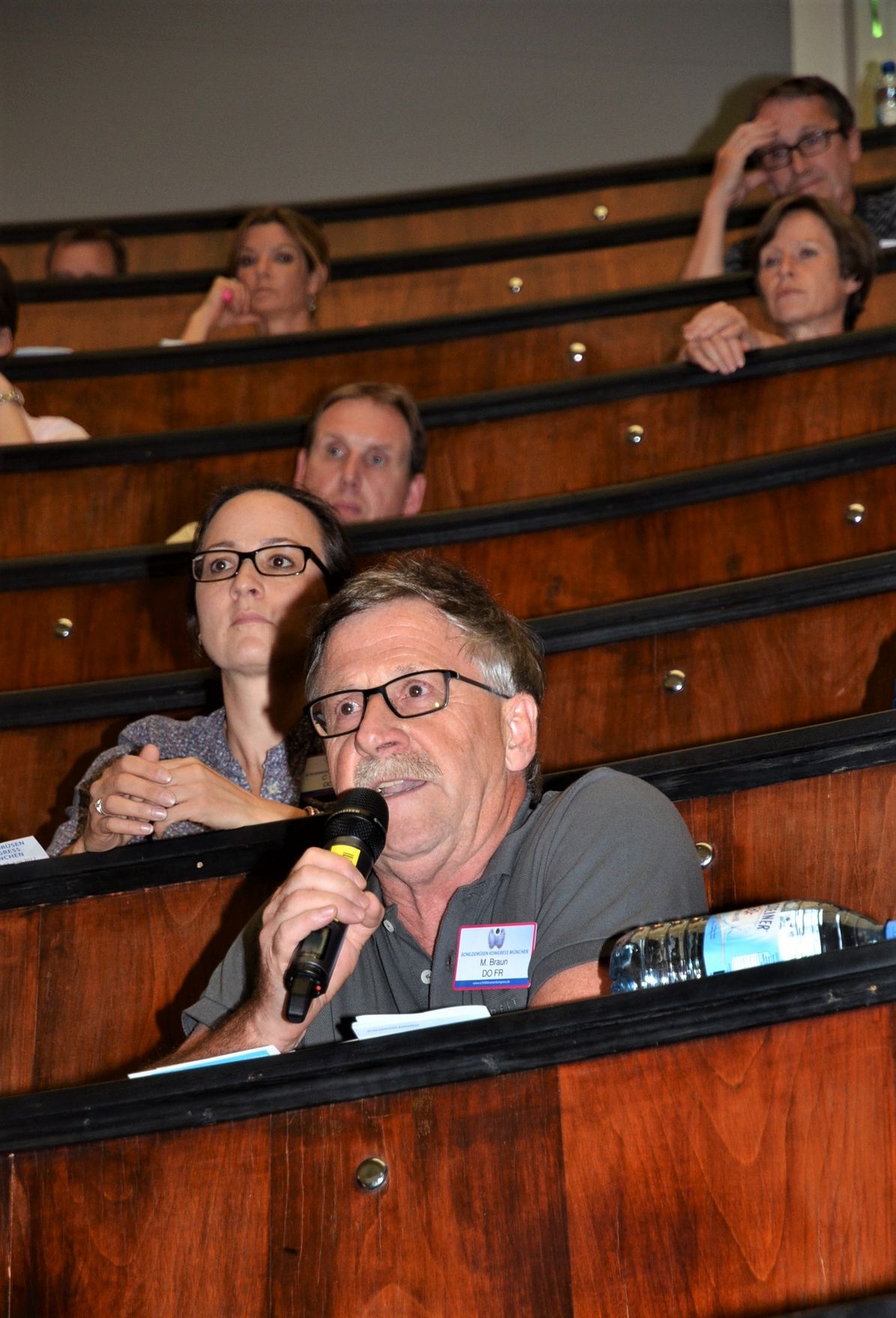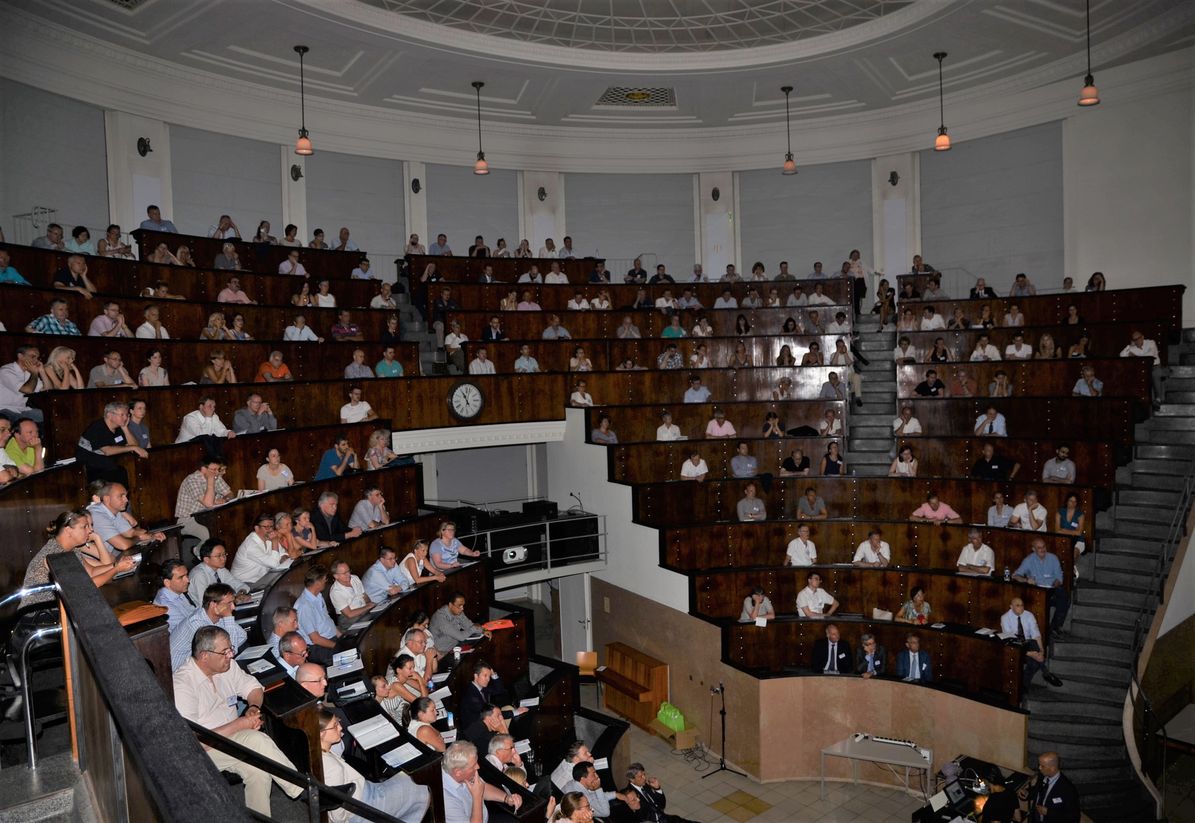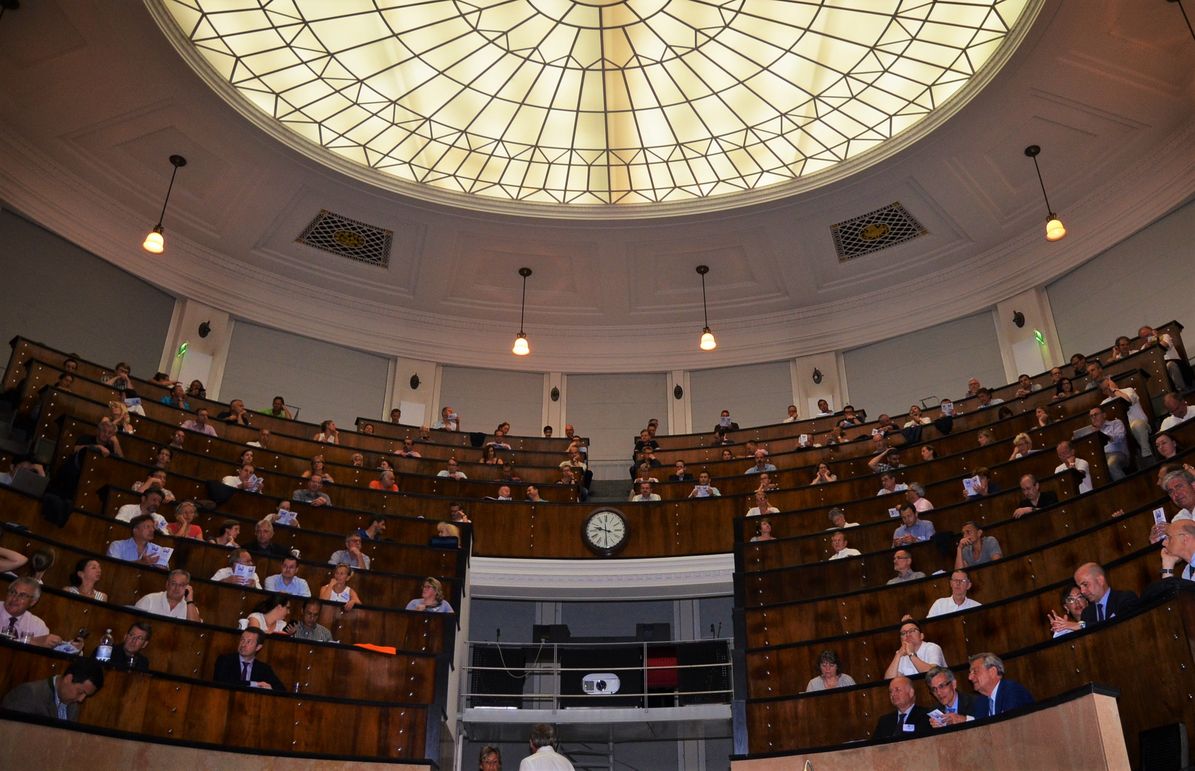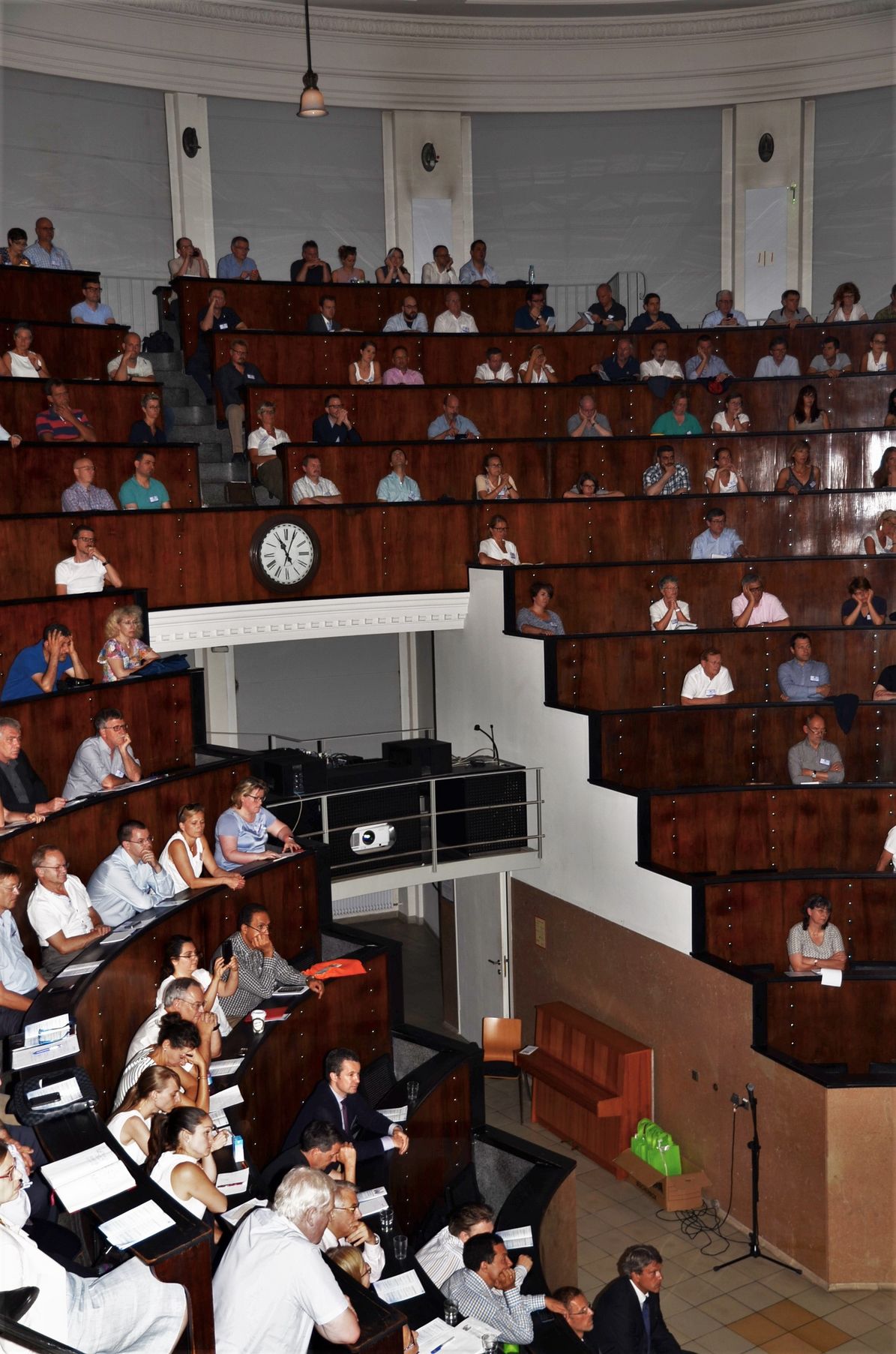Programm 2017
Referenten 2017
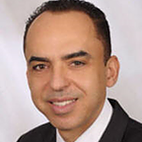
Prof. Dr. med. Ayman Agha, München
Successful living-donor parathyroid allotransplantation for postsurgical
hypoparathyroidism: an innovative and definitive treatment for therapy-refractory patients - first clinical results
hypoparathyroidism: an innovative and definitive treatment for therapy-refractory patients - first clinical results
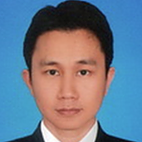
MD, FRCST Angkoon Anuwong, Bangkok
Is there a role for endoscopic transoral thyroidectomy
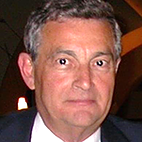
Prof. Giugliemo Ardito, Rom
Complications of Neck Dissections in Papillary Thyroid Carcinoma:
A modified Procedure to Reduce Parathyroid Morbidity
A modified Procedure to Reduce Parathyroid Morbidity
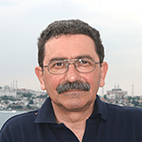
Prof. Nicola Avenia, Terni
Thyroid cancer invading the airway: How resection is feasible with an overall good outcome in differentiated Carcinoma + Video
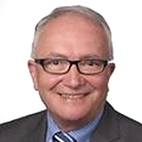
Prof. Dr. med. Heinz-Johannes Buhr, Berlin
Qualitätssicherung in der Schilddrüsenchirurgie und das
neue StuDoQ Schilddrüsenregister der DGAV
neue StuDoQ Schilddrüsenregister der DGAV
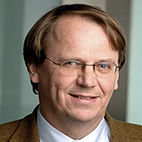
Univ. Prof. Dr. Harald Dobnig, Graz
RFA - eine Alternative zur konservativen und operativen Therapie? + Video
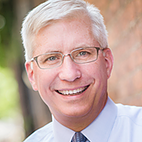
MD Gerard M. Doherty, Boston
Prophylactic vs. therapeutic lymphadenectomy: could genetic mutations such as BRAF V600E alone or combined with TERT guide the extend of initial surgery in PTC?
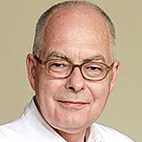
Prof. Dr. med. Dr. h.c. mult. Henning Dralle, Essen
Die Therapie des Medullären Schilddrüsenkarzinoms – state of the art
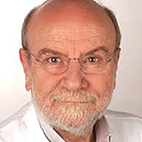
Prof. Dr. med. Roland Gärtner, München
Wie entsteht ein Schilddrüsenknoten – Aktueller Stand der Forschung
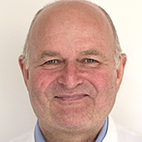
Prof. Dr. med. Klaus Hallfeldt, München
Begrüssung
Vorsitz und Organisation
Vorsitz und Organisation
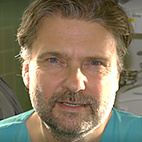
Prim. Univ. Prof. Dr. Michael Hermann, Wien
Offene Thyreoidektomie mit zentraler und mediastinaler Kompartmentresektion
+ Video
+ Video
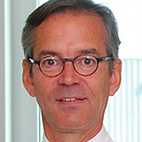
Prof. Dr. Markus Hess, Hamburg
Normale Stimme nach einseitiger Rekurrensparese – Möglichkeiten der spezifischen Phonochirurgie
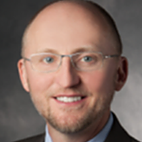
Prof. Dr. Chris Holsinger, Palo Alto
Is there a role for robotic thyroidectomy for DTC? TransAxillary, Retroauricular, or Transoral?
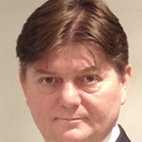
PhD, FRCS Tom R. Kurzawinski, London
Ultrafast, simple and cost effective device able to measure parathyroid
hormone level in a drop of blood during parathyroid surgery
hormone level in a drop of blood during parathyroid surgery
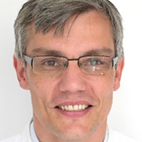
PD Dr. med. Roland Ladurner, München
Vorsitz und Organisation
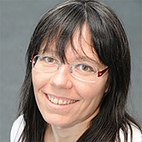
Dr. Sophie Leboulleux, Paris
Papillary thyroid microcarcinoma: time to shift from surgery to active surveillance?
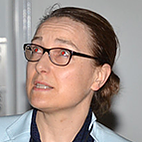
apl. Prof. Dr. Kerstin Lorenz, Halle
Die operative Behandlung beim Karzinom-Rezidiv
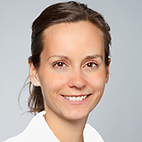
Dr. med. Corinna Mann, München
Das differenzierte Schilddrüsenkarzinom der jungen Frau – Management und Therapie in der Schwangerschaft und bei Kinderwunsch

Prof. Dr. med. Christoph Nies, Osnabrück
Ist die Operation an der Schilddrüse prinzipiell im ambulanten Setting
empfehlenswert?
empfehlenswert?
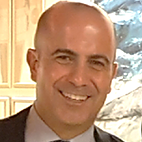
M.D., PhD Andrea Polistena, Perugia
Complications of lymphadenectomy: An update on diagnosis, treatment and
prevention of thoracic duct lesions
prevention of thoracic duct lesions
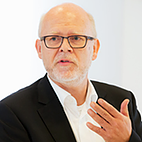
Univ. -Doz. Dr. med. Claus Pototschnig, Innsbruck
Operative Re-Innervationstechniken und Laryngeal Pacing + Video
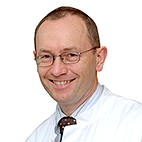
Prof. Dr. med. Martin Reincke, München
Direktor der Medizinischen Klinik und Poliklinik IV der Ludwig-Maximilians-Universität München
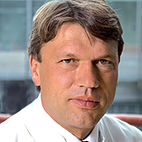
Prof. Dr. med. Hans Martin Schardey, München
Vorsitz und Organisation
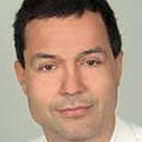
Univ.-Prof. Dr. Christian Scheuba, Wien
State of the art – Chirurgie des differenzierten Schilddrüsenkarzinoms
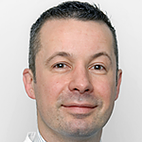
PD Dr. Rick Schneider, Halle
Electrophysiologic recurrent laryngeal nerve monitoring during thyroid and
parathyroid surgery: international standards guideline statement
parathyroid surgery: international standards guideline statement

PD Dr. Stefan Konrad Schopf, München
Vorsitz und Organisation
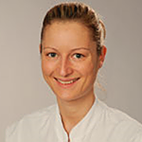
Dr. Christina Schwarz, Mainz
Autotransplantation of parathyroid glands in thyroid surgery – cause or prevention of postoperative hypoparathyroidism?
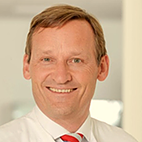
Prof. Dr. Dietmar Simon, Duisburg
Operative Strategie der Lymphadenektomie – state of the art + Video
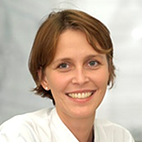
Prof. Dr. med. Christine Spitzweg, München
Ergänzende medikamentöse Therapie bei der Behandlung des fortgeschrittenen
medullären Schilddrüsenkarzinoms – Nutzen und Risiken von Kinase-Inhibitoren
medullären Schilddrüsenkarzinoms – Nutzen und Risiken von Kinase-Inhibitoren
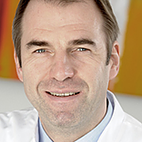
Prof. Dr. med. Jens Werner, München
Vorsitz und Leitung des wissenschaftlichen Komitees
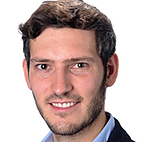
Dr. med. Ulrich Michael Wirth, München
Der Nachblutungsdetektor zur postoperativen Überwachung
nach Schilddrüsen-OP: study protocol of an international randomized multicenter trial
nach Schilddrüsen-OP: study protocol of an international randomized multicenter trial
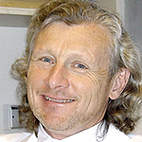
Univ.-Prof. Dr.med.univ. Gerhard Wolf, Graz
Minimal invasive Thyreoidektomie beim Schilddrüsenkarzinom + Video

Dr. Alexandra Zahn, Hamburg
Risikofaktoren für Lymphknotenmetastasen bei Patienten mit Mikrokarzinom – results of a retrospective study
Foto-Galerie 2017
